Here are my favorite poems about islands categorized:
- Poems about island life
- Poems about tropical islands
- Poems about Greek islands
So if you want the best poems about islands, then you’re in the right place.
Let’s get started!
- 79 Astonishing Poems About Ireland
- 235 Immersive Poems About Woods
- 31 Fascinating Poems About Mountains
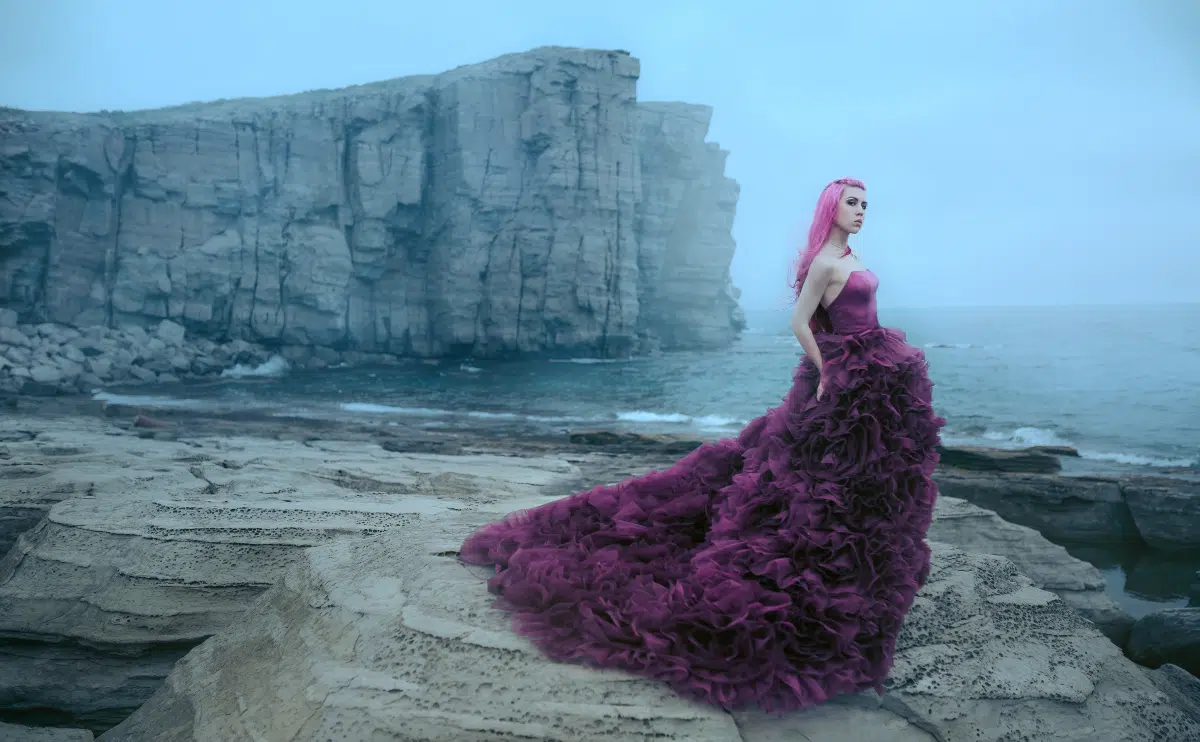
Light-Hearted Poems About Islands
Prepare to set sail on a poetic adventure through a carefully curated collection of island-themed poems that will transport you to paradise.
Immerse yourself in the rhythmic cadence of verses that celebrate the idyllic island life, where palm trees sway and waves whisper secrets to the sand.
Discover the captivating allure of Greek islands as you navigate the enchanting verses that pay homage to their timeless beauty and mythical charm.
This extraordinary anthology invites you to escape to the islands through the magic of words, where each poem becomes a postcard from paradise, enticing you to explore and dream.
Keep reading and enjoy!
My #1 Favorite Poem About Islands
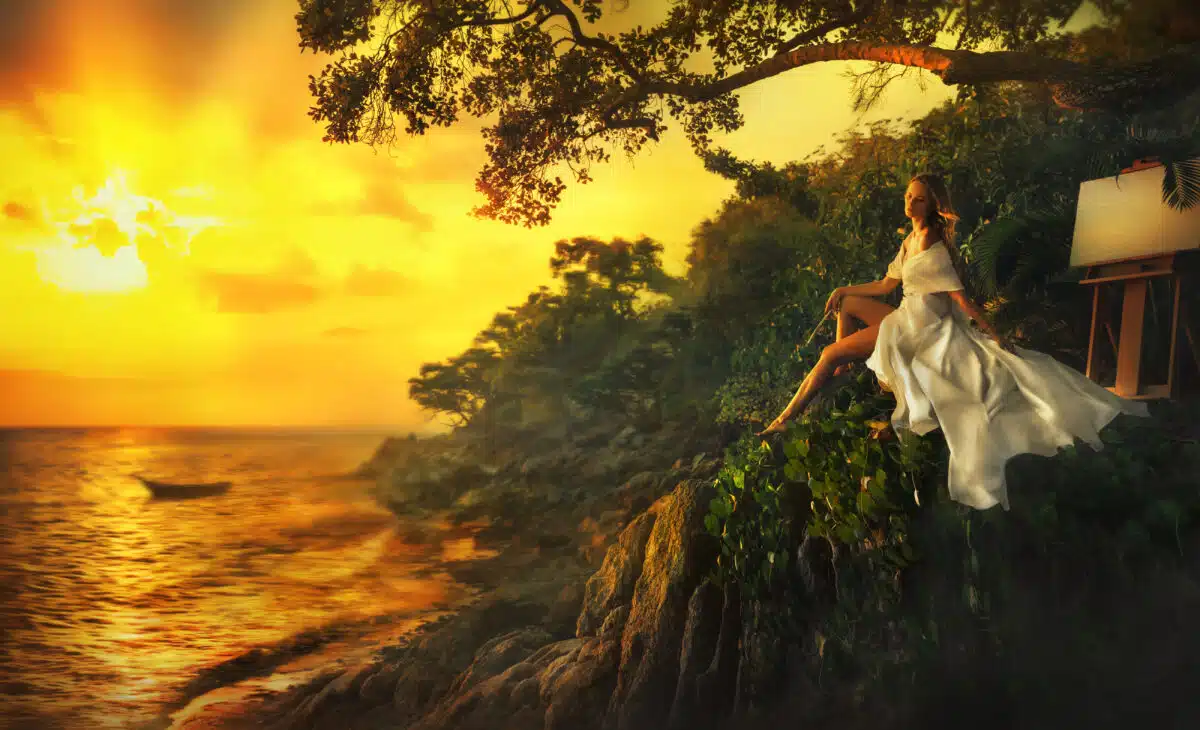
“The Island” by Richard Henry Dana
The island lies nine leagues away.
Along its solitary shore,
Of craggy rock and sandy bay,
No sound but ocean’s roar,
Save where the bold, wild sea-bird makes her home,
Her shrill cry coming through the sparkling foam.
But when the light winds lie at rest,
And on the glassy, heaving sea,
The black duck, with her glossy breast,
Sits swinging silently,
How beautiful! no ripples break the reach,
And silvery waves go noiseless up the beach.
And inland rests the green, warm dell;
The brook comes tinkling down its side;
From out the trees the sabbath bell
Rings cheerful, far and wide,
Mingling its sounds with bleatings of the flocks,
That feed about the vale amongst the rocks.
Nor holy bell nor pastoral bleat
In former days within the vale;
Flapped in the bay the pirate’s sheet;
Curses were on the gale;
Rich goods lay on the sand, and murdered men;
Pirate and wrecker kept their revels then.
Poems About Island Life

“On an Island” by John Millington Synge
You’ve pluck’d a curlew, drawn a hen,
Wash’d the shirts of seven men,
You’ve stuff’d my pillow, stretch’d the sheet,
And fill’d the pan to wash your feet,
You’ve coop’d the pullets, wound the clock,
And rinsed the young men’s drinking crock;
And now we’ll dance to jigs and reels,
Nail’d boots chasing girls’ naked heels,
Until your father’ll start to snore,
And Jude, now you’re married, will stretch on the floor.
“A Meditation on Rhode Island Coal” by William Cullen Bryant
I sat beside the glowing grate, fresh heaped
With Newport coal, and as the flame grew bright,—
The many-colored flame,—and played and leaped,
I thought of rainbows and the Northern Light,
Moore’s Lalla Rookh, the Treasury Report,
And other brilliant matters of the sort.
At last I thought of that fair isle which sent
The mineral fuel; on a summer day
I saw it once, with heat and travel spent,
And scratched by dwarf-oaks in the hollow way;
Now dragged through sand, now jolted over stone,—
A rugged road through rugged Tiverton.
And hotter grew the air, and hollower grew
The deep-worn path, and, horror-struck, I thought
Where will this dreary passage lead me to?
This long, dull road, so narrow, deep, and hot?
I looked to see it dive in earth outright;
I looked,—but saw a far more welcome sight.
Like a soft mist upon the evening shore,
At once a lovely isle before me lay;
Smooth, and with tender verdure covered o’er,
As if just risen from its calm inland bay;
Sloped each way gently to the grassy edge,
And the small waves that dallied with the sedge.
The barley was just reaped,—its heavy sheaves
Lay on the stubble field,—the tall maize stood
Dark in its summer growth, and shook its leaves,—
And bright the sunlight played on the young wood,—
For fifty years ago, the old men say,
The Briton hewed their ancient groves away.
I saw where fountains freshened the green land,
And where the pleasant road, from door to door
With rows of cherry-trees on either hand,
Went wandering all that fertile region o’er,—
Rogue’s Island once,—but, when the rogues were dead,
Rhode Island was the name it took instead.
Beautiful island! then it only seemed
A lovely stranger,—it has grown a friend.
I gazed on its smooth slopes, but never dreamed
How soon that bright beneficent isle would send
The treasures of its womb across the sea,
To warm a poet’s room and boil his tea.
Dark anthracite! that reddenest on my hearth,
Thou in those island mines didst slumber long;
But now thou art come forth to move the earth,
And put to shame the men that mean thee wrong.
Thou shalt be coals of fire to those that hate thee,
And warm the shins of all that underrate thee.
Yea, they did wrong thee foully,—they who mocked
Thy honest face, and said thou wouldst not burn;
Of hewing thee to chimney-pieces talked,
And grew profane,—and swore, in bitter scorn,
That men might to thy inner caves retire,
And there, unsinged, abide the day of fire.
Yet is thy greatness nigh. I pause to state,
That I too have seen greatness, even I,—
Shook hands with Adams,—stared at La Fayette,
When, bareheaded, in the hot noon of July,
He would not let the umbrella be held o’er him,
For which three cheers burst from the mob before him.
And I have seen—not many months ago—
An eastern governor in chapeau bras
And military coat, a glorious show!
Ride forth to visit the reviews, and ah!
How oft he smiled and bowed to Jonathan!
How many hands were shook and votes were won!
’T was a great governor,—thou too shalt be
Great in thy turn,—and wide shall spread thy fame,
And swiftly; farthest Maine shall hear of thee,
And cold New Brunswick gladden at thy name,
And, faintly through its sleets, the weeping isle
That sends the Boston folks their cod shall smile.
For thou shalt forge vast railways, and shalt heat
The hissing rivers into steam, and drive
Huge masses from thy mines, on iron feet,
Walking their steady way, as if alive,
Northward, till everlasting ice besets thee,
And south as far as the grim Spaniard lets thee.
Thou shalt make mighty engines swim the sea,
Like its own monsters,—boats that for a guinea
Will take a man to Havre,—and shalt be
The moving soul of many a spinning-jenny,
And ply thy shuttles, till a bard can wear
As good a suit of broadcloth as the mayor.
Then we will laugh at Winter when we hear
The grim old churl about our dwellings rave;
Thou, from that “ruler of the inverted year,”
Shalt pluck the knotty sceptre Cowper gave,
And pull him from his sledge, and drag him in,
And melt the icicles from off his chin.
“The Enchanted Island” by Anonymous
To Rathlin’s Isle I chanced to sail,
When summer breezes softly blew,
And there I heard so sweet a tale,
That oft I wished it could be true.
They said, at eve, when rude winds sleep,
And hushed is every turbid swell,
A mermaid rises from the deep,
And sweetly tunes her magic shell.
And while she plays, rock, dell, and cave
In dying falls the sound retain,
As if some choral spirits gave
Their aid to swell her witching strain.
Then summoned by that dulcet note,
Uprising to the admiring view,
A fairy island seems to float
With tints of many a gorgeous hue.
And glittering fanes and lofty towers
All on this fairy isle are seen;
And waving trees and shady bowers,
With more than mortal verdure green.
And as it moves, the western sky
Glows with a thousand varying rays;
And the calm sea, tinged with each dye,
Seems like a golden flood of blaze.
They also say, if earth or stone
From verdant Erin’s hallowed land
Were on this magic island thrown,
Forever fixed it then would stand.
But when for this some little boat
In silence ventures from the shore,
The mermaid sinks, hushed is the note,
The fairy isle is seen no more!
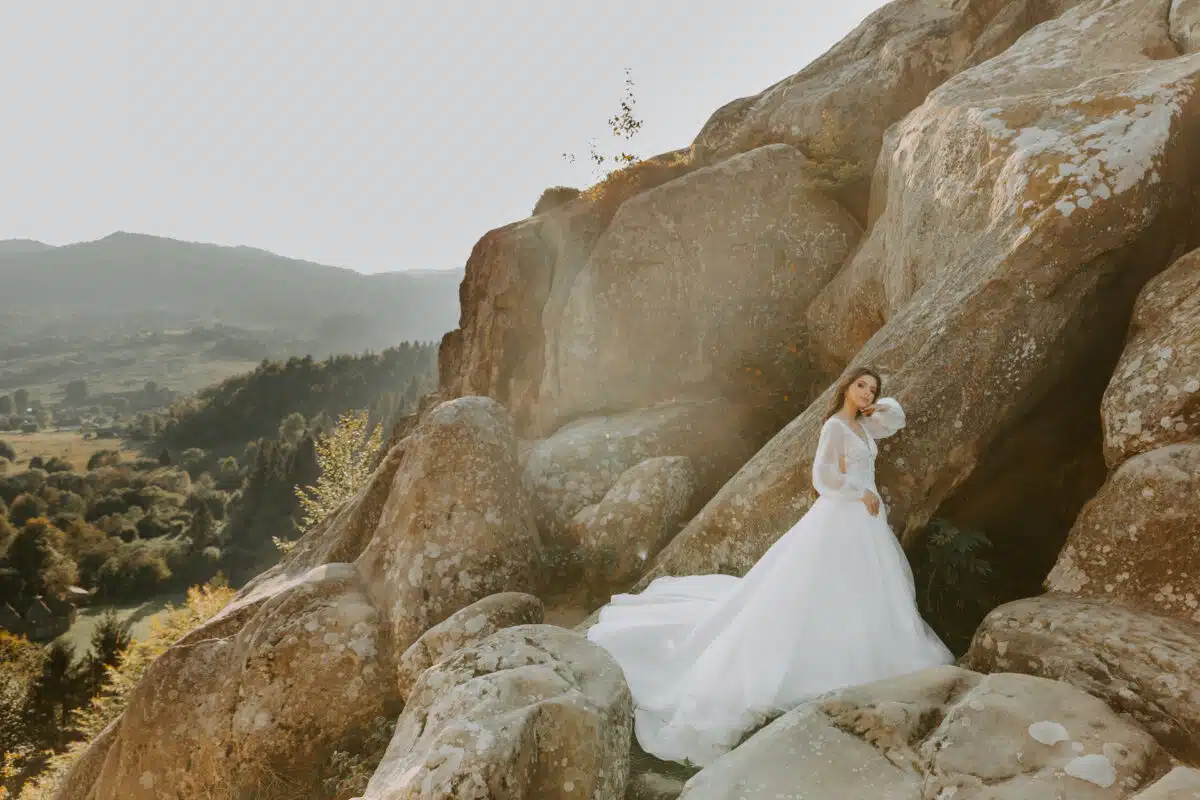
“Blennerhasset’s Island” by Thomas Buchanan Read
Once came an exile, longing to be free,
Born in the greenest island of the sea;
He sought out this, the fairest blooming isle
That ever gemmed a river; and its smile
Of summer green and freedom on his heart
Fell, like the light of Paradise. Apart
It lay, remote and wild; and in his breast
He fancied this an Island of the Blest;
And here he deemed the world might never mar
The tranquil air with its molesting jar.
Long had his soul, among the strife of men,
Gone out and fought, and, fighting, failed; and then
Withdrew into itself; as when some fount
Finds space within, and will no longer mount,
Content to hear its own secluded waves
Make lonely music in the new-found caves.
And here he brought his household; here his wife,
As happy as her children, round his life
Sang as she were an echo, or a part
Of the deep pleasure springing in his heart,—
A silken string which with the heavier cord
Made music, such as well-strung harps afford.
She was the embodied spirit of the man,
His second self, but on a fairer plan.
And here they came, and here they built their home,
And set the rose and taught the vines to roam,
Until the place became an isle of bowers,
Where odors, mist-like, swam above the flowers.
It was a place where one might lie and dream,
And see the Naiads, from the river-stream,
Stealing among the umbrous, drooping limbs;
Where Zephyr, mid the willows, tuned her hymns
Round rippling shores. Here would the first birds throng
In early spring-time, and their latest song
Was given in autumn; when all else had fled,
They half forgot to go; such beauty here was spread.
It was, in sooth, a fair enchanted isle,
Round which the unbroken forest, many a mile,
Reached the horizon like a boundless sea;—
A sea whose waves, at last, were forced to flee
On either hand, before the westward host,
To meet no more upon its ancient coast.
But all things fair, save truth, are frail and doomed;
And brightest beauty is the first consumed
By envious Time; as if he crowned the brow
With loveliest flowers, before he gave the blow
Which laid the victim on the hungry shrine;—
Such was the dreamer’s fate, and such, bright isle, was thine.
There came the stranger, heralded by fame,
Whose eloquent soul was like a tongue of flame,
Which brightened and despoiled whate’er it touched.
A violet, by an iron gauntlet clutched,
Were not more doomed than whosoe’er he won
To list his plans, with glowing words o’errun:
And Blennerhasset hearkened as he planned.
Far in the South there was a glorious land,
Crowned with perpetual flowers, and where repute
Pictured the gold more plenteous than the fruit,—
The Persia of the West. There would he steer
His conquering course; and o’er the bright land rear
His far-usurping banner, till his home
Should rest beneath a wide, imperial dome,
Where License, round his thronèd feet, should whirl
Her dizzy mazes like an orient girl.
His followers should be lords; their ladies each
Wear wreaths of gems beyond the old world’s reach;
And emperors, gazing at that land of bloom,
With impotent fire of envy should consume.
Such was the gorgeous vision which he drew.
The listener saw; and, dazzled by the view,—
As one in some enchanter’s misty room,
His senses poisoned by the strange perfume,
Beholds with fierce desire the picture fair,
And grasps at nothing in the painted air,—
Gave acquiescence, in a fatal hour,
And wealth and hope and peace were in the tempter’s power.
The isle became a rendezvous; and then
Came in the noisy rule of lawless men.
Domestic calm, affrighted, fled afar,
And Riot revelled ’neath the midnight star.
Continuous music rustled through the trees,
Where banners danced responsive on the breeze;
Or in festoons, above the astonished bowers,
With flaming colors shamed the modest flowers.
There clanged the mimic combat of the sword,
Like daily glasses round the festive board;
Here lounged the chiefs, there marched the plumèd file,
And martial splendor overrun the isle.
Already, the shrewd leader of the sport
The shadowy sceptre grasped, and swayed his court.
In dreams or waking, revelling or alone,
Before him swam the visionary throne;
Until a voice, as if the insulted woods
Had risen to claim their ancient solitudes,
Broke on his spirit, like a trumpet rude,
Shattering his dream to nothing where he stood!
The revellers vanished, and the banners fell,
Like the red leaves beneath November’s spell.
Full of great hopes, sustained by mighty will,
Urged by ambition, confident of skill,
As fearless to perform as to devise,
Aflush, but now he saw the glittering prize
Flame like a cloud in day’s descending track;
But, lo, the sun went down, and left it black!
Alone, despised, defiance in his eye,
He heard the shout, and “Treason!” was the cry;
And that harsh word, with its unpitying blight,
Swept o’er the island like an arctic night.
Cold grew the hearthstone, withered fell the flowers,
And desolation walked among the bowers.
This was the mansion. Through the ruined hall
The loud winds sweep, with gusty rise and fall,
Or glide, like phantoms, through the open doors;
And winter drifts his snow along the floors,
Blown through the yawning rafters, where the stars
And moon look in as through dull prison bars.
On yonder gable, through the nightly dark,
The owl replies unto the dreary bark
Of lonely fox, beside the grass-grown sill;
And here, on summer eves, the whippoorwill
Exalts her voice, and to the traveller’s ear
Proclaims how Ruin rules with full contentment here.
“The Golden Island: Arran from Ayr” by Dinah Maria Mulock Craik
Deep set in distant seas it lies;
The morning vapors float and fall,
The noonday clouds above it rise,
Then drop as white as virgin’s pall.
And sometimes, when that shroud uplifts,
The far green fields show strange and fair;
Mute waterfalls in sliver rifts
Sparkle adown the hillside bare.
But ah! mists gather, more and more;
And though the blue sky has no tears,
And the sea laughs with light all o’er,–
The lovely Island disappears.
O vanished Island of the blest!
O dream of all things pure and high!
Hid in deep seas, as faithful breast
Hides loves that have but seemed to die,–
Whether on seas dividing tossed,
Or led through fertile lands the while,
Better lose all things than have lost
The memory of the morning Isle!
For lo! when gloaming shadows glide,
And all is calm in earth and air,
Above the heaving of the tide
The lonely Island rises fair;
Its purple peaks shine, outlined grand
And clear, as noble lives nigh done;
While stretches bright from land to land
The broad sea-pathway to the sun.
He wraps it in his glory’s blaze,
He stoops to kiss its forehead cold;
And, all transfigured by his rays,
It gleams–an Isle of molten gold.
The sun may set, the shades descend,
Earth sleep–and yet while sleeping smile;
But it will live unto life’s end–
That vision of the Golden Isle.
“Inside Plum Island” by Harriet Prescott Spofford
We floated in the idle breeze,
With all our sails a-shiver;
The shining tide came softly through,
And filled Plum Island River.
The shining tide stole softly up
Across the wide green splendor,
Creek swelling creek till all in one
The marshes made surrender.
And clear the flood of silver swung
Between the brimming edges,
And now the depths were dark, and now
The boat slid o’er the sedges.
And here a yellow sand-spit foamed
Amid the great sea meadows,
And here the slumberous waters gloomed
Lucid in emerald shadows.
While, in their friendly multitude
Encamped along our quarter,
The host of hay-cocks seemed to float
With doubles in the water.
Around the sunny distance rose
A blue and hazy highland,
And winding down our winding way
The sand-hills of Plum Island,—
The windy dunes that hid the sea
For many a dreary acre,
And muffled all its thundering fall
Along the wild South Breaker.
We crept by Oldtown’s marshy mouth,
By reedy Rowley drifted,
But far away the Ipswich bar
Its white caps tossed and shifted.
Sometimes we heard a bittern boom,
Sometimes a piping plover,
Sometimes there came the lonesome cry
Of white gulls flying over.
Sometimes, a sudden fount of light,
A sturgeon splashed, and fleeting
Behind the sheltering thatch we heard
Oars in the rowlocks beating.
But all the rest was silence, save
The rippling in the rushes,
The gentle gale that struck the sail
In fitful swells and gushes.
Silence and summer and the sun,
Waking a wizard legion,
Wove as we went their ancient spells
In this enchanted region.
No spectral care could part the veil
Of mist and sunbeams shredded,
That everywhere behind us closed
The labyrinth we threaded.
Beneath our keel the great sky arched
Its liquid light and azure;
We swung between two heavens, ensphered,
Within their charmed embrasure.
Deep in that watery firmament,
With flickering lustres splendid,
Poised in his perfect flight, we saw
The painted hawk suspended,
And there, the while the boat-side leaned,
With youth and laughter laden,
We saw the red fin of the perch,
We saw the swift manhaden.
Outside, the hollow sea might cry,
The wailing wind give warning;
No whisper saddened us, shut in
With sunshine and the morning.
Oh, far, far off the weary world
With all its tumult waited,
Forever here with drooping sails
Would we have hung belated!
Yet, when the flaw came ruffling down,
And round us curled and sallied,
We skimmed with bubbles on our track,
As glad as when we dallied.
Broadly the bare brown Hundreds rose,
The herds their hollows keeping,
And clouds of wings about her mast
From Swallowbanks were sweeping.
While evermore the Bluff before
Grew greenly on our vision,
Lifting beneath its waving boughs
Its grassy slopes Elysian.
There, all day long, the summer sea
Creams murmuring up the shingle;
There, all day long, the airs of earth
With airs of heaven mingle.
Singing we went our happy way,
Singing old songs, nor noted
Another voice that with us sang,
As wing and wing we floated.
Till hushed, we listened, while the air
With music still was beating,
Voice answering tuneful voice, again
The words we sang repeating.
A flight of fluting echoes, sent
With elfin carol o’er us,—
More sweet than bird-song in the prime
Rang out the sea-blown chorus.
Behind those dunes the storms had heaped
In all fantastic fashion,
Who syllabled our songs in strains
Remote from human passion?
What tones were those that caught our own,
Filtered through light and distance,
And tossed them gayly to and fro
With such a sweet insistence?
What shoal of sea-sprites, to the sun
Along the margin flocking,
Dripping with salt dews from the deeps,
Made this melodious mocking?
We laughed,—a hundred voices rose
In airiest, fairiest laughter;
We sang,—a hundred voices quired
And sang the whole song after.
One standing eager in the prow
Blew out his bugle cheerly,
And far and wide their horns replied
More silverly and clearly.
And falling down the falling tide,
Slow and more slowly going,
Flown far, flown far, flown faint and fine,
We heard their horns still blowing.
Then, with the last delicious note
To other skies alluring,
Down ran the sails; beneath the Bluff
The boat lay at her mooring.

“The Holy Island” by Sir Walter Scott
And now the vessel skirts the strand
Of mountainous Northumberland;
Towns, towers, and halls successive rise,
And catch the nuns’ delighted eyes.
Monk-Wearmouth soon behind them lay,
And Tynemouth’s priory and bay;
They marked, amid her trees, the hall
Of lofty Seaton-Delaval;
They saw the Blythe and Wansbeck floods
Rush to the sea through sounding woods;
They passed the tower of Widdrington,
Mother of many a valiant son;
At Coquet Isle their beads they tell
To the good saint who owned the cell;
Then did the Alne attention claim,
And Warkworth, proud of Percy’s name;
And next they crossed themselves to hear
The whitening breakers sound so near,
Where, boiling through the rocks, they roar
On Dunstanborough’s caverned shore;
Thy tower, proud Bamborough, marked they there,
King Ida’s castle, huge and square,
From its tall rock look grimly down,
And on the swelling ocean frown;
Then from the coast they bore away,
And reached the Holy Island’s bay.
The tide did now its flood-mark gain,
And girdled in the saint’s domain:
For, with the flow and ebb, its style
Varies from continent to isle;
Dry-shod, o’er sands, twice every day,
The pilgrims to the shrine find way;
Twice every day, the waves efface
Of staves and sandalled feet the trace.
As to the port the galley flew,
Higher and higher rose to view
The castle with its battled walls,
The ancient monastery’s halls,
A solemn, huge, and dark red pile,
Placed on the margin of the isle.
In Saxon strength that abbey frowned,
With massive arches broad and round,
That rose alternate, row and row,
On ponderous columns, short and low,
Built ere the art was known,
By pointed aisle and shafted stalk,
The arcades of an alleyed walk
To emulate in stone.
On the deep walls the heathen Dane
Had poured his impious rage in vain;
And needful was such strength to these,
Exposed to the tempestuous seas,
Scourged by the winds’ eternal sway,
Open to rovers fierce as they,
Which could twelve hundred years withstand
Winds, waves, and Northern pirates’ hand.
Not but that portions of the pile,
Rebuilded in a later style,
Showed where the spoiler’s hand had been;
Not but the wasting sea-breeze keen
Had worn the pillar’s carving quaint,
And mouldered in his niche the saint,
And rounded, with consuming power,
The pointed angles of each tower;
Yet still entire the abbey stood,
Like veteran, worn, but unsubdued.
“At Home in Staten Island” by Charles Mackay
My true-love clasped me by the hand,
And from our garden alley,
Looked o’er the landscape seamed with sea,
And rich with hill and valley,
And said, “We ’ve found a pleasant place
As fair as thine and my land,
A calm abode, a flowery home,
In sunny Staten Island.
“Behind us lies the teeming town
With lust of gold grown frantic;
Before us glitters o’er the bay
The peaceable Atlantic.
We hear the murmur of the sea,—
A monotone of sadness,
But not a whisper of the crowd,
Or echo of its madness.
“See how the dogwood sheds its bloom
Through all the greenwood mazes,
As white as the untrodden snow
That hides in shady places.
See how the fair catalpa spreads
Its azure flowers in masses,
Bell-shaped, as if to woo the wind
To ring them as it passes.
“See, stretching o’er the green hillside,
The haunt of cooing turtle,
The clambering vine, the branching elm,
The maple and the myrtle,
The undergrowth of flowers and fern
In many-tinted lustre,
And parasites that climb or creep,
And droop, and twist, and cluster.
“Behold the gorgeous butterflies
That in the sunshine glitter,
The bluebird, oriole, and wren
That dart and float and twitter;
And humming-birds that peer like bees
In stamen and in pistil,
And, over all, the bright blue sky
Translucent as a crystal.
“The air is balmy, not too warm,
And all the landscape sunny
Seems, like the Hebrew Paradise,
To flow with milk and honey.
Here let us rest, a little while,—
Not rich enough to buy land,
And pass a summer well content
In bowery Staten Island.”
“Lake of the Thousand Islands” by Charles Sangster
Here Nature holds her carnival of Isles,
Steeped in warm sunset all the merry day,
Each nodding tree and floating greenwood smiles,
And moss-crowned monsters move in grim array;
All night the fisher spears his finny prey,
The piny flambeaux reddening the deep
By the dim shore, or up some mimic bay
Like grotesque bandits as they boldly sweep
Upon the startled prey, and stab them while they sleep.
And many a tale of legendary lore
Is told of these romantic Isles. The feet
Of the red man impressed each wave-zoned shore,
And many an eye of beauty oft did greet
The painted warriors and their birchen fleet,
As they returned with trophies of the slain.
That race hath passed away: their fair retreat
In its primeval loneness smiles again,
Save where some vessel breaks the isle-enwoven chain;
Save where the echo of the huntsman’s gun
Startles the wild duck from some shallow nook,
Or the swift hounds’ deep baying as they run
Rouses the lounging student from his book;
Or where, assembled by some sedgy brook,
A picnic party, resting in the shade,
Springs forward hastily to catch a look
At the strong steamer, through the watery glade
Ploughing like a huge serpent from its ambuscade.
The Island of Philæ
by Richard Monckton Milnes, Lord Houghton
Tranquil above the rapids, rocks, and shoals,
The Tivoli of Egypt, Philæ lies;
No more the frontier-fortress that controls
The rush of Ethiopian enemies,—
No more the Isle of Temples to surprise,
With hierophantic courts and porticos,
The simple stranger, but a scene where vies
Dead Art with living Nature, to compose
For that my pilgrimage a fit and happy close.
There I could taste without distress of thought
The placid splendors of a Nubian night,
The sky with beautiful devices fraught
Of suns and moons and spaces of white light:
While on huge gateways rose the forms of might,
Awful as when the people’s heart they swayed,
And the grotesque grew solemn to my sight;
And earnest faces thronged the colonnade,
As if they wailed a faith forgotten or betrayed.
There too, in calmer mood, I sent aflight
My mind through realms of marvel stretching far,
O’er Abyssinian Alps of fabled height,
O’er deserts where no paths or guidance are,
Save when, by pilotage of some bright star,
As on the ocean, wends the caravan;
And then I almost mourned the mythic bar
That in old times along that frontier ran,
When gods came down to feast with Ethiopian man.
For I remembered races numberless,
Whom still those latitudes in mystery fold,
And asked, what does the Past, my monitress,
For them within her genial bosom hold?
Where is for them the tale of history told?
How is their world advancing on its way?
How are they wiser, better, or more bold,
That they were not created yesterday?
Why are we life-taught men, why poor ephemerals they?
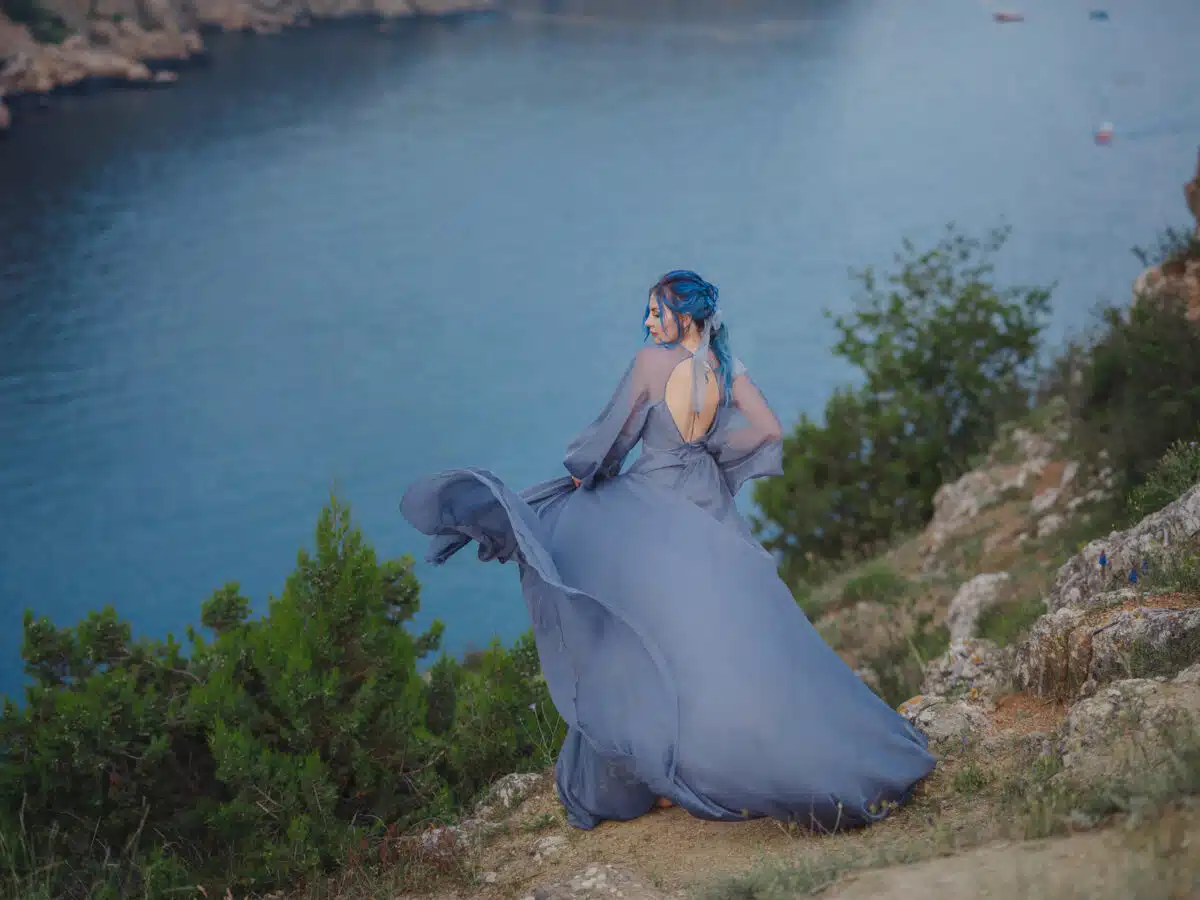
“The Island of Philæ” by Richard Monckton Milnes
Tranquil above the rapids, rocks, and shoals,
The Tivoli of Egypt, Philæ lies;
No more the frontier-fortress that controls
The rush of Ethiopian enemies,—
No more the Isle of Temples to surprise,
With hierophantic courts and porticos,
The simple stranger, but a scene where vies
Dead Art with living Nature, to compose
For that my pilgrimage a fit and happy close.
There I could taste without distress of thought
The placid splendors of a Nubian night,
The sky with beautiful devices fraught
Of suns and moons and spaces of white light:
While on huge gateways rose the forms of might,
Awful as when the people’s heart they swayed,
And the grotesque grew solemn to my sight;
And earnest faces thronged the colonnade,
As if they wailed a faith forgotten or betrayed.
There too, in calmer mood, I sent aflight
My mind through realms of marvel stretching far,
O’er Abyssinian Alps of fabled height,
O’er deserts where no paths or guidance are,
Save when, by pilotage of some bright star,
As on the ocean, wends the caravan;
And then I almost mourned the mythic bar
That in old times along that frontier ran,
When gods came down to feast with Ethiopian man.
For I remembered races numberless,
Whom still those latitudes in mystery fold,
And asked, what does the Past, my monitress,
For them within her genial bosom hold?
Where is for them the tale of history told?
How is their world advancing on its way?
How are they wiser, better, or more bold,
That they were not created yesterday?
Why are we life-taught men, why poor ephemerals they?
“The Three Islands” by Thomas Kibble Hervey
Here lifts New Zealand, mid a sea of storms,
Her hills that threaten heaven like Titan forms,—
Where the long lizard on the herbage lies,
And clouds of emerald beauty paint the skies;
Where the dark savage courts the burning noon,
And counts his epochs by the hundredth moon!
And yonder, redolent with fruits and flowers,
With spicy gales and aromatic showers,
And shady palms that into mid-air run,
To meet the wingéd creatures of the sun,
Fair Papua calls upon the mourning muse
To pause and weep above the lost Pérouse!
But vain her wailing, as the toil was vain
That sought this second Hylas o’er the main!
Eastward she turns, where many an island smiles,
Each like a chief amid its vassal isles,
Where lie the lands so often lost and found,
And where, so long in circling silence bound,
New Caledonia sits upon the seas
That roll their waves amid the Cyclades!
“The Snug Little Island” by Thomas Dibdin
Daddy Neptune, one day, to Freedom did say,
If ever I lived upon dry land,
The spot I should hit on would be little Britain!
Says Freedom, “Why, that’s my own island!”
O, it’s a snug little island!
A right little, tight little island!
Search the globe round, none can be found
So happy as this little island.
Julius Cæsar, the Roman, who yielded to no man,
Came by water,–he couldn’t come by land;
And Dane, Pict, and Saxon, their homes turned their backs on,
And all for the sake of our island.
O, what a snug little island!
They’d all have a touch at the island!
Some were shot dead, some of them fled,
And some stayed to live on the island.
Then a very great war-man, called Billy the Norman,
Cried, “Drat it, I never liked my land.
It would be much more handy to leave this Normandy,
And live on your beautiful island.”
Says he, “‘Tis a snug little island;
Sha’n’t us go visit the island?”
Hop, skip, and jump, there he was plump,
And he kicked up a dust in the island.
But party deceit helped the Normans to beat;
Of traitors they managed to buy land;
By Dane, Saxon, or Pict, Britons ne’er had been licked,
Had they stuck to the king of their island.
Poor Harold, the king of our island!
He lost both his life and his island!
That’s all very true: what more could he do?
Like a Briton he died for his island!
The Spanish armada set out to invade–a,
‘Twill sure, if they ever come nigh land.
They couldn’t do less than tuck up Queen Bess,
And take their full swing on the island.
O the poor queen of the island!
The Dons came to plunder the island;
But snug in her hive the queen was alive,
And “buzz” was the word of the island.
These proud puffed-up cakes thought to make ducks and drakes
Of our wealth; but they hardly could spy land,
When our Drake had the luck to make their pride duck
And stoop to the lads of the island!
O, for the ships of the island!
The good wooden walls of the island;
Devil or Don, let them come on;
And see how they’d come off the island!
Since Freedom and Neptune have hitherto kept time,
In each saying, “This shall be my land”;
Should the “Army of England,” or all it could bring, land,
We’d show ’em some play for the island.
We’d fight for our right to the island;
We’d give them enough of the island;
Invaders should just–bite once at the dust,
But not a bit more of the island.
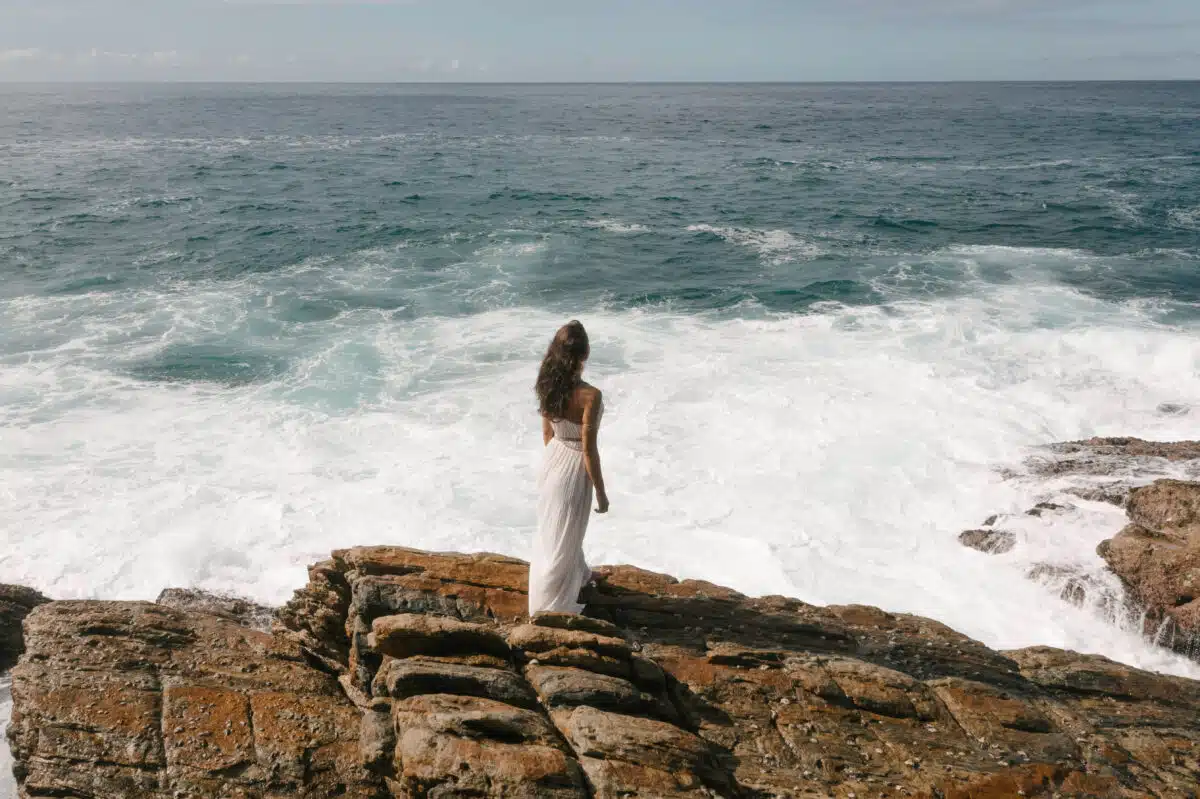
“The Island” by Robert Alden Sanborn
Upon a silent island
In your bosom I am shut.
I wandered on the island
In a pale noon, and a hut
I found within the island
Dusk of willow, elm and fern—
Alone amid the island,
A shadow in an urn.
It is a fairy island—
I never shall escape
Until the willowed island
Shall change its wistful shape;
Until the urn shall shatter,
And the shadow slake
The frail wish of the sleeper,
And she shall wake.
I dare not stir the island
Silence with a happy word;
I dread to shake the island
With a plea that may be heard;
So in sleep I keep the island,
Mate its dream with one mine own,
Lest into life the island break,
And leave me all alone.
“A Ballade of Islands” by Lucy Robinson
I would I had been island-born.
I dearly love things insular:
The coral bed, the quaint bazaar,
The palm and breadfruit never shorn,
The smoking cone that cannot char
The azure of a tropic morn,
The dancing girl in soft cymar,—
All these such lures, such wonders are—
Oh, why was I not island-born?
In island crossed of Capricorn—
In Otaheite, wild Happar—
Lurk all the powers that make or mar.
The ogress, wrinkled like a Norn,
The parrot-fish, the nenuphar,
The tides that leave in quiet scorn
The moon out of their calendar,
Miranda’s cave, Nausicaa’s car,—
All these are for the island-born.
’T was on a far-off isle forlorn
That Haidee wore her golden bar,
Virginia seemed a drifted spar,
Rarahu’s loving heart was torn,
Sweet Allan Bane, in peace and war,
Awoke St. Modan’s harp outworn,
And Graziella her guitar;
She bore the brimming water-jar
Not grieving to be island-born.
ENVOY
Prince, on three islands, sundered far,
Thine were life’s flower, its husk, its thorn.
Ripe grew thy wrath on Elba’s scar,
In St. Helena sank thy star.
Napoleon, thou wast island-born!
“The Watch of Boon Island” by Celia Laighton Thaxter
They crossed the lonely and lamenting sea;
Its moaning seemed but singing. ” Wilt thou dare, “
He asked her, ” brave the loneliness with me? “
” What loneliness, ” she said, ” if thou art there? “
Afar and cold on the horizon’s rim
Loomed the tall lighthouse, like a ghostly sign;
They sighed not as the shore behind grew dim,
A rose of joy they bore across the brine.
They gained the barren rock, and made their home
Among the wild waves and the sea-birds wild;
The wintry winds blew fierce across the foam,
But in each other’s eyes they looked and smiled.
Aloft the lighthouse sent its warnings wide,
Fed by their faithful hands, and ships in sight
With joy beheld it, and on land men cried,
” Look, clear and steady burns Boon Island light! “
And, while they trimmed the lamp with busy hands,
” Shine far and through the dark, sweet light! ” they cried;
” Bring safely back the sailors from all lands
To waiting love, — wife, mother, sister, bride! “
No tempest shook their calm, though many a storm
Tore the vexed ocean into furious spray;
No chill could find them in their Eden warm,
And gently Time lapsed onward day by day.
Said I no chill could find them? There is one
Whose awful footfalls everywhere are known,
With echoing sobs, who chills the summer sun,
And turns the happy heart of youth to stone;
Inexorable Death, a silent guest
At every hearth, before whose footsteps flee
All joys, who rules the earth, and, without rest,
Roams the vast shuddering spaces of the sea.
Death found them; turned his face and passed her by,
But laid a finger on her lover’s lips,
And there was silence. Then the storm ran high,
And tossed and troubled sore the distant ships.
Nay, who shall speak the terrors of the night,
The speechless sorrow, the supreme despair?
Still like a ghost she trimmed the waning light,
Dragging her slow weight up the winding stair.
With more than oil the saving lamp she fed,
While lashed to madness the wild sea she heard.
She kept her awful vigil with the dead,
And God’s sweet pity still she ministered.
O sailors, hailing loud the cheerful beam,
Piercing so far the tumult of the dark,
A radiant star of hope, you could not dream
What misery there sat cherishing that spark!
Three times the night, too terrible to bear,
Descended, shrouded in the storm. At last
The sun rose clear and still on her despair,
And all her striving to the winds she cast,
And bowed her head and let the light die out,
For the wide sea lay calm as her dead love.
When evening fell, from the far land, in doubt,
Vainly to find that faithful star men strove.
Sailors and landsmen look, and women’s eyes,
For pity ready, search in vain the night,
And wondering neighbor unto neighbor cries,
” Now what, think you, can ail Boon Island light? “
Out from the coast toward her high tower they sailed;
They found her watching, silent, by her dead,
A shadowy woman, who nor wept, nor wailed,
But answered what they spake, till all was said.
They bore the dead and living both away.
With anguish time seemed powerless to destroy
She turned, and backward gazed across the bay, —
Lost in the sad sea lay her rose of joy.
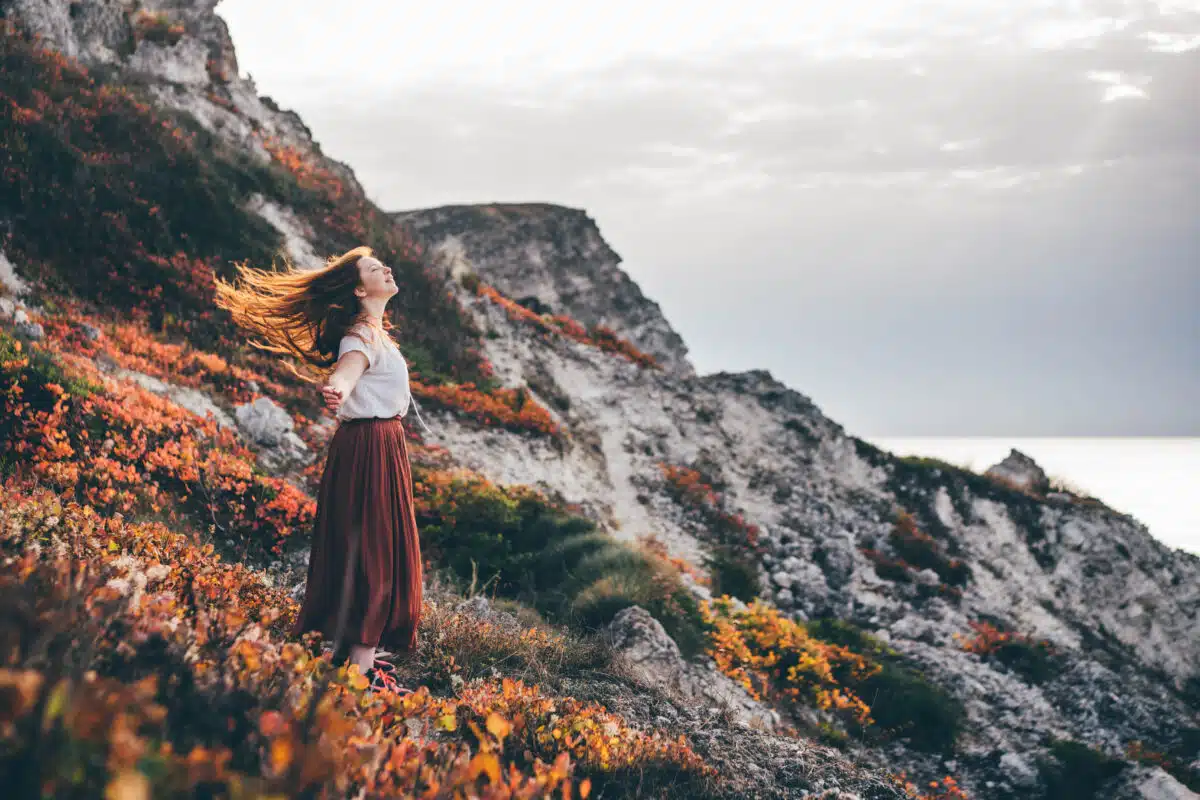
“The Island” by Alfred Billings Street
Upon a narrow river-flat
The sunset falls in streaking glow;
Here, the mown meadow’s velvet plat,
And there, the buckwheat’s scented snow.
A cluster of low roofs is prest
Against the mountain’s leaning breast.
But each rude porch is closed and barred:
For tenderest Youth and Age alone
Are left those humble roofs to guard,
Till Day resumes his blazing throne.
Where deepest shade the forest flings,
The hunters seek that forest’s game;
Men tireless as the eagle’s wings,
Of dauntless heart and iron frame.
The sparkling Beaverkill beside,
Benighted in their wanderings wide,
They merry dress the slaughtered deer,
And make the twilight ring with cheer;
Now chorus of the woods, now tale
Of panther-fight and Indian trail,
Till the rude group, the camp-fire round,
Crouch with their rifles, on the ground.
Where wide the branch-linked river spreads,
Near rapids swift, a fairy isle,
Three leagues above those mountain-sheds,
Looks like a sweet perpetual smile.
The muskrat burrows in its sides,
Down its steep slopes the otter slides;
The splendid sheldrake, floating, feeds
In his close haunts amid the reeds;
Around its sandy points, all day,
Watches and wades the crane for prey;
While show its shallows lily-robes
Of heart-shaped leaves and golden globes.
Above the mountain hamlet, fade
Eve’s tints, and darkness spreads its shade;
Their pointed tops the cedars rear
Against the starlight bright and clear.
Then come the many sounds and sights
Usual in forest summer-nights:
At intervals, the flitting breeze
Draws soft, low sobbings from the trees;
From the deep woods, in transient float,
Tinkles the whetsaw’s double note;
The wakeful frog, unceasing, groans;
Twang the mosquito’s hungry tones,
And echoing sweetly, on the hill,
Whistles the sorrowing whippoorwill;
From the cleft pine the gray owl hoots,
Swells from the swamp the wolf’s long cry,
And, now and then, a meteor shoots
And melts within the spangled sky.
The firefly opes and shuts its gleam,
The cricket chirps, the tree-toad crows;
And hark! the cougar’s distant scream
Afar the mountain echo throws.
“The Island of Shadows” by Richard Garnett
Yes, Cara mine, I know that I shall stand
Upon the seashore soon,
And watch the waves that die upon the strand,
And the immortal moon.
One mew will hover ’mid the drowsy damp
That clogs the breezes there,
One star suspend her solitary lamp,
High in the viewless air.
My straining eyes will mark a distant oar,
Grazing the supple sea,
And a light pinnace speeding to the shore,
And in it thou wilt be.
The empty veins with life no more are warm,
The eyes no longer shine,
The pale star gazes through the pallid form,
What matter? thou art mine.
The Love which, while it walk’d the earth, could meet
No place to lay its head,
Now reigns unchallenged in the winding-sheet,
Nor fears its kindred dead.
For Love dwells with the dead, though more sedate,
Chasten’d, and mild it seems;
While Avarice, Envy, Jealousy, and Hate,
With them are only dreams.
I step into the boat, our steady prore
Furrows the still moonlight;
The sea is merry with our plashing oar,
With our quick rudder white.
No word has pass’d thy lips, but yet I know
Well where our course will be;
We leave the worn-out world—is it not so?—
The uncorrupted sea
To cross, and gain some isle in whose sweet shade
Even Slavery is free;
And careless Care on smoothest rose-leaves laid
Becomes Tranquillity.
Far, far the haunts where, rob’d in gory weeds,
Grim War his court doth hold,
And mumbling Superstition counts his beads,
And Avarice his gold.
But Love and Death, the comrades and the twins,
Uninterrupted reign;
Where is it that one ends and one begins?
And are they one or twain?
And all is like thy soul, pensive and fair,
Veil’d in a shadowy dress,
And strewn with gems more rich were they more rare,
And steep’d in balminess.
No drossy shape of earthliness appears
On the phantastic coast,
No grosser sound strikes the attuned ears
Than footfall of a ghost.
Seclusion, quiet, silence, slumber, dreams,
No murmur of a breath;
The same still image on the same still streams,
Of Love caressing Death.
So let us hasten, Love! Our steady prore
Furrows the still moonlight;
The sea is merry with our plashing oar,
With our quick rudder white.
“The Island of Skyros” by John Masefield
Here, where we stood together, we three men,
Before the war had swept us to the East
Three thousand miles away, I stand again
And hear the bells, and breathe, and go to feast.
We trod the same path, to the selfsame place,
Yet here I stand, having beheld their graves,
Skyros whose shadows the great seas erase,
And Seddul Bahr that ever more blood craves.
So, since we communed here, our bones have been
Nearer, perhaps, than they again will be,
Earth and the worldwide battle lie between,
Death lies between, and friend-destroying sea.
Yet here, a year ago, we talked and stood
As I stnad now, with pulses beating blood.
I saw her like a shadow on the sky
In the last light, a blur upon the sea,
Then the gale’s darkness put the shadow by,
But from one grave that island talked to me;
And, in the midnight, in the breaking storm,
I saw its blackness and a blinking light,
And thought, “So death obscures your gentle form,
So memory strives to make the darkness bright;
And, in that heap of rocks, your body lies,
Part of the island till the planet ends,
My gentle comrade, beautiful and wise,
Part of this crag this bitter surge offends,
While I, who pass, a little obscure thing,
War with this force, and breathe, and am its king.”
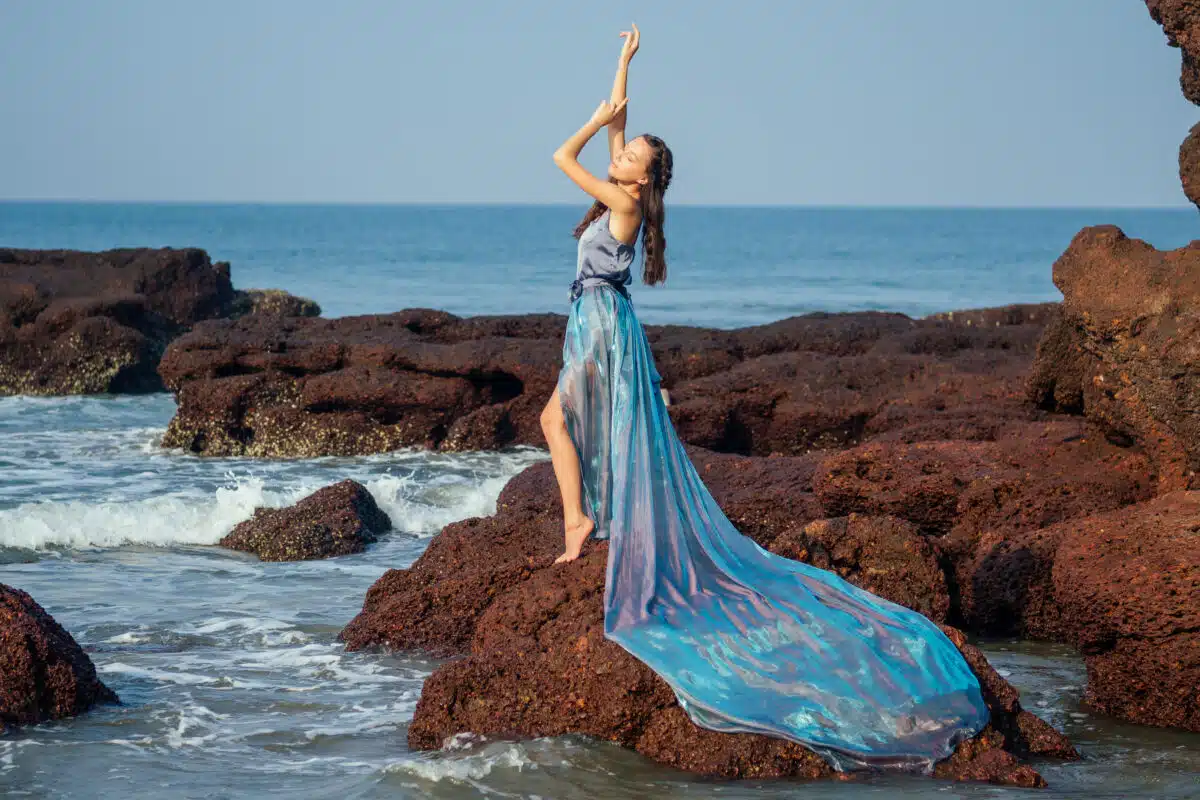
“Pelican Island” by James Montgomery
Meanwhile, not idle, though unwatched by me,
The coral architects in silence reared
Tower after tower beneath the dark abyss.
Pyramidal in form the fabrics rose,
From ample basements narrowing to the height,
Until they pierced the surface of the flood,
And dimpling eddies sparkled round their peaks.
Then (if great things with small may be compared)
They spread like water-lilies, whose broad leaves
Make green and sunny islets on the pool,
For golden flies, on summer days, to haunt,
Safe from the lightning-seizure of the trout;
Or yield their lap to catch the minnow springing
Clear from the stream to ’scape the ruffian pike,
That prowls in disappointed rage beneath,
And wonders where the little wretch found refuge.
One headland topt the waves, another followed;
A third, a tenth, a twentieth soon appeared,
Till the long barren gulf in travail lay
With many an infant struggling into birth.
Larger they grew and lovelier, when they breathed
The vital air, and felt the genial sun;
As though a living spirit dwelt in each,
Which, like the inmate of a flexile shell,
Moulded the shapeless slough with its own motion,
And painted it with colors of the morn.
Amidst that group of younger sisters stood
The Isle of Pelicans, as stands the moon
At midnight, queen among the minor stars,
Differing in splendor, magnitude, and distance.
So looked that sleeping archipelago: small isles,
By interwinding channels linked yet sundered;
All flourishing in peaceful fellowship,
Like forest-oaks that love society:
Of various growth and progress; here, a rock
On which a single palm-tree waved its banner
There, sterile tracts unmouldered into soil;
Yonder, dark woods whose foliage swept the water,
Without a speck of turf, or line of shore,
As though their roots were anchored in the ocean.
But most were gardens redolent with flowers,
And orchards bending with Hesperian fruit
That realized the dreams of olden time.
Throughout this commonwealth of sea-sprung lands
Life kindled in ten thousand happy forms;
Earth, air, and ocean were all full of life,
Still highest in the rank of being soared
The fowls amphibious, and the inland tribes
Of dainty plumage or melodious song;
In gaudy robes of many-colored patches,
The parrots swung like blossoms on the trees,
While their harsh voices undeceived the ear.
More delicately pencilled, finer drawn
In shape and lineament,—too exquisite
For gross delights,—the Birds of Paradise
Floated aloof, as though they lived on air,
And were the orient progeny of heaven,
Or spirits made perfect veiled in shining raiment.
From flower to flower, where wild bees flew and sung,
As countless, small, and musical as they,
Showers of bright humming-birds came down, and plied
The same ambrosial task, with slender bills
Extracting honey, hidden in those bells
Whose richest blooms grew pale beneath the blaze
Of twinkling winglets hovering o’er their petals,
Brilliant as rain-drops where the western sun
Sees his own beams of miniature in each.
The fierce sea-eagle, humble in attire,
In port terrific, from his lonely eyrie,
(Itself a burden for the tallest tree)
Looked down o’er land and sea as his dominions:
Now, from long chase, descending with his prey,
Young seal or dolphin, in his deadly clutch,
He fed his eagles in the noonday sun;
Nor less at midnight ranged the deep for game;
At length entrapped with his own talons, struck
Too deep to be withdrawn, where a strong shark,
Roused by the anguish, with impetuous plunge,
Dragged his assailant down into the abyss,
Struggling in vain for liberty and life:
His young ones heard their parent’s dying shrieks,
And watched in vain for his returning wing.
Here ran the stormy-petrels on the waves,
As though they were the shadows of themselves
Reflected from a loftier flight through space.
The stern and gloomy raven haunted here,
A hermit of the atmosphere, on land
Among vociferating crowds a stranger,
Whose hoarse, low, ominous croak disclaimed communion
With those upon the offal of whose meals
He gorged alone, or tore their own rank corses.
The heavy penguin, neither fish nor fowl,
With scaly feathers and with finny wings,
Plumped stone-like from the rock into the gulf,
Rebounding upward swift as from a sling.
Through yielding water as through limpid air,
The cormorant, Death’s living arrow, flew,
Nor ever missed a stroke, or dealt a second,
So true the infallible destroyer’s aim.
“The Happy Islands” by Isabel Maud Peacocke
O far away, and far away,
The Happy Islands lie;
In bluer seas of calm than these,
Beneath a bluer sky.
The sea, a shining girdle, winds
Round cliff and cape and bay,
With flash and gleam, and there they dream,
O far and far away!
Upon a rim of sapphire sea,
As some sweet girl might lean
Her breast of snow, my Islands glow,
All exquisite and green.
The cliffs like shining ramparts rise,
The golden beaches gleam;
And thro’ the hills sing silver rills,
And cataract and stream.
Bright in a mist of leaves, on height
And headland, waving high,
The flame-flowers lean, and burn between
Splendours of sea and sky.
The still, bright forests, massed and green,
Like painted woodlands glow
In shade and shine; and belts of pine
Climb up to meet the snow.
No burning drought with fevered breath,
Nor blight of bitter hail,
Blackens the yield of fruitful field,
Nor sears the flowery vale.
Ah me! my Isles! my Happy Isles!
The Isles that nurtured me;
My heart is fain to cross again
Those leagues of purple sea,—
To watch at sunset from the hills
The headlands fade in mist,
’Mid changing glows, of gold and rose
And Bloom-of-Amethyst.
I tread to-day a sunless strand
Under sad skies of grey,
But summer smiles in my fair Isles
So far and far away.
“Penguin Island” by Anatole France
Now one autumn morning, as the blessed Maël was walking in the valley of Clange in company with a monk of Yvern called Bulloch, he saw bands of fierce-looking men loaded with stones passing along the roads. At the same time he heard in all directions cries and complaints mounting up from the valley towards the tranquil sky.
And he said to Bulloch:
“I notice with sadness, my son, that since they became men the inhabitants of this island act with less wisdom than formerly. When they were birds they only quarelled during the season of their love affairs. But now they dispute all the time; they pick quarrels with each other in summer as well as in winter. How greatly have they fallen from that peaceful majesty which made the assembly of the penguins look like the senate of a wise republic!
“Look towards Surelle, Bulloch, my son. In yonder pleasant valley a dozen men penguins are busy knocking each other down with the spades and picks that they might employ better in tilling the ground. The women, still more cruel than the men, are tearing their opponents’ faces with their nails. Alas! Bulloch, my son, why are they murdering each other in this way?”
“Could they not divide it with less violence?” asked the aged man. “As they fight they exchange invectives and threats. I do not distinguish their words, but they are angry ones, judging from the tone.”
“They are accusing one another of theft and encroachment,” answered Bulloch. “That is the general sense of their speech.”
At that moment the holy Maël clasped his hands and sighed deeply.
“Do you see, my son,” he exclaimed, “that madman who with his teeth is biting the nose of the adversary he has overthrown, and that other one who is pounding a woman’s head with a huge stone?”
“I see them,” said Bulloch. “They are creating law; they are founding property; they are establishing the principles of civilization, the basis of society, and the foundations of the State.”
“How is that?” asked old Maël.
“By setting bounds to their fields. That is the origin of all government. Your penguins, O Master, are performing the most august of functions. Throughout the ages their work will be consecrated by lawyers, and magistrates will confirm it.”
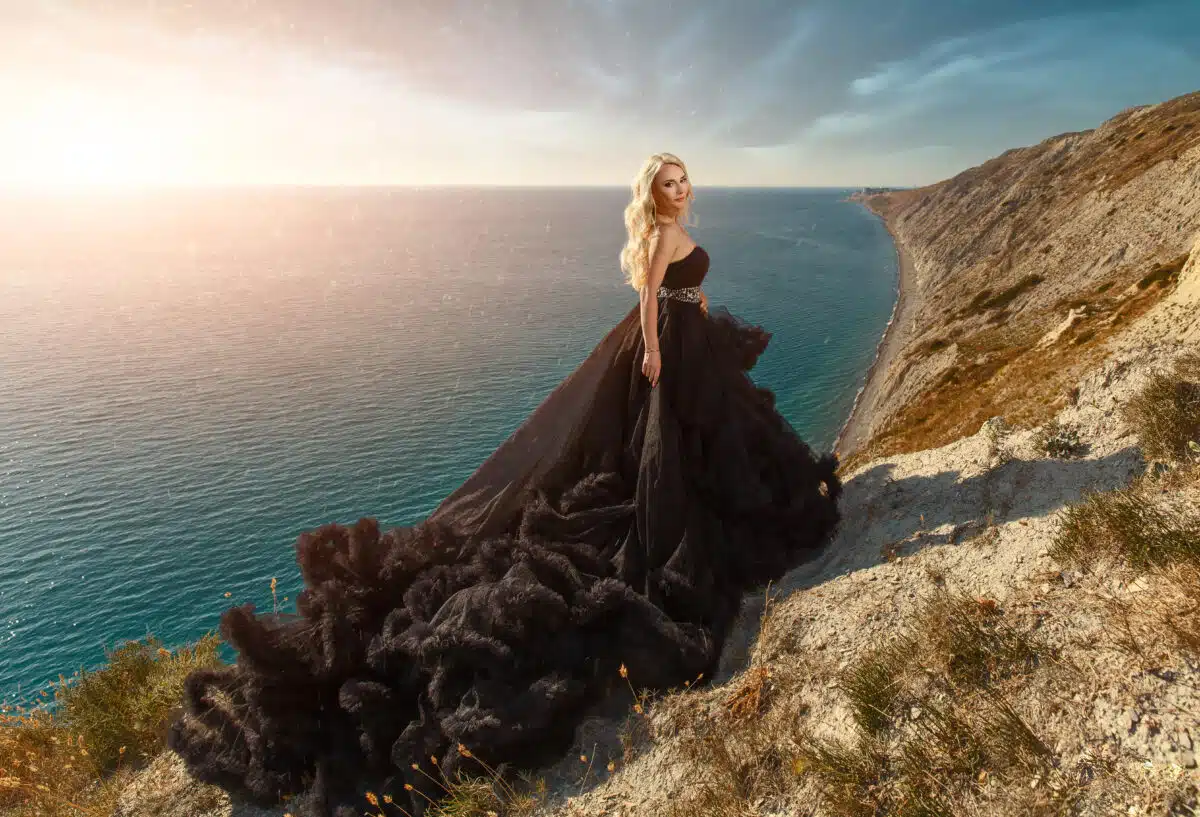
“South Sea Islands” by John Wilson
Oh, many are the beauteous isles
Unknown to human eye,
That, sleeping mid the Ocean smiles,
In happy silence lie.
The ship may pass them in the night,
Nor the sailors know what a lovely sight
Is resting on the main,—
Some wandering ship who hath lost her way
And never, or by night or day,
Shall pass these isles again.
There, groves that bloom in endless spring
Are rustling to the radiant wing
Of birds, in various plumage, bright
As rainbow-hues or dawning light.
Soft-falling showers of blossoms fair
Float ever on the fragrant air,
Like showers of vernal snow,
And from the fruit-tree, spreading tall,
The richly ripened clusters fall
Oft as sea-breezes blow.
The sun and clouds alone possess
The joy of all that loveliness;
And sweetly to each other smile
The live-long day,—sun, cloud, and isle.
How silent lies each sheltered bay!
No other visitors have they
To their shores of silvery sand,
Than the waves that, murmuring in their glee,
All hurrying in a joyful band
Come dancing from the sea.
How did I love to sigh and weep
For those that sailed upon the deep,
When, yet a wondering child,
I sat alone at dead of night,
Hanging all breathless with delight
O’er their adventures wild!
Trembling I heard of dizzy shrouds,
Where up among the raving clouds
The sailor-boy must go;
Thunder and lightning o’er his head!
And should he fall—oh thought of dread!
Waves mountain-high below.
How leapt my heart with wildering fears,
Glazing on savage islanders
Ranged fierce in long canoe,
Their poisoned spears, their war-attire,
And plumes twined bright, like wreaths of fire,
Round brows of dusky hue!
What tears would fill my wakeful eyes
When some delicious paradise
(As if a cloud had rolled
On a sudden from the bursting sun),
Freshening the Ocean where it shone,
Flung wide its groves of gold!
No more the pining mariner
In wild delirium raves,
For like an angel, kind and fair,
That smiles and smiling saves,
The glory charms away distress,
Serene in silent loveliness
Amid the dash of waves.
“Floating Island” by William Wordsworth
Harmonious Powers with Nature work
On sky, earth, river, lake and sea;
Sunshine and cloud, whirlwind and breeze,
All in one duteous task agree.
Once did I see a slip of earth
(By throbbing waves long undermined)
Loosed from its hold; how, no one knew,
But all might see it float, obedient to the wind;
Might see it, from the mossy shore
Dissevered, float upon the Lake,
Float with its crest of trees adorned
On which the warbling birds their pastime take.
Food, shelter, safety, there they find;
There berries ripen, flowerets bloom;
There insects live their lives, and die;
A peopled world it is; in size a tiny room.
And thus through many seasons’ space
This little Island may survive;
But Nature, though we mark her not,
Will take away, may cease to give.
Perchance when you are wandering forth
Upon some vacant sunny day,
Without an object, hope, or fear,
Thither your eyes may turn, the Isle is passed away;
Buried beneath the glittering Lake,
Its place no longer to be found;
Yet the lost fragments shall remain
To fertilize some other ground.
“Long Island Sound” by Emma Lazarus
I see it as it looked one afternoon
In August,— by a fresh soft breeze o’erblown.
The swiftness of the tide, the light thereon,
A far-off sail, white as a crescent moon.
The shining waters with pale currents strewn,
The quiet fishing-smacks, the Eastern cove,
The semi-circle of its dark, green grove.
The luminous grasses, and the merry sun
In the grave sky; the sparkle far and wide,
Laughter of unseen children, cheerful chirp
Of crickets, and low lisp of rippling tide,
Light summer clouds fantastical as sleep
Changing unnoted while I gazed thereon.
All these fair sounds and sights I made my own.
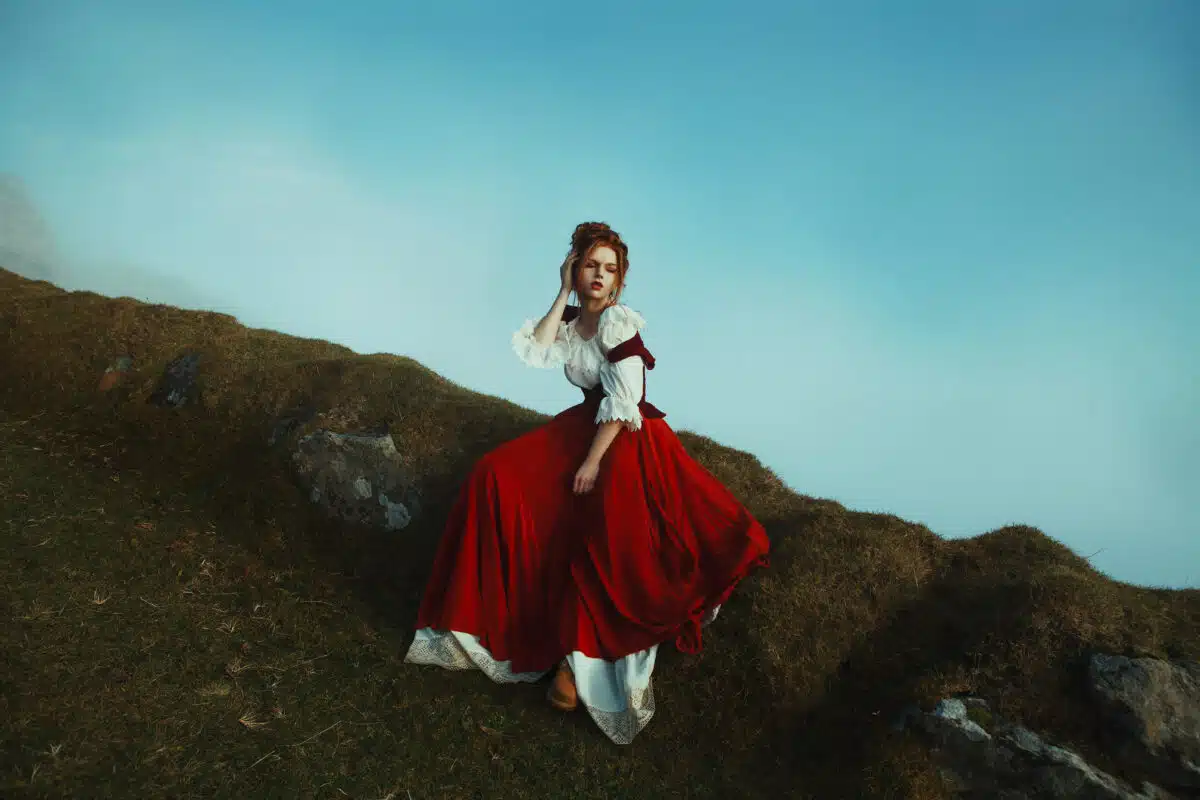
“The Island of Madeira” by Richard Chenevix Trench
Though never axe until a later day
Assailed thy forests’ huge antiquity,
Yet elder Fame had many tales of thee,—
Whether Phœnician shipman far astray
Had brought uncertain notices away
Of islands dreaming in the middle sea;
Or that man’s heart, which struggles to be free
From the old worn-out world, had never stay
Till, for a place to rest on, it had found
A region out of ken,—that happier isle,
Which the mild ocean-breezes blow around,—
Where they who thrice upon this mortal stage
Had kept their hands from wrong, their hearts from guile,
Should come at length, and live a tearless age.
“The White Island” by Robert Herrick
In this world, the Isle of Dreams,
While we sit by sorrow’s streams,
Tears and terrors are our themes,
Reciting:
But when once from hence we fly,
More and more approaching nigh
Unto young eternity,
Uniting
In that whiter Island, where
Things are evermore sincere:
Candour here, and lustre there,
Delighting:
There no monstrous fancies shall
Out of hell an horror call,
To create, or cause at all
Affrighting.
There, in calm and cooling sleep,
We our eyes shall never steep,
But eternal watch shall keep,
Attending
Pleasures such as shall pursue
Me immortalized, and you;
And fresh joys, as never too
Have ending.
“The Island Hunting-Song” by Oliver Wendell Holmes
No more the summer floweret charms,
The leaves will soon be sere,
And Autumn folds his jewelled arms
Around the dying year;
So, ere the waning seasons claim
Our leafless groves awhile,
With golden wine and glowing flame
We ‘ll crown our lonely isle.
Once more the merry voices sound
Within the antlered hall,
And long and loud the baying hounds
Return the hunter’s call;
And through the woods, and o’er the hill,
And far along the bay,
The driver’s horn is sounding shrill,–
Up, sportsmen, and away!
No bars of steel or walls of stone
Our little empire bound,
But, circling with his azure zone,
The sea runs foaming round;
The whitening wave, the purpled skies,
The blue and lifted shore,
Braid with their dim and blending dyes
Our wide horizon o’er.
And who will leave the grave debate
That shakes the smoky town,
To rule amid our island-state,
And wear our oak-leaf crown?
And who will be awhile content
To hunt our woodland game,
And leave the vulgar pack that scent
The reeking track of fame?
Ah, who that shares in toils like these
Will sigh not to prolong
Our days beneath the broad-leaved trees,
Our nights of mirth and song?
Then leave the dust of noisy streets,
Ye outlaws of the wood,
And follow through his green retreats
Your noble Robin Hood.
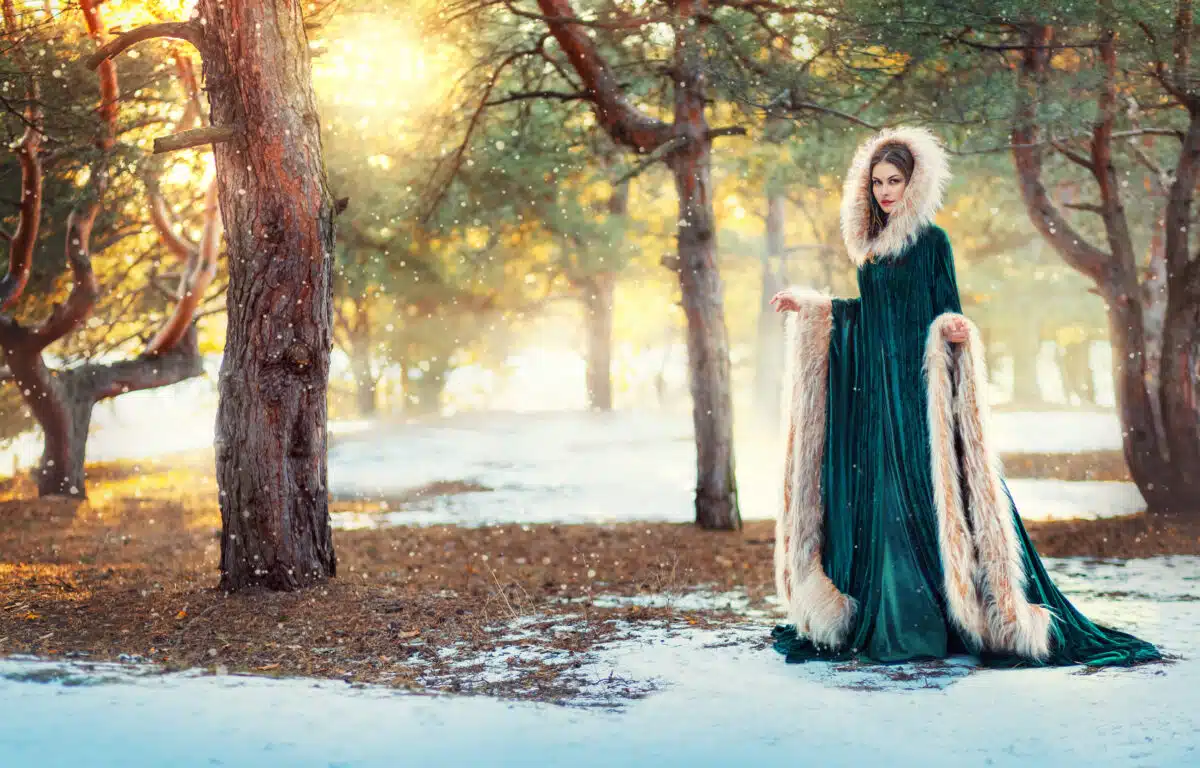
“Amherst Island” by Paul Cameron Brown
In winter, you were
a flash of light,
tundra against
Arctic floor
Warm breath
stirred yr
summer’s breast
and I saw
windblown hair
the colour of kelp
transfix
the lavender print
of a scalp strewn
shore
Later,
tiny bits
from
a calico dress
became domiciled wings
off butterflies,
miniature bitterns
ever more shadowy
strewn across the Barrens,
an unbridled strength from that
Faraway isle released to orchestrate sunlight
amongst all colonies that flower –
a statuesque Red Admiral,
Banded Purple,
feckless Comma
all aswirl to the
pipes of a Devil’s Paintbrush,
stranded drumfish, sage,
and tubercular ragwort
“The Island Of Endless Play” by Ella Wheeler Wilcox
Said Willie to Tom ‘Let us hie away
To the wonderful Island of Endless Play.
It lies off the border of ‘No School Land’
And abounds with pleasures, I understand.
There boys go swimming whenever they please
In a lovely river right under the trees.
And marbles are free, no one has to buy;
And kites of all sizes are ready to fly.
We sail down the Isthmus of Idle Delight,
We sail and we sail for a day and a night.
And then if favored by billows and breeze
We land in the harbor of Do-as-you-please.
And their lies the Island of Endless Play
With no one to say to us Must or Nay.
Books are not known in that land so fair,
Teachers are stoned if they set foot there.
Hurrah for the Island so glad and free,
That is the country for you and me.’
So away went Willie and Tom together
On a pleasure boat, in the lazy weather,
And they sailed in the teeth of a friendly breeze
Right into the harbor of ‘Do-as-you-please!’
Where boats and tackle and marbles and kites
Were waiting them there in this Land of Delights.
They dwelt on the Island of Endless Play
For five long years; then one sad day
A strange dark ship sailed up to the strand,
And ‘Ho! for the voyage to Stupid Land.’
The Captain cried with a terrible noise
As he seized the frightened and struggling boys,
And threw them into the dark Ship’s hold,
And off and away sailed the Captain bold.
They vainly begged him to let them out,
He answered only with scoff and shout.
‘Boys that don’t study or work,’ said he,
‘Must sail one day down the Ignorant Sea
To Stupid Land by the No-Book strait,
With Captain Time on the Pitiless Fate.’
Then he let out the sails and away went the three,
Over the waters of Ignorant Sea.
Out and away to Stupid Land,
And they live there yet, I understand.
And there’s where every one goes, they say,
Who seeks the Island of Endless Play.
“Lines Written at Castle Island, Lake Superior” by Jane Johnston Schoolcraft
Here in my native inland sea
From pain and sickness would I flee
And from its shores and island bright
Gather a store of sweet delight.
Lone island of the saltless sea!
How wide, how sweet, how fresh and free
How all transporting—is the view
Of rocks and skies and waters blue
Uniting, as a song’s sweet strains
To tell, here nature only reigns.
Ah, nature! here forever sway
Far from the haunts of men away
For here, there are no sordid fears,
No crimes, no misery, no tears
No pride of wealth; the heart to fill,
No laws to treat my people ill.
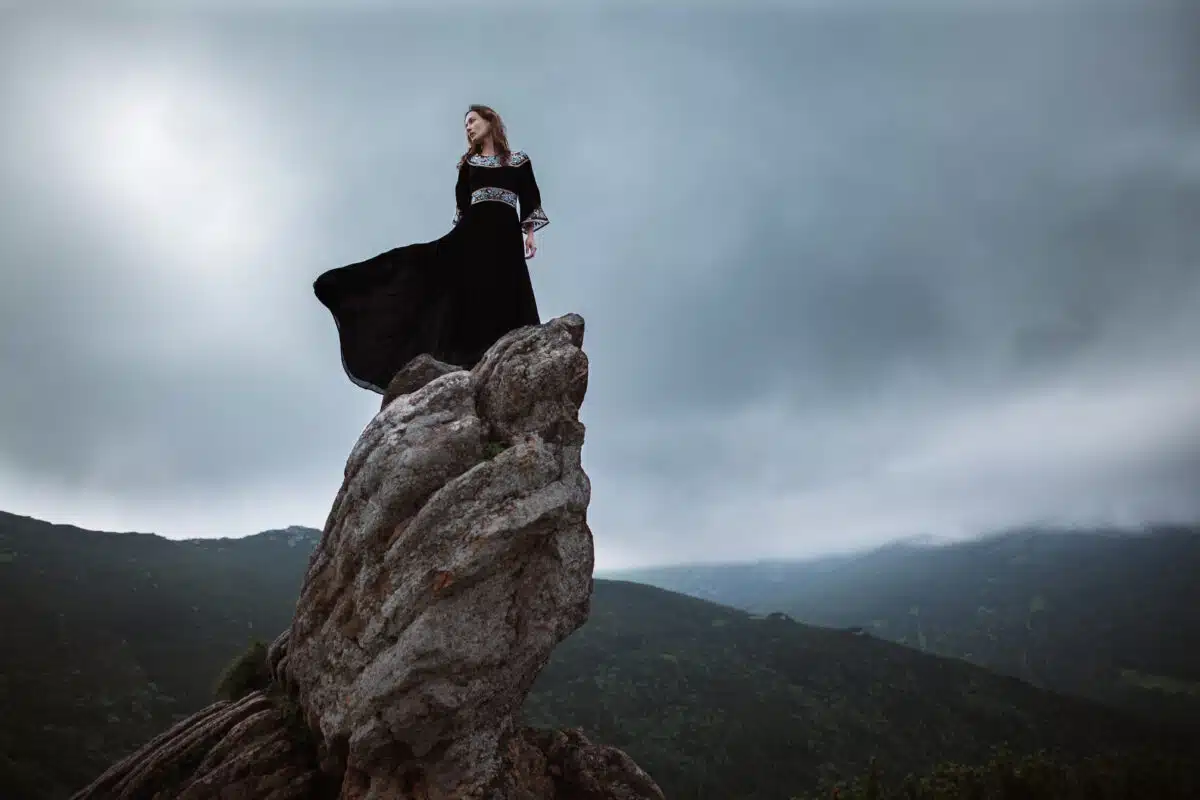
“A View of Rhode Island” by Philip Freneau
Wash’d by surrounding seas, and bold her coasts,
A grateful soil the fair Rhode Island boasts.
The admiring eye no happier fields can trace,
Here seas are crowned with the scaly race,
Nature has strove to make her native blest
And owns no fairer Eden in the west:
Here lovliest dames in frequent circles seen,
Catch the fine tint of health from beauty’s queen,
No aid they want to seize the enraptur’d view
Nor art’s false colours to improve the true;
Here, love the traveller holds—loth to depart
Some charming creature slays his wandering heart,
Bids him forget from clime to clime to rove,
And even dull prudence—here—submits to love.
On grassy farms, their souls enslav’d to gain,
Reside the masters of the rural reign;
Vast herds they feed, that glut the abundant pail,
Break the stiff sod, or freight the adventurous sail;
The nervous steed, the stanchest of the kind
Here walks his rounds in pastures unconfin’d:—
Half that the lands produce or seas contain
To other shores transported o’er the main
Returns in coin, to cheer the miser’s eye,
In foreign sweets, that fancied wants supply,
Or tawdry stuffs, to deck the limbs of pride,
That thus expends what avarice strove to hide.
But, hostile to themselves, this jarring race
In desperate interests, different plans embrace—
One, bold in wrong, his paper fabric rears
And steels his bosom to the orphan’s tears
To those he ruin’d grants no late relief!
But leaves the wretched to subsist on grief!
In lost advice his days the gownsman spends,
He gives his prayers and teachings to the winds,—
In vain he tells of virtue’s sure reward;
No words but this attract a swain’s regard—
Talk not of Laws!—where innocence must fall,
One spark of honour more than damns them all;
And vainly Science her assistance lends
Where knavery shapes it to the basest ends,
Fraud walks at large,—each selfish passion reigns,
And cheats enforce what honesty disdains.
Hurt at the view, I leave the ungrateful shore
And thy rough soil, Connecticut, explore:
“Dirge on Guillen Peraza” by Anonymous (John Leyden, Translator)
Peraza, virgins fair and chaste
Wail, as you wish for heaven to smile!
That flower of youth has faded fast,
That lovely flower, too fair to last,
Lies withered in wild Palma’s Isle.
The Palm no more shalt thou be styled,
Thou scene of dire disgrace and shame!
Thy name shall be the Bramble wild,
The Cypress sad by death defiled,
That sunk so dear a chieftain’s fame!
May dire volcanoes waste thy plains,
Pleasures desert thy guilty land,
Be haunted still by woes and pains,
And still, for spring’s reviving rains,
Thy flowery fields o’erwhelmed with sand!
Peraza! where is now thy shield?
Peraza! where is now thy spear?
No more his lance the chief shall wield,
His broken weapons strew the field:
Alas, for victory bought so dear!
“Madeira” by Michael Drayton
Then Macham, who (through love to long adventures led)
Medera’s wealthy Isles the first discoveréd,
Who having stolen a maid, to whom he was affied,
Yet her rich parents still her marriage rites denied,
Put with her forth to sea, where, many a danger past,
Upon an isle of those at length by tempest cast;
And putting in, to give his tender love some ease,
Which very ill had brooked the rough and boisterous seas;
And lingering for her health within the quiet bay,
The mariners most false fled with the ship away,
When as it was not long but she gave up her breath;
When he whose tears in vain bewailed her timeless death,
That their deservéd rites her funeral could not have,
A homely altar built upon her honored grave.
When with his folk but few, not passing two or three,
There making them a boat, but rudely of one tree,
Put forth again to sea, where after many a flaw,
Such as before themselves scarce mortal ever saw,
Nor miserable men could possibly sustain,
Now swallowed with the waves, and then spewed up again,
At length were on the coast of sunburnt Affrick thrown,
T’ amaze that further world, and to amuse our own.
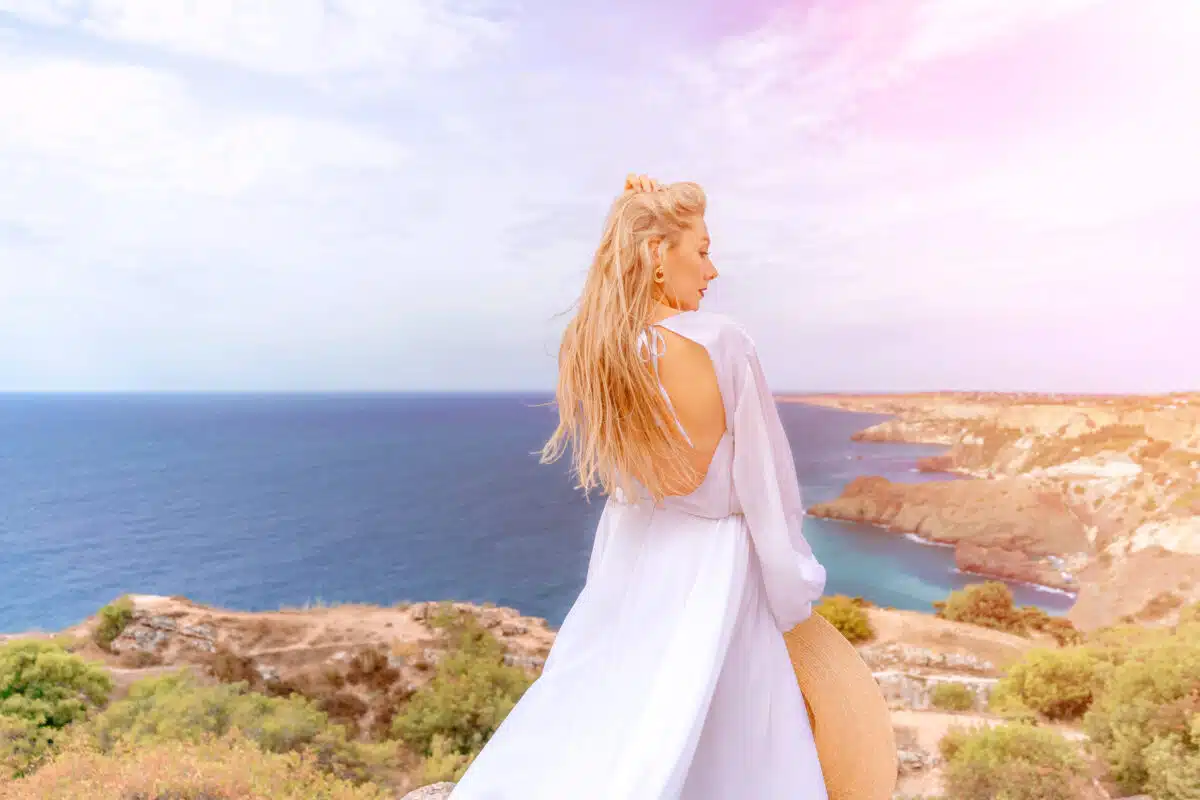
“Long Island in Late October” by Isaac McLellan
October’s flaming banners, of purple and of gold,
O’er all the bowery woodland, are flauntingly unroll’d;
From his o’er-brimming urn red Autumn pours his dyes
O’er all thy realm, Long Island, from clouds that sail the skies.
They woods of elm and chestnut, so emerald-green ere-while,
Now glow with brightest blushes, suffus’d with Autumn’s smile.
The maples of the uplands are flush’d with royal red,
And robes and garlands golden o’er the pasture-oaks are spread;
The sumacs by the roadside now wear a scarlet crown,
The bayberry bushes by the beach are clad in russet brown;
The apple orchards, late despoil’d of all their ruddy globes,
Tinet with the frost are all array’d in varicolor’d robes;
And low in swamps and thickets of cedar and of pine
The woodbines redden, and the lithe, high-clambering grape-vine.
And there the village children come, the purpling grapes to glean,
Whose clusters load the alders that o’er the streamlets lean.
The grass of summer uplands, where far the sheep-flock strays,
The bush-grass of the meadows, where wading cattle graze,
So green erewhile, are wither’d now, and thro’ their thin brown leaves
The sorrowful breeze is sighing, like one in pain that grieves.
The bubbling brook, whose currents glide through banks of living green,
So clear that in the crystal depths the spotted trout were seen,
Creeps brown and turbid now, all chok’d with foliage sere–
A clouded mirror now, erewhile transparent clear;
Nor more the angler comes with tapering rod to sweep
The brook or limpid pond where dark tree-shadows creep.
I stand high up a hillside, where, far as eye may reach,
Stretch out fair woods and fields, and the sandy yellow beach;
The harvest crops are garner’d, the fields lie brown and bare,
The thresher’s flail in distant barns resounds upon the air;
I hear the cowboy’s call, the whistle of the bird,
And all the joyous sounds of rural life are heard.
I hear the piping quail and the gunner’s weapon ring,
And see the startled coveys burst forth upon the wing;
I hear far overhead, in the upper realms of air,
The honking of wild geese, as onward swift they fare;
And in the salt bay meadows I see the fowler’s boat,
I hear his gun, I see the smoke above his ambush float;
I see the platoons of the coot, the squadrons of the brant,
And hovering black-ducks, the shallow coves that haunt,
The shelldrake and the broad-bill, and all the feather’d flocks
Which haunt the open bays and wheel o’er ocean rocks.
Fair scenes, bright scenes, enchanting scenes! that fill
The heart with o’erflowing joy, and all the life pulses thrill,
So fair in all your autumn pomp, in all your summer green,
When woods are bright, skies full of light, and waters smile serene!
“Madeira” by William Lisle Bowles
The Favoriing gales invite; the bowsprit bears
Right onward to the fearful shade; more black
The cloudy spectre towers; already fear
Shrinks at the view aghast and breathless. Hark!
’T was more than the deep murmur of the surge
That struck the ear; whilst through the lurid gloom
Gigantic phantoms seem to lift in air
Their misty arms; yet, yet,—bear boldly on,—
The mist dissolves; seen through the parting haze,
Romantic rocks, like the depictured clouds,
Shine out; beneath, a blooming wilderness
Of varied wood is spread, that scents the air;
Where fruits of “golden rind,” thick interspersed
And pendent, through the mantling umbrage gleam
Inviting. Cypress here, and stateliest pine,
Spire o’er the nether shades, as emulous
Of sole distinction where all nature smiles.
Some trees, in sunny glades alone their head
And graceful stem uplifting, mark below
The turf with shadow; whilst in rich festoons
The flowery lianes braid their boughs; meantime
Choirs of innumerous birds of liveliest song
And brightest plumage, flitting through the shades,
With nimble glance are seen; they, unalarmed,
Now near in airy circles sing, then speed
Their random flight back to their sheltering bowers,
Whose silence, broken only by their song,
From the foundation of this busy world,
Perhaps had never echoed to the voice,
Or heard the steps of Man. What rapture fired
The strangers’ bosoms, as from glade to glade
They passed, admiring all, and gazing still
With new delight! ’T is solitude around;
Deep solitude, that on the gloom of woods
Primeval fearful hangs: a green recess
Now opens in the wilderness; gay flowers
Of unknown name purple the yielding sward;
The ring-dove murmurs o’er their head, like one
Attesting tenderest joy; but mark the trees,
Where, slanting through the gloom, the sunshine rests!
Beneath, a moss-grown monument appears,
O’er which the green banana gently waves
Its long leaf; and an aged cypress near
Leans, as if listening to the streamlet’s sound
That gushes from the adverse bank; but pause,—
Approach with reverence! Maker of the world,
There is a Christian’s cross! and on the stone
A name, yet legible amid its moss,—
Anna!
“The Thousand Isles” by J. R. Ramsay
’T is evening tide, the mottled sky
Is glorious in the sinking sun;
Now Heaven’s serene immensity
Seems flashing forth the words, “Well done!”
And sacred, superhuman hues
Adorn the dim declivity,
And shape the intermingling views
As fair as Eden’s landscapes be.
Our bark, like fate’s strange shuttle through
The azure web, threads onward where
Green islands fleck the liquid blue,
As low clouds fleck the living air.
Which is an isle, and which can be
A cloud, is half a mystery;
Both are of a supernal growth,
And Sol’s last radiance sets on both
In one fond blush of pensive hues
(They softly flash and interfuse),
As if to beckon us away
Beyond the precincts of decay.
And we would follow him in high
Immeasurable majesty,
By one oblivious plunge to be
From human solitude set free,
But fear the night, so soon to cast
This glory by, may ever last.
Some isles are rocky bastions old,
Shaped when the ancient ages rolled
Around their thunder-rended forms
Earthquakes and unremembered storms.
But some are exquisitely planned
By Beauty’s spiritual hand
For purposes of peace, and still
They have no part in human ill.
Each hour a deeper ray emits,
That o’er the wandering water flits,
Like sanguine leaves when they forsake
The lofty branches for the lake;
Such colors tinge the beams that pass
Yon cloud’s ensanguined chrysopras.
Lo, every bird for joy is still
In river, vale, or island hill;
And, past the purple mounts of pine,
Lulling the winds with wands divine,
The imperial monarch of the day
Wheels his irrevocable way
Far off, through clouds whose living flames
Would woo the world to wiser aims;
Sweet seraphs, blushing for the sin
Of some originally kin—
Alas, how beautiful! they seem
Through countless centuries to dream,
Calm as the peace that comes from care,
Pure as a child’s face flushed with prayer,
Soft as a transient velvet rose,
Still as the waves when winds repose,
Lone as this solitude of green,
Dim as those purple depths unseen,
Vast as the visions angels spread
Around a bard’s or prophet’s bed,
As round the seer of Patmos shone
The sea of glass and crystal throne,
The city’s glorious streets, and all
That held his poet soul in thrall.

“The Palatine” by John Greenleaf Whittier
Leagues north, as fly the gull and auk,
Point Judith watches with eye of hawk;
Leagues south, thy beacon flames, Montauk!
Lonely and wind-shorn, wood-forsaken,
With never a tree for Spring to waken,
For tryst of lovers or farewells taken,
Circled by waters that never freeze,
Beaten by billow and swept by breeze,
Lieth the island of Manisees,
Set at the mouth of the Sound to hold
The coast lights up on its turret old,
Yellow with moss and sea-fog mould.
Dreary the land when gust and sleet
At its doors and windows howl and beat,
And Winter laughs at its fires of peat!
But in summer time, when pool and pond,
Held in the laps of valleys fond,
Are blue as the glimpses of sea beyond;
When the hills are sweet with the brier-rose,
And, hid in the warm, soft dells, unclose
Flowers the mainland rarely knows;
When boats to their morning fishing go,
And, held to the wind and slanting low,
Whitening and darkening the small sails show,—
Then is that lonely island fair;
And the pale health-seeker findeth there
The wine of life in its pleasant air.
No greener valleys the sun invite,
On smoother beaches no sea-birds light,
No blue waves shatter to foam more white!
There, circling ever their narrow range,
Quaint tradition and legend strange
Live on unchallenged, and know no change.
Old wives spinning their webs of tow,
Or rocking weirdly to and fro
In and out of the peat’s dull glow,
And old men mending their nets of twine,
Talk together of dream and sign,
Talk of the lost ship Palatine,—
The ship that, a hundred years before,
Freighted deep with its goodly store,
In the gales of the equinox went ashore.
The eager islanders one by one
Counted the shots of her signal gun,
And heard the crash when she drove right on!
Into the teeth of death she sped:
(May God forgive the hands that fed
The false lights over the rocky Head!)
O men and brothers! what sights were there!
White upturned faces, hands stretched in prayer!
Where waves had pity, could ye not spare?
Down swooped the wreckers, like birds of prey
Tearing the heart of the ship away,
And the dead had never a word to say.
And then, with ghastly shimmer and shine
Over the rocks and the seething brine,
They burned the wreck of the Palatine.
In their cruel hearts, as they homeward sped,
“The sea and the rocks are dumb,” they said:
“There ’ll be no reckoning with the dead.”
But the year went round, and when once more
Along their foam-white curves of shore
They heard the line-storm rave and roar,
Behold! again, with shimmer and shine,
Over the rocks and the seething brine,
The flaming wreck of the Palatine!
So, haply in fitter words than these,
Mending their nets on their patient knees,
They tell the legend of Manisees.
Nor looks nor tones a doubt betray;
“It is known to us all,” they quietly say;
“We too have seen it in our day.”
Is there, then, no death for a word once spoken?
Was never a deed but left its token
Written on tables never broken?
Do the elements subtle reflections give?
Do pictures of all the ages live
On Nature’s infinite negative,
Which, half in sport, in malice half,
She shows at times, with shudder or laugh,
Phantom and shadow in photograph?
For still, on many a moonless night,
From Kingston Head and from Montauk light
The spectre kindles and burns in sight.
Now low and dim, now clear and higher,
Leaps up the terrible Ghost of Fire,
Then, slowly sinking, the flames expire.
And the wise Sound skippers, though skies be fine,
Reef their sails when they see the sign
Of the blazing wreck of the Palatine!
“Saint Christopher” by James Grainger
Such, green Saint Christopher, thy happy soil!—
Not Grecian Tempe, where Arcadian Pan,
Knit with the Graces, tuned his sylvan pipe,
While mute Attention hushed each charmèd rill;
Not purple Enna, whose irriguous lap,
Strewed with each fruit of taste, each flower of smell,
Sicilian Proserpine, delighted, sought,
Can vie, blest isle, with thee. Though no soft sound
Of pastoral stop thine echoes e’er awaked;
Nor raptured poet, lost in holy trance,
Thy streams arrested with enchanting song:
Yet virgins, far more beautiful than she
Whom Pluto ravished, and more chaste, are thine:
Yet probity, from principle, not fear,
Actuates thy sons, bold, hospitable, free;
Yet a fertility, unknown of old,
To other climes denied, adorns thy hills;
Thy vales, thy dells adorns.
“Verses Written at the Island of Sagur” by John Leyden
On sea-girt Sagur’s desert isle,
Mantled with thickets dark and dun,
May never moon or starlight smile,
Nor ever beam the summer sun! —
Strange deeds of blood have there been done,
In mercy ne’er to be forgiven;
Deeds the far-seeing eye of heaven
Veiled his radiant orb to shun.
To glut the shark and crocodile
A mother brought her infant here:
She saw its tender playful smile,
She shed not one maternal tear; —
She threw it on a waterv bier: —
With grinding teeth sea monsters tore
The smiling infant which she bore:—
She shrunk not once its cries to hear!
Ah! mark that victim wildly drest,
His streaming beard is hoar and grey,
Around him floats a crimson vest,
Red-flowers his matted locks array.—
Heard you these brazen timbrels bray?
His heart-blood on the lotus-flower
They offer to the Evil Power;
And offering turn their eyes away.
Dark Goddess of the iron mace,*
Flesh-tearer! quaffing life-blood warm,
The terrors of thine awful face
The pulse of mortal hearts alarm. —
Grim Power! if human woes can charm,
Look to the horrors of the flood,
Where crimson’d Ganga shines in blood,
And man-devouring monsters swarm.
Skull-chaplet-wearer! whom the blood
Of man delights a thousand years,
Than whom no face, by land or flood,
More stern and pitiless appears,
Thine is the cup of human tears.
For pomp of human sacrifice
Cannot the cruel blood suffice
Of tigers, which thine island rears?
Not all blue Ganga’s mountain-flood,
That rolls so proudly round thy fane,
Shall cleanse the tinge of human blood,
Nor wash dark Sagur’s impious stain:
The sailor, journeying on the main,
Shall view from far the dreary isle,
And curse the ruins of the pile
Where Mercy ever sued in vain.
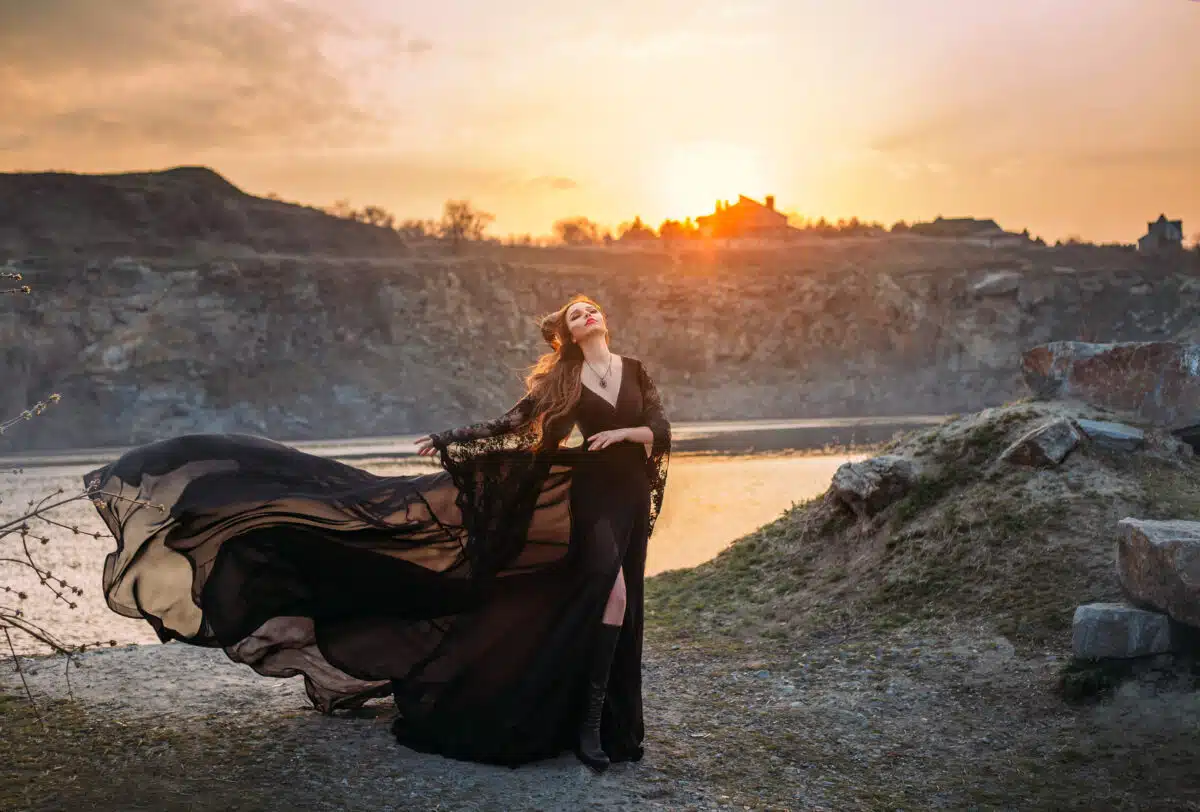
“To the Setting Sun” by John Leyden
Fair light of heaven! where is thy couch of rest?
That thy departing beams so sweetly smile:
Thou sleepest calm in that green happy isle
That rises mid the waters of the west.
Sweet are thy tidings from the land of hills
To spirits of the dead who round thee throng,
And chaunt in concert shrill thine evening song.
Whose magic sound the murmuring ocean stills:
Calm is thy rest amid these fields so green,
Where never breathes the deep heart-rending sigh,
Nor tears of sorrow dim the sufferer’s eye. —
Then why revisit this unhappy scene,
Like the lone lamp that lights the sullen tomb,
To add new horrors to sepulchral gloom?
“Ballade of the Voyage to Cythera” by Andrew Lang
I know Cythera long is desolate;
I know the winds have stripp’d the gardens green.
Alas, my friends! beneath the fierce sun’s weight
A barren reef lies where Love’s flowers have been,
Nor ever lover on that coast is seen!
So be it, but we seek a fabled shore,
To lull our vague desires with mystic lore,
To wander where Love’s labyrinths beguile;
There let us land, there dream for evermore:
“It may be we shall touch the happy isle.”
The sea may be our sepulchre. If Fate,
If tempests wreak their wrath on us, serene
We watch the bolt of heaven, and scorn the hate
Of angry gods that smite us in their spleen.
Perchance the jealous mists are but the screen
That veils the fairy coast we would explore.
Come, though the sea be vex’d, and breakers roar,
Come, for the air of this old world is vile,
Haste we, and toil, and faint not at the oar;
“It may be we shall touch the happy isle.”
Grey serpents trail in temples desecrate
Where Cypris smiled, the golden maid, the queen,
And ruined is the palace of our state;
But happy Loves flit round the mast, and keen
The shrill wind sings the silken cords between.
Heroes are we, with wearied hearts and sore,
Whose flower is faded and whose locks are hoar,
Yet haste, light skiffs, where myrtle thickets smile;
Love’s panthers sleep ’mid roses, as of yore:
“It may be we shall touch the happy isle!”
ENVOY.
Sad eyes! the blue sea laughs, as heretofore.
Ah, singing birds your happy music pour!
Ah, poets, leave the sordid earth awhile;
Flit to these ancient gods we still adore:
“It may be we shall touch the happy isle!”
“Sicily December 1908” by Tertius and Henry Van Dyke
O garden isle, beloved by Sun and Sea,
Whose bluest billows kiss thy curving bays,
Whose light infolds thy hills with golden rays,
Filling with fruit each dark-leaved orange-tree,
What hidden hatred hath the Earth for thee,
That once again, in these dark, dreadful days,
Breaks forth in trembling rage, and swiftly lays
Thy beauty waste in wreck and agony!
Is Nature, then, a strife of jealous powers,
And man the plaything of unconscious fate?
Not so, my troubled heart! God reigns above,
And man is greatest in his darkest hours.
Walking amid the cities desolate,
Behold the Son of God in human love!
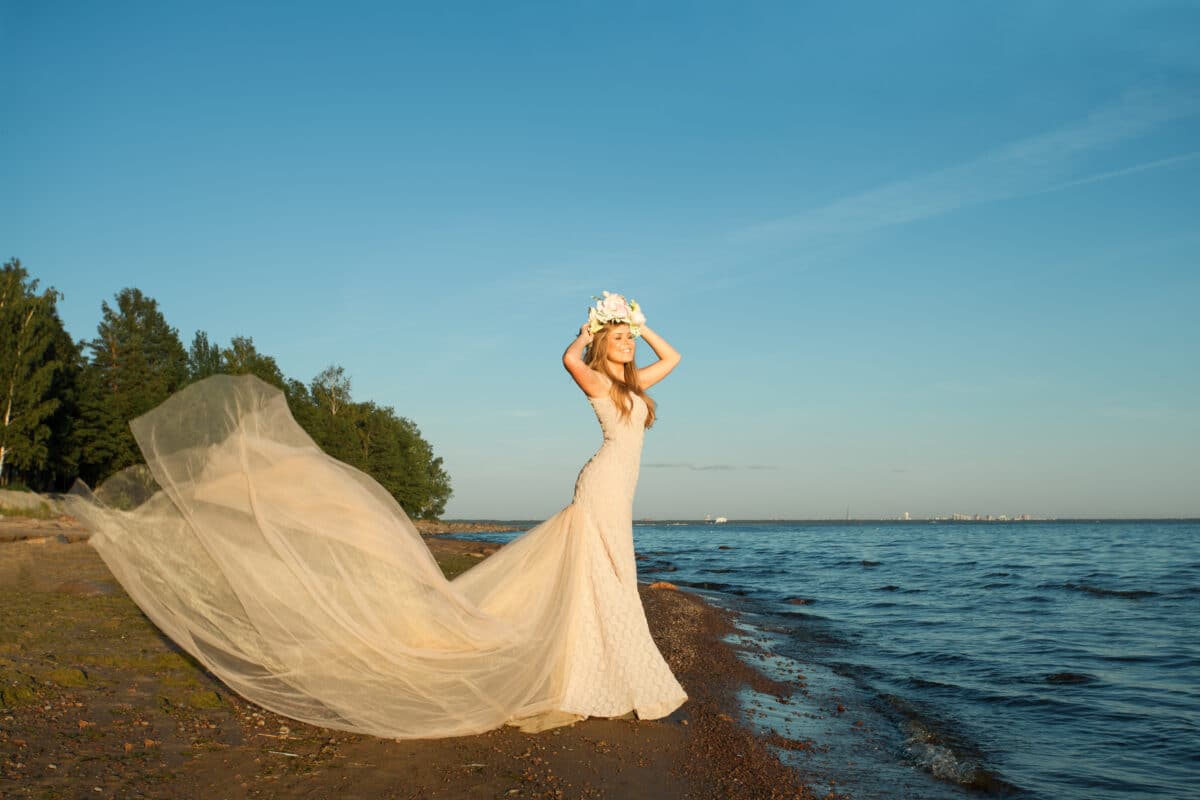
“Prima Vista” by Thomas D’Arcy McGee
“Land! land!” how welcome is the word
To all,—or landsmen bred or seamen!
Deep in their lairs the sick are stirred,—
The decks are thronged with smiling women.
The face that had gone down in tears
Ten days since in the British Channel,
Now, like Aurora, reappears,—
Aurora wrapped in furs and flannel.
“Where?” “Yonder, on the right, dost see
A firm dark line, and close thereunder
A white line drawn along the sea,
A flashing line whose voice is thunder?”
“It seems to be a fearsome coast,—
No trees, no hospitable whiffs,—
God help the crew whose ship is lost
On yonder homicidal cliffs!”
“Amen!” say I to that sweet prayer:
“The land, indeed, looks sad and stern,
No female savans’ field-day there,
Collecting butterflies and fern.
An iron land it seems from far,
On which no shepherd’s flock reposes;
Lashed by the elemental war,
The land is not a land of roses.”
Proudly, O Prima Vista! still,
Where sweeps the sea-hawk’s fearless pinion,
Do thou unfurl from every hill
The banner of the New Dominion!
Proudly to all who sail the sea,
Bear then, advanced, the Union standard,
And friendly may its welcome be
To all men, seaward bound or landward!
All hail! old Prima Vista! long
As break the billows on thy boulders,
Will seamen hail thy lights with song,
And home-hopes quicken all beholders.
Long as thy headlands point the way
Between man’s old and new creation,
Evil fall from thee like the spray,
And hope illumine every station!
Long may thy hardy sons count o’er
The spoils of ocean, won by labor;
Long may the free, unbolted door
Be open to each trusty neighbor!
Long, long may blossom on thy rocks
Thy sea-pinks, fragrant as the heather;
Thy maidens of the flowing locks
Safe sheltered from life’s stormy weather!
Yes! this is Prima Vista! this
The very landmark we have prayed for;
Darkly they wander who have missed
The guidance yon stern land was made for.
Call it not homicidal, then,
The New World’s outwork; grim its beauty,
This guardian of the lives of men,
Clad in the garb that does its duty!
Less gayly trills the lover lark
Above the singing swain at morning,
Than rings through sea-mists chill and dark
This name of welcome and of warning.
Not happier to his cell may go
The saint, triumphant o’er temptation,
Than the worn captain turns below,
Relieved as by a revelation.
How blest, when Cabot ventured o’er
This northern sea, yon rocks rose gleaming!
A promised land seemed Labrador
(Nor was the promise all in seeming);
Strong sea-wall, still it stands to guard
An island fertile, fair as any,
The rich, but the unreaped reward
Of Cabot and of Verrazzani!
“Lines Written in the Isle of Bute” by David Macbeth Moir
Ere yet dim twilight brightened into day,
Or waned the silver morning star away,
Shedding its last, lone, melancholy smile,
Above the mountain-tops of far Argyll;
Ere yet the solan’s wing had brushed the sea,
Or issued from its cell the mountain bee;
As dawn beyond the orient Cumbraes shone,
Thy northern slope, Byrone,
From Ascog’s rocks, o’erflung with woodland bowers,
With scarlet fuchsias, and faint myrtle flowers,
My steps essayed; brushing the diamond dew
From the soft moss, lithe grass, and harebell blue.
Up from the heath aslant the linnet flew
Startled, and rose the lark on twinkling wing,
And soared away, to sing
A farewell to the severing shades of night,
A welcome to the morning’s earliest light.
Thy summit gained, how tranquilly serene,
Beneath, outspread that panoramic scene
Of continent and isle, and lake and sea,
And tower and town, hill, vale, and spreading tree,
And rock and ruin tinged with amethyst,
Half seen, half hidden by the lazy mist,
Volume on volume, which had vaguely wound
The far-off hills around,
And now rolled downwards; till on high were seen,
Begirt with sombre larch, their foreheads green.
There, there, when all except the lark was mute,
O beauty-breathing Bute,
On thee entranced I gazed; each moment brought
A new creation to the eye of thought:
The orient clouds all Iris’ hues assumed,
From the pale lily to the rose that bloomed,
And hung above the pathway of the sun,
As if to harbinger his course begun;
When, lo! his disk burst forth,—his beams of gold
Seemed earth as with a garment to enfold,
And from his piercing eye the loose mists flew,
And heaven with arch of deep autumnal blue
Glowed overhead; while ocean, like a lake,
Seeming delight to take
In its own halcyon-calm, resplendent lay,
From Western Kames to far Kilchattan bay.
Old Largs looked out amid the orient light,
With its gray dwellings, and, in greenery bright,
Lay Coila’s classic shores revealed to sight;
And like a Vallombrosa, veiled in blue,
Arose Mount-Stuart’s woodlands on the view;
Kerry and Cowal their bold hill-tops showed,
And Arran, and Kintyre; like rubies glowed
The jagged clefts of Goatfell; and below,
As on a chart, delightful Rothesay lay,
Whence sprang of human life the awakening sound,
With all its happy dwellings, stretching round
The semicircle of its sunbright bay.
Byrone, a type of peace thou seemest now,
Yielding thy ridges to the rustic plough,
With cornfields at thy feet, and many a grove
Whose songs are but of love;
But different was the aspect of that hour
Which brought, of eld, the Norsemen o’er the deep,
To wrest yon castle’s walls from Scotland’s power,
And leave her brave to bleed, her fair to weep;
When Husbac fierce, and Olave, Mona’s king,
Confederate chiefs, with shout and triumphing,
Bade o’er its towers the Scaldic raven fly,
And mock each storm-tost sea-king toiling by!—
Far different were the days
When flew the fiery cross, with summoning blaze,
O’er Blane’s hill, and o’er Catan, and o’er Kames,
And round thy peak the phalanxed Butesmen stood,
As Bruce’s followers shed the Baliol’s blood,
Yea! gave each Saxon homestead to the flames!
Proud palace-home of kings! what art thou now?
Worn are the traceries of thy lofty brow!
Yet once in beauteous strength like thee were none,
When Rothesay’s Duke was heir to Scotland’s throne;
Ere Falkland rose, or Holyrood, in thee
The barons to their sovereign bowed the knee:
Now, as to mock thy pride,
The very waters of thy moat are dried;
Through fractured arch and doorway freely pass
The sunbeams, into halls o’ergrown with grass;
Thy floors, unroofed, are open to the sky,
And the snows lodge there when the storm sweeps by;
O’er thy grim battlements, where bent the bow
Thine archers keen, now hops the chattering crow;
And where the beauteous and the brave were guests,
Now breed the bats, the swallows build their nests!
Lost even the legend of the bloody stair,
Whose steps went downward to thy house of prayer;
Gone is the priest, and they who worshipped seem
Phantoms to us,—a dream within a dream;
Earth hath o’ermantled each memorial stone,
And from their tombs the very dust is gone;
All perished, all forgotten, like the ray
Which gilt yon orient hill-tops yesterday;
All nameless, save mayhap one stalwart knight,
Who fell with Græme in Falkirk’s bloody fight,—
Bonkill’s stout Stewart, whose heroic tale
Oft circles yet the peasant’s evening fire,
And how he scorned to fly, and how he bled,—
He, whose effigies in St. Mary’s choir,
With planted heel upon the lion’s head,
Now rests in marble mail.
Yet still remains the small dark narrow room
Where the third Robert, yielding to the gloom
Of his despair, heart-broken, laid him down,
Refusing food, to die; and to the wall
Turned his determined face, unheeding all,
And to his captive boy-prince left his crown.
Alas! thy solitary hawthorn-tree,
Four-centuried, and o’erthrown, is but of thee
A type, majestic ruin: there it lies,
And annually puts on its Mayflower bloom,
To fill thy lonely precincts with perfume,
Yet lifts no more its green head to the skies;
The last lone living thing around that knew
Thy glory, when the dizziness and din
Of thronging life o’erflowed thy halls within,
And o’er thy top St. Andrew’s banner flew.
Farewell! Elysian island of the west,
Still be thy gardens brightened by the rose
Of a perennial spring, and winter’s snows
Ne’er chill the warmth of thy maternal breast!
May calms forever sleep around thy coast,
And desolating storms roll far away,
While art with nature vies to form thy bay,
Fairer than that which Naples makes her boast!
Green link between the High lands and the Low,—
Thou gem, half claimed by earth and half by sea,—
May blessings, like a flood, thy homes o’erflow,
And health, though elsewhere lost, be found in thee!
May thy bland zephyrs to the pallid cheek
Of sickness ever roseate hues restore,
And they who shun the rabble and the roar
Of the wild world on thy delightful shore
Obtain that soft seclusion which they seek!
Be this a stranger’s farewell, green Byrone,
Who ne’er hath trod thy heathery heights before,
And ne’er may see thee more
After yon autumn sun hath westering gone;
Though oft, in pensive mood, when far away,
Mid city multitudes, his thoughts will stray
To Ascog’s lake, blue-sleeping in the morn,
And to the happy homesteads that adorn
Thy Rothesay’s lovely bay.
“My Native Isle” by Mary Gardiner Horsford
My native isle! my native isle!
For ever round thy sunny steep
The low waves curl, with sparkling foam,
And solemn murmurs deep;
While o’er the surging waters blue
The ceaseless breezes throng,
And in the grand old woods awake
An everlasting song.
The sordid strife and petty cares
That crowd the city’s street,
The rush, the race, the storm of Life,
Upon thee never meet;
But quiet and contented hearts
Their daily tasks fulfil,
And meet with simple hope and trust
The coming good or ill.
The spireless church stands, plain and brown,
The winding road beside;
The green graves rise in silence near,
With moss-grown tablets wide;
And early on the Sabbath morn,
Along the flowery sod,
Unfettered souls, with humble prayer,
Go up to worship God.
And dearer far than sculptured fane
Is that gray church to me,
For in its shade my mother sleeps,
Beneath the willow-tree;
And often, when my heart is raised
By sermon and by song,
Her friendly smile appears to me
From the seraphic throng.
The sunset glow, the moonlit stream,
Part of my being are;
The fairy flowers that bloom and die,
The skies so clear and far:
The stars that circle Night’s dark brow,
The winds and waters free,
Each with a lesson all its own,
Are monitors to me.
The systems in their endless march
Eternal truth proclaim;
The flowers God’s love from day to day
In gentlest accents name;
The skies for burdened hearts and faint
A code of Faith prepare;
What tempest ever left the Heaven
Without a blue spot there?
My native isle! my native isle!
In sunnier climes I’ve strayed,
But better love thy pebbled beach
And lonely forest glade,
Where low winds stir with fragrant breath
The purple violet’s head,
And the star-grass in the early Spring
Peeps from the sear leaf’s bed.
I would no more of strife and tears
Might on thee ever meet,
But when against the tide of years
This heart has ceased to beat,
Where the green weeping-willows bend
I fain would go to rest,
Where waters chant, and winds may sweep
Above my peaceful breast.
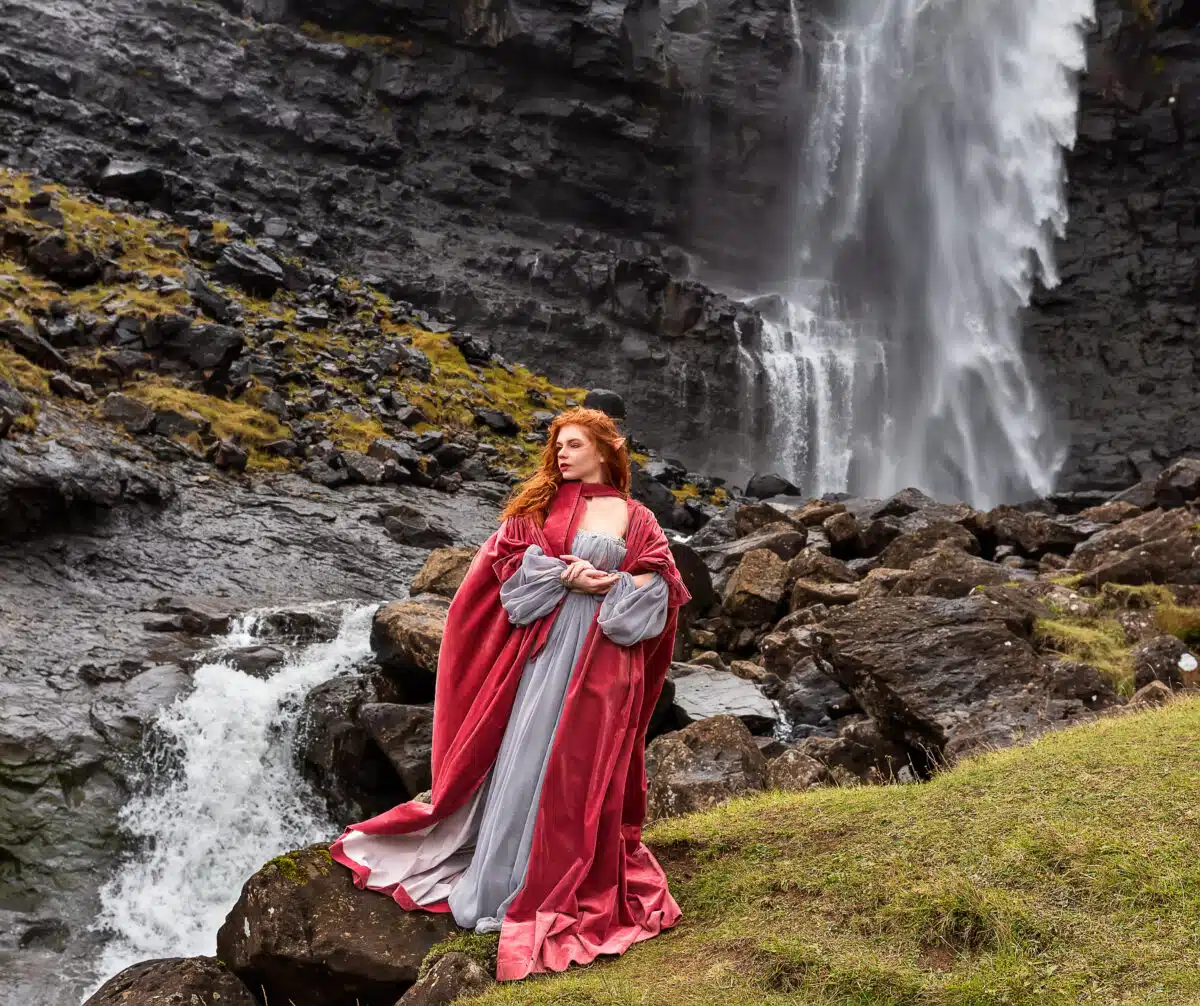
“The Isle of Wight” by Michael Drayton
When as the pliant Muse, with fair and even flight,
Betwixt her silver wings is wafted to the Wight;
That isle, which jutting out into the sea so far,
Her offspring traineth up in exercise of war,
Those pirates to put back, that oft purloin her trade,
Or Spaniards or the French attempting to invade.
Of all the southern isles she holds the highest place,
And evermore hath been the great’st in Britain’s grace:
Not one of all her nymphs her sovereign favoreth thus,
Embraced in the arms of old Oceanus.
For none of her account so near her bosom stand,
’Twixt Penwith’s farthest point and Goodwin’s queachy sand,
Both for her seat and soil, that far before the other
Most justly may account great Britain for her mother.
A finer fleece than hers not Lemster’s self can boast,
Nor Newport, for her mart, o’ermatched by any coast.
To these the gentle South, with kisses smooth and soft,
Doth in her bosom breathe, and seems to court her oft.
Besides her little rills, her inlands that do feed,
Which with their lavish streams do furnish every need;
And meads, that with their fine soft grassy towels stand
To wipe away the drops and moisture from her hand;
And to the north, betwixt the fore-land and the firm,
She hath that narrow sea which we the Solent term;
Where those rough ireful tides, as in her streights they meet,
With boisterous shocks and roars each other rudely greet:
Which fiercely when they charge, and sadly make retreat,
Upon the bulwarkt forts of Hurst and Calsheot beat,
Then to Southampton run: which by her shores supplied
(As Portsmouth by her strength), doth vilify their pride.
“Isle of Founts: An Indian Tradition” by Felicia Hemans
Son of the stranger! wouldst thou take
O’er yon blue hills thy lonely way,
To reach the still and shining lake
Along whose banks the west winds play?
Let no vain dreams thy heart beguile—
Oh! seek thou not the Fountain Isle!
Lull but the mighty serpent-king,
Midst the gray rocks, his old domain;
Ward but the cougar’s deadly spring,—
Thy step that lake’s green shore may gain;
And the bright Isle, when all is pass’d,
Shall vainly meet thine eye at last!
Yes! there, with all its rainbow streams,
Clear as within thine arrow’s flight,
The Isle of Founts, the isle of dreams,
Floats on the wave in golden light;
And lovely will the shadows be
Of groves whose fruit is not for thee!
And breathings from their sunny flowers,
Which are not of the things that die,
And singing voices from their bowers,
Shall greet thee in the purple sky;
Soft voices, e’en like those that dwell
Far in the green reed’s hollow cell.
Or hast thou heard the sounds that rise
From the deep chambers of the earth?
The wild and wondrous melodies
To which the ancient rocks gave birth?
Like that sweet song of hidden caves
Shall swell those wood-notes o’er the waves.
The emerald waves!—they take their hue
And image from that sun-bright shore;
But wouldst thou launch thy light canoe,
And wouldst thou ply thy rapid oar,—
Before thee, hadst thou morning’s speed,
The dreamy land should still recede!
Yet on the breeze thou still wouldst hear
The music of its flowering shades,
And ever should the sound be near
Of founts that ripple through its glades;
The sound, and sight, and flashing ray
Of joyous waters in their play!
But woe for him who sees them burst
With their bright spray-showers to the lake!
Earth has no spring to quench the thirst
That semblance in his soul shall wake,
For ever pouring through his dreams
The gush of those untasted streams!
Bright, bright in many a rocky urn,
The waters of our deserts lie,
Yet at their source his lip shall burn,
Parch’d with the fever’s agony!
From the blue mountains to the main,
Our thousand floods may roll in vain.
E’en thus our hunters came of yore
Back from their long and weary quest;—
Had they not seen th’ untrodden shore?
And could they midst our wilds find rest?
The lightning of their glance was fled,
They dwelt amongst us as the dead!
They lay beside our glittering rills
With visions in their darken’d eye;
Their joy was not amidst the hills
Where elk and deer before us fly:
Their spears upon the cedar hung,
Their javelins to the wind were flung.
They bent no more the forest bow,
They arm’d not with the warrior band,
The moons waned o’er them dim and slow—
They left us for the spirits’ land!
Beneath our pines yon greensward heap
Shows where the restless found their sleep.
Son of the stranger! if at eve
Silence be midst us in thy place,
Yet go not where the mighty leave
The strength of battle and of chase!
Let no vain dreams thy heart beguile—
Oh! seek thou not the Fountain Isle!
“St. Catherine’s” by Philip Freneau
He that would wish to rove awhile
In forests green and gay,
From Charleston Bar to Catharines Isle
Might sigh to find the way!
What scenes on every side appear,
What pleasure strikes the mind,
From Folly’s train, thus wandering far,
To leave the world behind.
The music of these savage groves
In simple accents swells,
And freely here their sylvan loves
The feathered nation tells;
The panting deer through mingled shades
Of oaks forever green
The vegetable world invades,
That skirts the watery scene.
Thou sailor, now exploring far
The broad Atlantic wave,
Crowd all your canvas, gallant tar,
Since Neptune never gave
On barren seas so fine a view
As here allures the eye,
Gay, verdant scenes that Nature drew
In colours from the sky.
Ye western winds! awhile delay
To swell the expecting sail, ?
Who would not here, a hermit, stay
In yonder fragrant vale,
Could he engage what few can find,
That coy, unwilling guest
(All avarice banishd from the mind),
Contentment, in the breast!
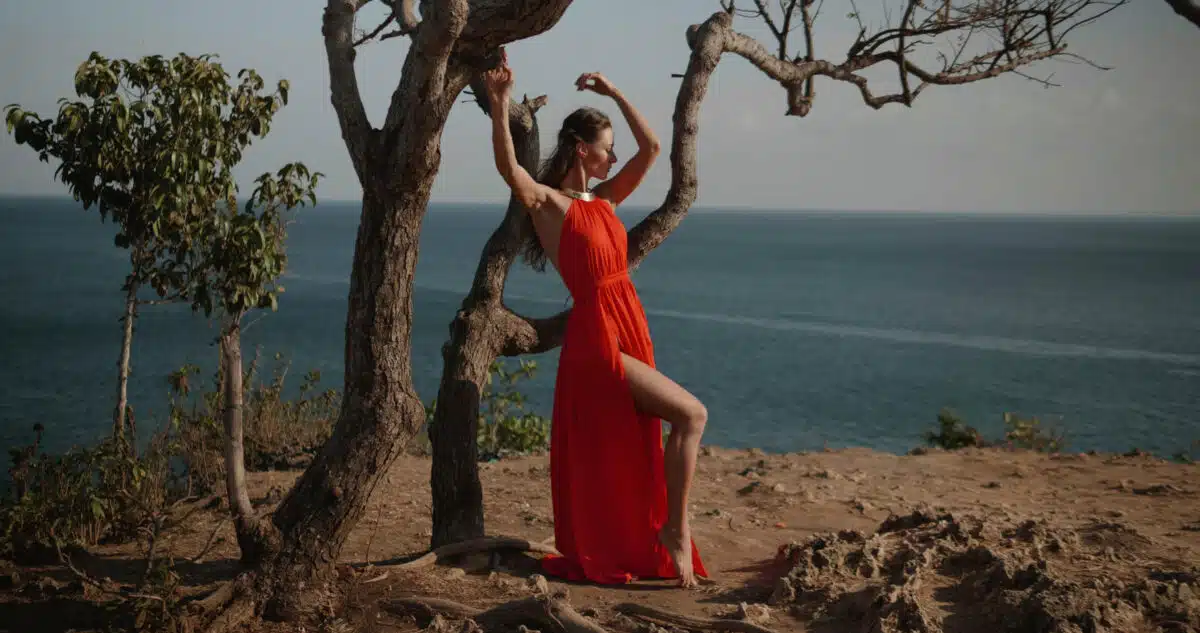
“The Cataract Isle” by Christopher Pearse Cranch
I wandered through the ancient wood
That crowns the cataract isle.
I heard the roaring of the flood
And saw its wild, fierce smile.
Through tall tree-tops the sunshine flecked
The huge trunks and the ground;
And the pomp of fullest summer decked
The island all around.
And winding paths led all along
Where friends and lovers strayed;
And voices rose with laugh and song
From sheltered nooks of shade.
Through opening forest vistas whirled
The rapids’ foamy flash,
As they boiled along and plunged and swirled,
And neared the last long dash.
I crept to the island’s outer verge,
Where the grand, broad river fell —
Fell sheer down mid foam and surge,
In a white and blinding hell!
The steady rainbow gayly shone
Above the precipice;
And a deep, low tone of a thunder-groan
Rolled up from the drear abyss.
And all the day sprang up the spray,
Where the broad, white sheets were poured,
And fell around in showery play,
Or upward curled and soared.
And all the night those sheets of white
Gleamed through the spectral mist,
When o’er the isle the broad moonlight
The wintry foam-flakes kissed.
Mirrored within thy dreamy thought,
I see it, feel it all, —
That island with sweet visions fraught,
That awful waterfall.
With sunflecked trees, and birds, and flowers,
The Isle of Life is fair:
But one deep voice thrills through its hours,
One spectral form is there, —
A power no mortal can resist,
Rolling forever on, —
A floating cloud, a shadowy mist,
Eternal undertone!
And through the sunny vistas gleam
The fate, the solemn smile;
Life is Niagara’s rushing stream;
Its dreams — that peaceful isle!
“San Salvador” by Joanna Baillie
It was a land unmarred by art,
To please the eye and cheer the heart:
The natives’ simple huts were seen
Peeping their palmy groves between,—
Groves, where each dome of sweepy leaves
In air of morning gently heaves,
And, as the deep vans fall and rise,
Changes its richly verdant dyes;
A land whose simple sons till now
Had scarcely seen a careful brow;
They spent at will each passing day
In lightsome toil or active play.
Some their light canoes were guiding,
Along the shore’s sweet margin gliding.
Some in the sunny sea were swimming,
The bright waves o’er their dark forms gleaming;
Some on the beach for shell-fish stooping,
Or on the smooth sand gayly trooping;
Or in linked circles featly dancing
With golden braid and bracelet glancing.
By sheltered door were infants creeping,
Or on the shaded herbage sleeping;
Gay feathered birds the air were winging,
And parrots on their high perch swinging,
While humming-birds, like sparks of light,
Twinkled and vanished from the sight.
“The Bees of St. Simon’s” by John Henry Hopkins
There lies, far in the bosom of the seas,
An island fair:
All summer long the patient little bees
Are busy there.
The honey which they gather in their round,
Buzzing from flower to flower,
They hoard in a quaint beehive they have found
In the old church tower.
Like Jonathan, when fainting he did roam
The hungry waste,
How was he quickened when a honeycomb
He did but taste!
So to those weary laborers on lone shores,
This humble hive supplies
The luscious droppings of its annual stores
To light their eyes.
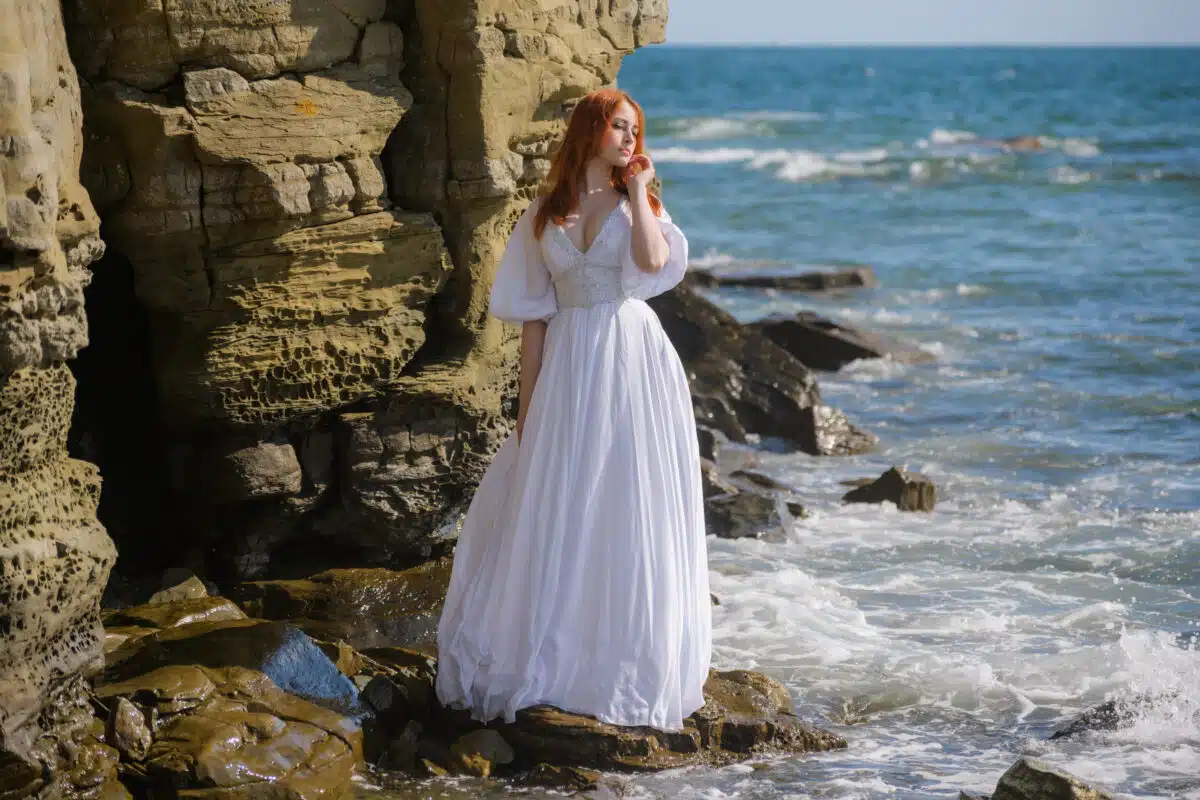
“Capri” by Alfred Austin
There is an isle, kissed by a smiling sea,
Where all sweet confluents meet: a thing of heaven,
A spent aërolite, that well may be
The missing sister of the starry Seven.
Celestial beauty nestles at its knee,
And in its lap is naught of earthly leaven.
’T is girt and crowned with loveliness; its year,
Eternal summer; winter comes not near.
’T is small, as things of beauty ofttimes are,
And in a morning round it you may row,
Nor need a tedious haste your bark debar
From gliding inwards where the ripples flow
Into strange grots whose roofs are azure spar,
Whose pavements liquid silver. Mild winds blow
Around your prow, and at your keel the foam,
Leaping and laughing, freshly wafts you home.
They call the island Capri,—with a name
Dulling an airy dream, just as the soul
Is clogged with body palpable,—and Fame
Hath long while winged the word from pole to pole.
Its human story is a tale of shame,
Of all unnatural lusts a gory scroll,
Record of what, when pomp and power agree,
Man once hath been, and man again may be.
Terrace and slope from shore to summit show
Of all rich climes the glad-surrendered spoil.
Here the bright olive’s phantom branches glow,
There the plump fig sucks sweetness from the soil.
Mid odorous flowers that through the Zodiac blow,
Returning tenfold to man’s leisured toil,
Hesperia’s fruit hangs golden. High in air,
The vine runs riot, spurning human care.
And flowers of every hue and breath abound,
Charming the sense; the burning cactus glows,
Like daisies elsewhere dappling all the ground,
And in each cleft the berried myrtle blows.
The playful lizard glides and darts around,
The elfin fireflies flicker o’er the rows
Of ripened grain. Alien to pain and wrong,
Men fill the days with dance, the nights with song.
“Port Royal” by Philip Freneau
Fair land of Cuba! on thy shores are seen
Life’s far extremes of noble and of mean,
The world of sense in matchless beauty dressed,
And nameless horrors hid within thy breast.
Ordained of Heaven the fairest flower of earth,
False to thy gifts, and reckless of thy birth!
The tyrant’s clamor, and the slave’s sad cry,
With the sharp lash in insolent reply,—
Such are the sounds that echo on thy plains,
While virtue faints, and vice unblushing reigns.
Rise, and to power a daring heart oppose!
Confront with death these worse than deathlike woes.
Unfailing valor chains the flying fate;
Who dares to die shall win the conqueror’s state.
We, too, can leave a glory and a name
Our children’s children shall not blush to claim;
To the far future let us turn our eyes,
And up to God’s still unpolluted skies.
Better to bare the breast, and, undismayed,
Meet the sharp vengeance of the hostile blade,
Than on the couch of helpless grief to lie,
And in one death a thousand deaths to die.
Fearest thou blood? Oh, better, in the strife,
From patriot wounds to pour the gushing life,
Than let it creep inglorious through the veins
Benumbed by sin and agony and chains!
What hast thou, Cuban? Life itself resign,—
Thy very grave is insecurely thine!
Thy blood, thy treasure, poured like tropic rain
From tyrant hands to feed the soil of Spain.
If it be truth, that nations still must bear
The crushing yoke, the wasting fetters wear,—
If to the people this be Heaven’s decree,
To clasp their shame, nor struggle to be free,
From truth so base my heart indignant turns,
With freedom’s frenzy all my spirit burns,—
That rage which ruled the Roman’s soul of fire,
And filled thy heart, Columbia’s patriot sire!
Cuba! thou still shalt rise, as pure, as bright,
As thy free air,—as full of living light;
Free as the waves that foam around thy strands,
Kissing thy shores, and curling o’er thy sands!
“Christmas Chimes in Distant Isles” by George Bancroft Griffith
Broad paddles uplifting, the spray from the Behring
Baptized all the bells under lee of the isle;
Their Boston inscription glad Russians were spelling,
As the vessel that bore them dipped colors the while.
The Arctic sun setting, for happy leave-taking,
With red hand anointed each slumbering tongue,
Till, sweeter than song-birds at early morn waking,
The first chime of bells in that distant clime rung!
And lo! the sea-eagle, broad pinions just poising,
From Mount St. Elias far inland to sweep,
Drooped wings in amaze, and his proud neck upraising,
With wonder-lit eyeballs gazed far o’er the deep.
O’er Yukan’s calm waters their light baider guiding,
Koloschians heard chime from Isle of St. Paul;
And each to next rower, in deep awe confiding,
Low whispered : “I hear the great Spirit’s footfall!”
Their oars drip apeak, and they wait for strange vision;
Aurora her magical banners unrolls;
As statue sits helmsman, while borne from far mission,
The silvery music enraptures all souls!
And leader of dog-sledge, his furry ears raising,
As flies the long yourt over deep-crusted snow,
Hears echoed carillon the Son of God praising,
And pauses, unmindful of whip’s cruel blow!
His hood of rich sable the voyageur loosens;
Like sword-hilt that slippeth from paralyzed hand,
The lash leaves his grasp, while he eagerly listens,
His keen glances roving o’er sea and o’er land.
E’en St. Michael’s sentry, the melody hearing,
Feels tears from his eyelids like summer rain fall;
The scenes of his childhood forever endearing,
Those echoes delicious that moment recall!
A New England homestead before him is dawning;
He sees the red cottage in flowery dell;
The group at the doorway one still summer morning,
And dear mother waving her sailor farewell!
His pent-up emotion no longer restraining,
The musket clangs earthward, and cheer upon cheer
The garrison startles; all rush to the paling,
And solt, dying echoes now charm every ear!
With white wine and biscuit the fishermen hardy
A feast held, to honor the bells of each isle;
“To salvation’s Rossignol never be tardy,”
Said priest, draining goblet with rapturous smile.
Ring on, thou sweet Angelus! the old story telling!
For precious souls herald a glad second birth;
Salvation’s hand holding, so patient and willing,
The chain wliose bright links shall encircle the earth!
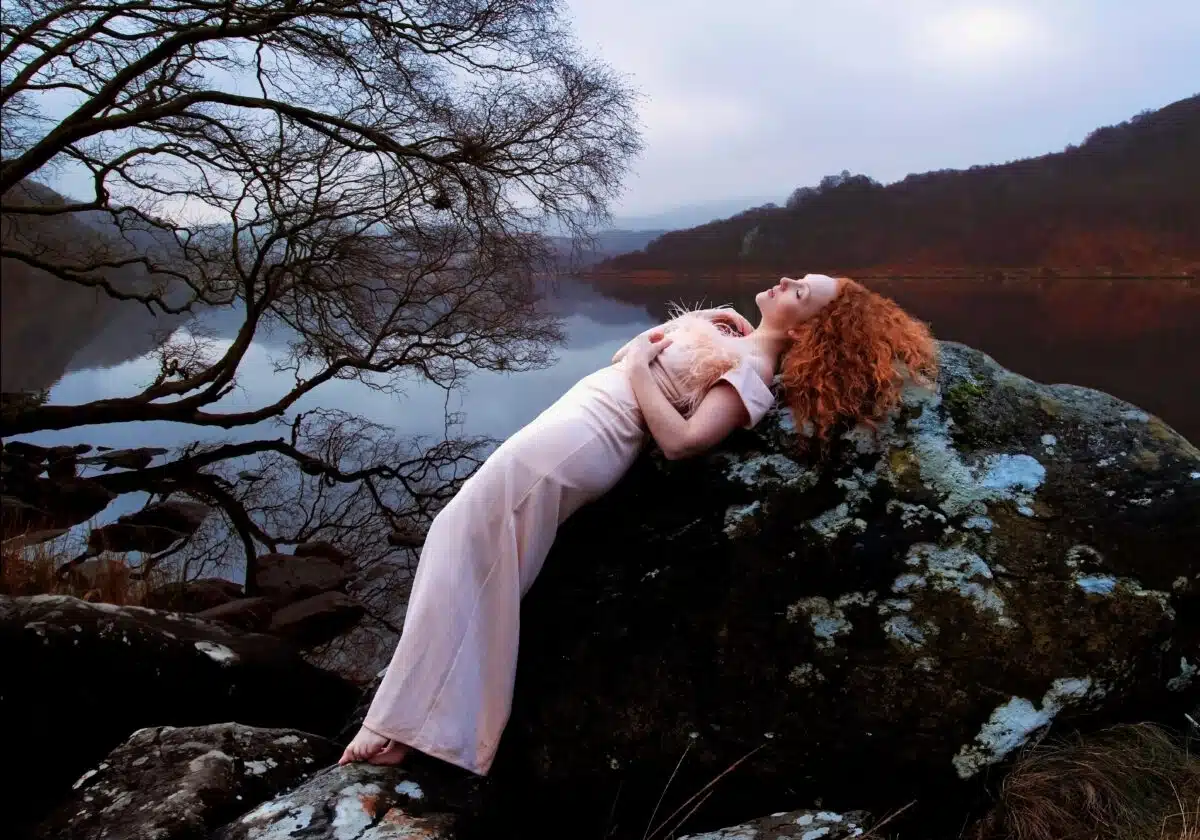
“Ischia” by Aubrey Thomas de Vere
Here in this narrow island glen
Between the dark hill and the sea,
Remote from books, remote from men,
I sit; but, O, how near to thee!
I bend above thy broidery frame;
I smell thy flowers; thy voice I hear:
Of Italy thou speak’st; that name
Woke long thy wish,—at last thy tear!
Hadst thou but watched that azure deep;
Those rocks with myrtles mantled o’er;
Misenum’s cape, yon mountains’ sweep;
The smile of that Circean shore!
But seen that crag’s embattled crest,
Whereon Colonna mourned alone,
An eagle widowed in her nest,—
Heart strong and faithful to thine own!
This was not in thy fates. Thy life
Lay circled in a narrower bound:
Child, sister, tenderest mother, wife,—
Love made that circle holy ground.
Love blessed thy home,—its trees, its earth,
Its stones,—that ofttimes trodden road
Which linked the region of thy birth
With that till death thy still abode.
From the loud river’s rocky beach
To that clear lake the woodlands shade,
Love stretched his arms. In sight of each
The place of thy repose is made.
“The Azure Grotto” by Charles D. Bell
I.
Beneath the vine-clad slopes of Capri’s Isle,
Which run down to the margin of that sea
Whose waters kiss the sweet Parthenope,
There is a grot whose rugged front the while
Frowns only dark where all is seen to smile.
But enter, and behold! surpassing fair
The magic sight that meets your vision there,—
Not heaven! with all its broad expanse of blue,
Gleams colored with a sheen so rich, so rare,
So changing in its clear, translucent hue;
Glassed in the lustrous wave, the walls and roof
Shine as does silver scattered o’er the woof
Of some rich robe, or bright as stars whose light
Inlays the azure concave of the night.
II.
You cannot find throughout this world, I ween,
Waters so fair as those within this cave,
Color like that which flashes from the wave,
Or which is steeped in such cerulean sheen
As here gleams forth within this grotto’s screen.
And when the oar the boatman gently takes
And dips it in the flood, a fiery glow,
Ruddy as phosphor, stirs in depths below;
Each ripple into burning splendor breaks,
As though some hidden fires beneath did lie
Waiting a touch to kindle into flame,
And shine in radiance on the dazzled eye,
As sparkling up from wells of light they came,
To make this grot a glory far and nigh.
“The Celebes” by John Boyle O’Reilly
Dear islands of the Orient,
Where Nature’s first of love was spent;
Sweet hill-tops of the summered land
Where gods and men went hand in hand
In golden days of sinless earth!
Woe rack the womb of time, that bore
The primal evil to its birth!
It came; the gods were seen no more:
The fields made sacred by their feet,
The flowers they loved, grown all too sweet,
The streams their bright forms mirrored,
The fragrant banks that made their bed,
The human hearts round which they wove
Their threads of superhuman love—
These were too dear and desolate
To sink to fallen man’s estate;
The gods who loved them loosed the seas,
Struck free the barriers of the deep,
That rolled in one careering sweep
And filled the land, as ’twere a grave,
And left no beauteous remnant, save
Those hill-tops called the Celebes.
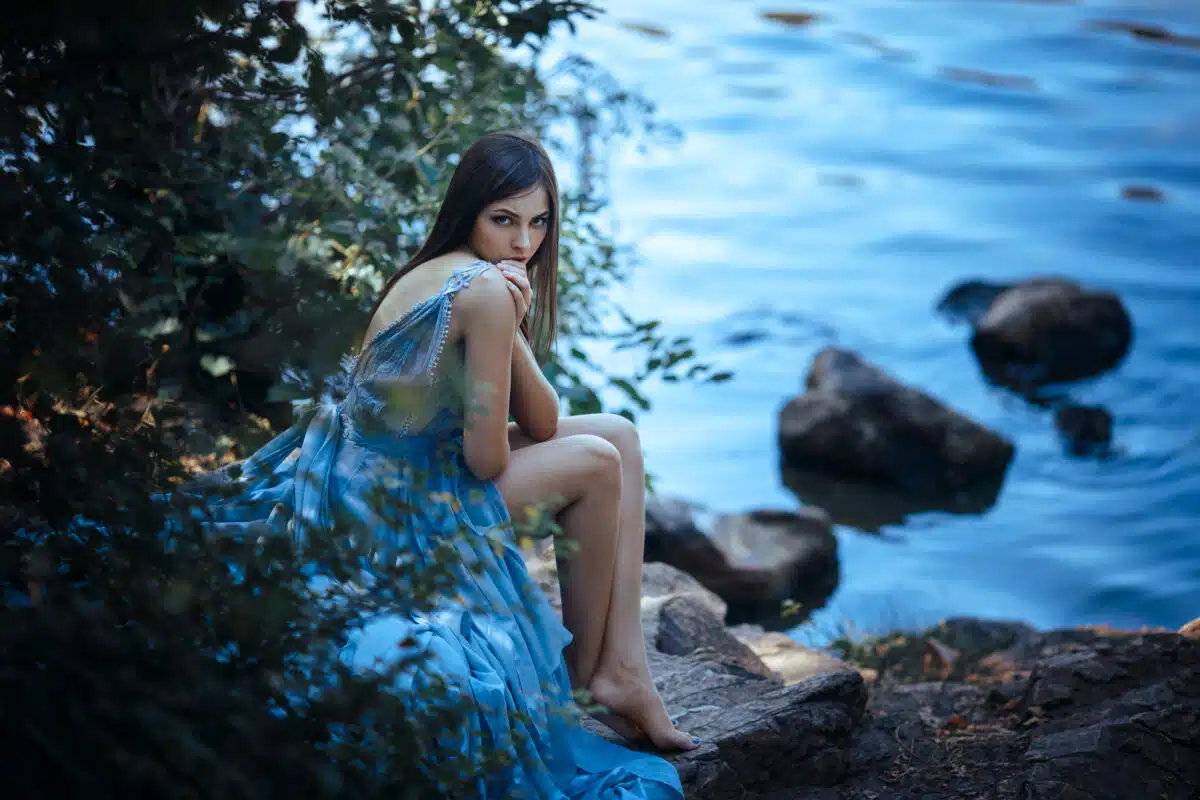
“The Bay Islet” by Philip Freneau
In shallow streams, a league from town,
(Its baby Light-House tumbled down)
Extends a country, full in view,
Beheld by all, but known to few.
Surrounded by the briny waste
No haven here has Nature placed;
But those who wish to pace it o’er
Must land upon the open shore.
There as I sailed, to view the ground;
No blooming goddesses I found—
But yellow hags, ordained to prove
The death, and antidote of love.
Ten stately trees adorn the isle,
The house, a crazy, tottering pile,
Where once the doctor plied his trade
On feverish tars and rakes decayed.
Six hogs about the pastures feed
(Sweet mud-larks of the Georgia breed)
Who, while the hostess deals out drams,
Can oysters catch, and open clams.
Upon its surface, smooth and clean,
A world, in miniature, is seen;
Though scarce a journey for a snail
We meet with mountain, hill, and vale.
To those that guard this stormy place,
Two cities stare them in the face:
There, York its spiry summits rears,
And here Cummunipaw appears.
The tenant, now but ill at ease,
Derives no fuel from his trees:
And Jersey boats, though begged to land,
All leave him on the larboard hand.
Some monied man, grown sick of care,
To this neglected spot repair:
What Nature sketched, let art complete,
And own the loveliest Country Seat.
“The Holy Isle” by Robert Southey
To Bardsey was the lord of ocean bound,—
Bardsey, the holy islet, in whose soil
Did many a chief and many a saint repose,
His great progenitors. He mounts the skiff;
Her canvas swells before the breeze; the sea
Sings round her sparkling keel; and soon the lord
Of ocean treads the venerable shore.
There was not, on that day, a speck to stain
The azure heaven; the blessed sun alone,
In unapproachable divinity,
Careered, rejoicing in his fields of light.
How beautiful, beneath the bright-blue sky,
The billows heave! one glowing green expanse,
Save where along the bending line of shore
Such hue is thrown as when the peacock’s neck
Assumes its proudest tint of amethyst,
Imbathed in emerald glory. All the flocks
Of ocean are abroad; like floating foam,
The sea-gulls rise and fall upon the waves;
With long-protruded neck the cormorants
Wing their far flight aloft; and round and round
The plovers wheel, and give their note of joy.
It was a day that sent into the heart
A summer feeling: even the insect-swarms
From their dark nooks and coverts issued forth,
To sport through one day of existence more;
The solitary primrose on the bank
Seemed now as though it had no cause to mourn
Its bleak autumnal birth; the rocks and shores,
The forest, and the everlasting hills,
Smiled in that joyful sunshine,—they partook
The universal blessing.
To this isle,
Where his forefathers were to dust consigned,
Did Madoc come for natural piety,
Ordering a solemn service for their souls.
“On Reading Paul and Virginia in Childhood” by Felicia Hemans
O gentle story of the Indian isle!
I loved thee in my lonely childhood well
On the sea-shore, when day’s last, purple smile
Slept on the waters, and their hollow swell
And dying cadence lent a deeper spell
Unto thine ocean-pictures. Midst thy palms
And strange bright birds, my fancy joy’d to dwell,
And watch the southern cross through midnight calms,
And track the spicy woods. Yet more I bless’d
Thy vision of sweet love—kind, trustful, true,
Lighting the citron groves, a heavenly guest,
With such pure smiles as Paradise once knew.
Even then my young heart wept o’er this world’s power
To reach with blight that holiest Eden-flower.
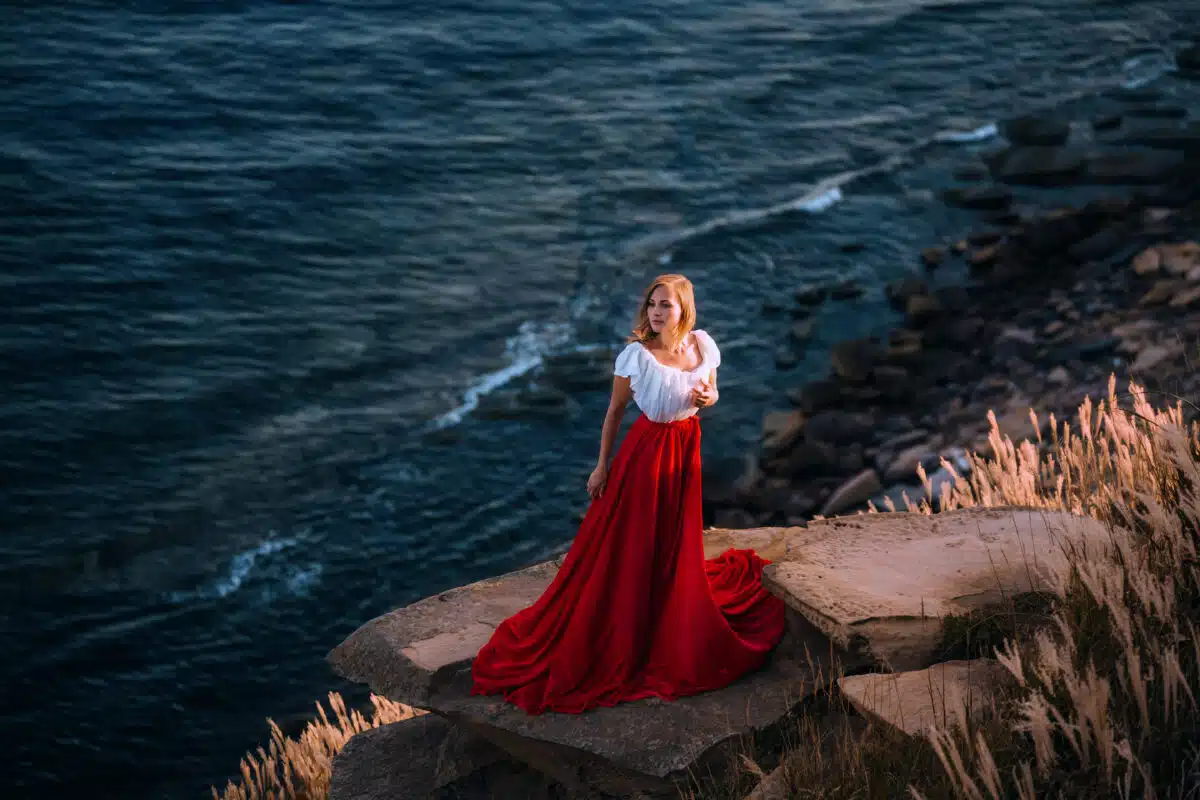
“The Green Isles of Ocean” by Felicia Hemans
Where are they, those green fairy islands, reposing
In sunlight and beauty on ocean’s calm breast?
What spirit, the things which are hidden disclosing,
Shall point the bright way to their dwellings of rest?
Oh! lovely they rose on the dreams of past ages,
The mighty have sought them, undaunted in faith;
But the land hath been sad for her warriors and sages,
For the guide to those realms of the blessèd is death.
Where are they, the high-minded children of glory,
Who steer’d for those distant green spots on the wave?
To the winds of the ocean they left their wild story,
In the fields of their country they found not a grave.
Perchance they repose where the summer-breeze gathers
From the flowers of each vale immortality’s breath;
But their steps shall be ne’er on the hills of their fathers—
For the guide to those realms of the blessèd is death.
Poems About Tropical Islands
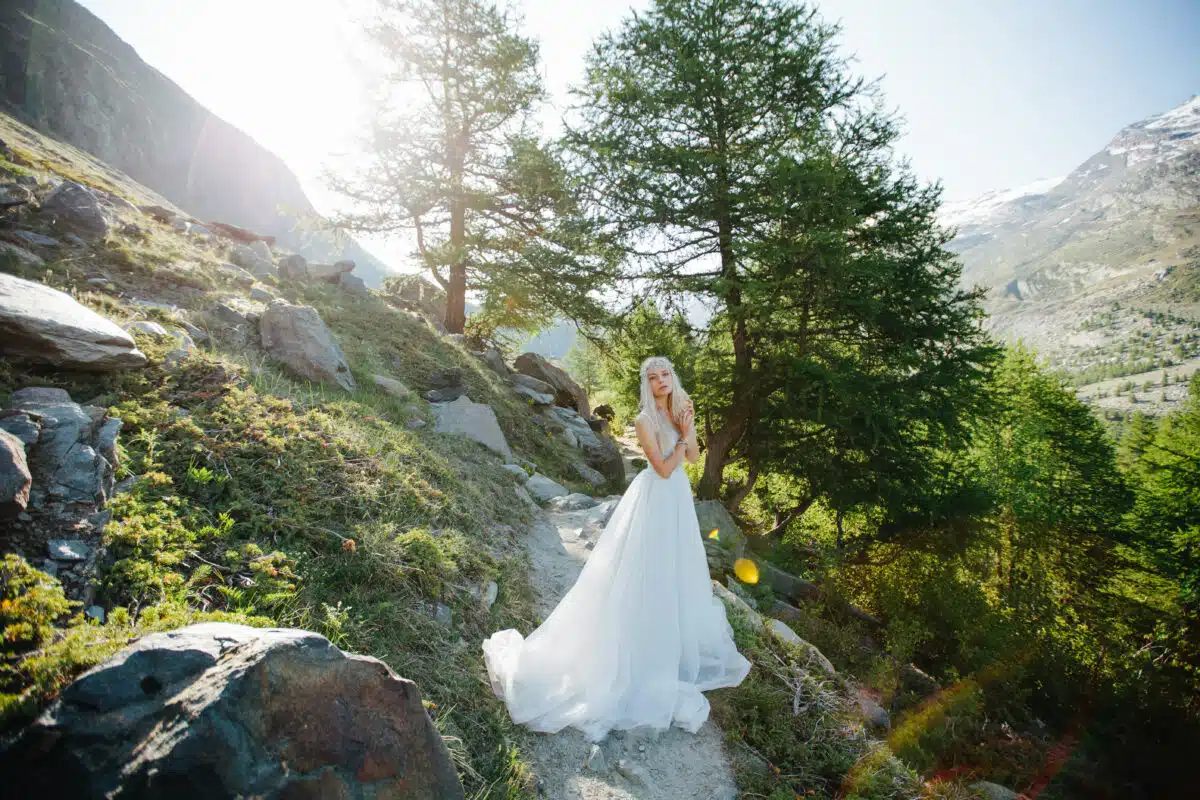
“Easter Island” by Frederick George Scott
There lies a lone isle in the tropic seas,—
A mountain isle, with beaches shining white,
Where soft stars smile upon its sleep by night,
And every noonday fans it with a breeze.
Here on a cliff, carved upward from the knees,
Three uncouth statues of gigantic height,
Upon whose brows the circling sea-birds light,
Stare out to ocean over the tall trees.
For ever gaze they at the sea and sky,
For ever hear the thunder of the main,
For ever watch the ages die away;
And ever round them rings the phantom cry
Of some lost race that died in human pain,
Looking toward heaven, yet seeing no more than they.
“Hawaii” by William Gibson
An ocean-planet, rounded by a glory,
The billowy glory of the great Pacific,
Withdrawn in spheres remote of rolling blue.
An island, central with inferior groupings,
Like Jupiter, in the cerulean distance,
Magnificent among his circling moons.
Planet-like poiséd half submerged in ocean:
One hemisphere above the water-level
Apparent, belted by three climate-zones.
The heavy mango droops, the slim palm towers,
By intertropical shores; gleam silver summits
(Through wind-clouds) Arctic with eternal frost.
Crowned with the vast white dome of Mauna Loa,
Escarpments rich with the pandanus, rávines,
Cascades and rainbows, form thy globular shell.
A hollow globe; beneath the snow, the verdure,
The ambient ocean, live, primordial fires,
Which have created, dwell—and may destroy.
Hush,—hence the theme! ’T is torrid noon, with freshness
On lake and waterfall, soft vowels and laughter
From brown amphibious girls in Eden’s guise.
And, as I gaze and write, glorious Hawáii!
I see no terror in thy soaring beauty,
Thy sky of lazuli and sapphire sea.
“The Indian Archipelago” by Luís de Camões (W. J. Mickle, Translator)
Beneath the spreading wings of purple morn,
Behold what isles these glistening seas adorn!
Mid hundreds yet unnamed, Ternat behold;
By day her hills in pitchy clouds enrolled,
By night like rolling waves the sheets of fire
Blaze o’er the seas, and high to heaven aspire.
For Lusian hands here blooms the fragrant clove,
But Lusian blood shall sprinkle every grove.
The golden birds that ever sail the skies,
Here to the sun display their shining dyes,
Each want supplied, on air they ever soar;
The ground they touch not till they breathe no more.
Here Banda’s isles their fair embroidery spread
Of various fruitage, azure, white, and red;
And birds of every beauteous plume display
Their glittering radiance, as from spray to spray,
From bower to bower, on busy wings they rove,
To seize the tribute of the spicy grove.
Borneo here expands her ample breast,
By Nature’s hand in woods of camphire dressed;
The precious liquid weeping from the trees
Glows warm with health, the balsam of disease.
Fair are Timora’s dales with groves arrayed;
Each rivulet murmurs in the fragrant shade,
And in its crystal breast displays the bowers
Of sanders, blessed with health-restoring powers.
Where to the south the world’s broad surface bends,
Lo, Sunda’s realm her spreading arms extends.
From hence the pilgrim brings the wondrous tale,
A river groaning through a dreary dale,
For all is stone around, converts to stone
Whate’er of verdure in its breast is thrown.
Lo, gleaming blue o’er fair Sumatra’s skies,
Another mountain’s trembling flames arise;
Here from the trees the gum all fragrance swells,
And softest oil a wondrous fountain wells.
Nor these alone the happy isle bestows,
Fine is her gold, her silk resplendent glows.
Wide forests there beneath Maldivia’s tide
From withering air their wondrous fruitage hide.
The green-haired Nereids tend the bowery dells,
Whose wondrous fruitage poisoned rage expels.
In Ceylon, lo, how high yon mountain’s brows!
The sailing clouds its middle height enclose.
Holy the hill is deemed, the hallowed tread
Of sainted footstep marks its rocky head.
Laved by the Red-Sea gulf, Socotra’s bowers
There boast the tardy aloe’s clustered flowers.

“Extract from The Battle of the Summer’s Islands” by Edmund Waller
Such is the mould that the blest tenant feeds
On precious fruits, and pays his rent in weeds;
With candied plantains, and the juicy pine,
On choicest melons and sweet grapes they dine,
And with potatoes fat their wanton swine;
Nature these cates with such a lavish hand
Pours out among them, that our coarser land
Tastes of that bounty, and does cloth return,
Which not for warmth but ornament is worn;
For the kind spring which but salutes us here,
Inhabits there and courts them all the year;
Ripe fruits and blossoms on the same trees live,
At once they promise what at once they give;
So sweet the air, so moderate the clime,
None sickly lives or dies before his time;
Heaven sure has kept this spot of earth uncurst
To show how all things were created first.
The tardy plants in our cold orchards placed
Reserve their fruits for the next age’s taste,
There a small grain in some few months will be
A firm, a lofty and a spacious tree;
The Palma Christi and the fair Papaw,
Now but a seed, preventing nature’s law,
In half the circle of the hasty year
Project a shade, and lovely fruits do wear;
And as their trees in our dull region set
But faintly grow and no perfection get,
So in this northern tract our hoarser throats
Utter unripe and ill-constrainèd notes,
Where, the supporter of the poet’s style,
Phoebus on them eternally does smile.
O how I long my careless limbs to lay
Under the plantain’s shade, and all the day
With amorous airs my fancy entertain,
Invoke the Muses, and improve my vein!
No passion there in my free breast should move,
None but the sweetest, best of passions, love!
There while I sing, if gentle Love be by,
That tunes my lute, and winds the strings so high;
With the sweet sound of Sacharissa’s name,
I ’ll make the listening savages grow tame:—
But while I do these pleasing dreams indite,
I am diverted from the promised fight.
“A Song of Pitcairn’s Island” by William Cullen Bryant
Come, take our boy, and we will go
Before our cabin-door;
The winds shall bring us, as they blow,
The murmurs of the shore;
And we will kiss his young blue eyes,
And I will sing him, as he lies,
Songs that were made of yore;
I ’ll sing, in his delighted ear,
The island lays thou lov’st to hear.
And thou, while stammering I repeat,
Thy country’s tongue shalt teach;
’T is not so soft, but far more sweet,
Than my own native speech:
For thou no other tongue didst know,
When, scarcely twenty moons ago,
Upon Tahete’s beach,
Thou cam’st to woo me to be thine,
With many a speaking look and sign.
I knew thy meaning,—thou didst praise
My eyes, my locks of jet;
Ah! well for me they won thy gaze,—
But thine were fairer yet!
I ’m glad to see my infant wear
Thy soft blue eyes and sunny hair,
And when my sight is met
By his white brow and blooming cheek,
I feel a joy I cannot speak.
Come talk of Europe’s maids with me,
Whose necks and cheeks, they tell,
Outshine the beauty of the sea,
White foam and crimson shell.
I ’ll shape like theirs my simple dress,
And bind like them each jetty tress,—
A sight to please thee well;
And for my dusky brow will braid
A bonnet like an English maid.
Come, for the soft low sunlight calls,
We lose the pleasant hours;
’T is lovelier than these cottage walls,
That seat among the flowers.
And I will learn of thee a prayer,
To Him, who gave a home so fair,
A lot so blessed as ours,—
The God who made, for thee and me,
This sweet lone isle amid the sea.
“Song of the Tonga-Islanders” by Lord Byron
How pleasant were the songs of Toobonai,
When summer’s sun went down the coral bay!
Come, let us to the islet’s softest shade,
And hear the warbling birds! the damsels said:
The wood-dove from the forest depth shall coo,
Like voices of the gods from Bolotoo;
We ’ll cull the flowers that grow above the dead,
For these most bloom where rests the warrior’s head;
And we will sit in twilight’s face, and see
The sweet moon dancing through the tooa tree,
The lofty accents of whose sighing bough
Shall sadly please us as we lean below;2
Or climb the steep, and view the surf in vain
Wrestle with rocky giants o’er the main,
Which spurn in columns back the baffled spray.
How beautiful are these, how happy they,
Who, from the toil and tumult of their lives,
Steal to look down where naught but ocean strives!
Even he too loves at times the blue lagoon,
And smooths his ruffled mane beneath the moon.
Yes—from the sepulchre we ’ll gather flowers,
Then feast like spirits in their promised bowers,
Then plunge and revel in the rolling surf,
Then lay our limbs along the tender turf,
And, wet and shining from the sportive toil,
Anoint our bodies with the fragrant oil,
And plait our garlands gathered from the grave,
And wear the wreaths that sprung from out the brave.
But lo! night comes, the Mooa wooes us back,
The sound of mats is heard along our track;
Anon the torchlight-dance shall fling its sheen
In flashing mazes o’er the Marly’s green;
And we too will be there; we too recall
The memory bright with many a festival,
Ere Fiji blew the shell of war, when foes
For the first time were wafted in canoes.
Alas! for them the flower of mankind bleeds;
Alas! for them our fields are rank with weeds.
Forgotten is the rapture, or unknown,
Of wandering with the moon and love alone.
But be it so,—they taught us how to wield
The club, and rain our arrows o’er the field;
Now let them reap the harvest of their art!
But feast to-night! to-morrow we depart.
Strike up the dance, the cava-bowl fill high,
Drain every drop!—to-morrow we may die.
In summer garments be our limbs arrayed;
Around our waist the Tappa’s white displayed;
Thick wreaths shall form our coronal, like spring’s,
And round our necks shall glance the Hooni strings;
So shall their brighter hues contrast the glow
Of the dusk bosoms that beat high below.
But now the dance is o’er—yet stay awhile;
Ah, pause! nor yet put out the social smile.
To-morrow for the Mooa we depart,
But not to-night,—to-night is for the heart.
Again bestow the wreaths we gently woo,
Ye young enchantresses of gay Licoo!
How lovely are your forms! how every sense
Bows to your beauties, softened, but intense,
Like to the flowers on Mataloco’s steep,
Which fling their fragrance far athwart the deep:
We too will see Licoo; but oh, my heart—
What do I say? to-morrow we depart.

“A Desert Island” by Alfred, Lord Tennyson
The mountain wooded to the peak, the lawns
And winding glades high up like ways to heaven,
The slender coco’s drooping crown of plumes,
The lightning flash of insect and of bird,
The lustre of the long convolvuluses,
That coiled around the stately stems, and ran
Even to the limit of the land, the glows
And glories of the broad belt of the world,—
All these he saw; but what he fain had seen
He could not see, the kindly human face,
Nor ever hear a kindly voice, but heard
The myriad shriek of wheeling ocean-fowl,
The league-long roller thundering on the reef,
The moving whisper of huge trees that branched
And blossomed in the zenith, or the sweep
Of some precipitous rivulet to the wave,
As down the shores he ranged, or all day long
Sat often in the seaward-gazing gorge,
A shipwrecked sailor, waiting for a sail:
No sail from day to day, but every day
The sunrise broken into scarlet shafts
Among the palms and ferns and precipices;
The blaze upon the waters to the east;
The blaze upon his island overhead;
The blaze upon the waters to the west;
Then the great stars that globed themselves in heaven,
The hollower-bellowing ocean, and again
The scarlet shafts of sunrise,—but no sail.
“The Coral Islands” by Philip Gilbert Hamerton
Down in the Tropic sea,
Where the water is warm and deep,
There are gardens fairer than any bee
Ever saw in its honeyed sleep.
Flowers of crimson bright,
And green and purple and blue,
In the waters deep which the golden light
Of the sun sinks softly through.
And many a proud ship sails,
And many a sea-bird flies,
And fishes swim with silvery scales,
Above where that garden lies.
You have seen the bright red stem
Of the wondrous coral tree;
But its living flowers,—you saw not them,—
They died beneath the sea.
You have seen the coral white,
The ghastly skeleton;
But the living flowers were a fairer sight
That used to grow thereon.
When the lovely flowers are dead,
And their substance wastes away,
Their skeletons lie on the ocean’s bed
Like wrecks in slow decay.
And over their delicate bones,
The streams of the lower deep
Lay sand and shell and polished stones
In many a little heap.
And this goes on and on,
And the creatures bloom and grow,
Till the mass of death they rest upon
Comes upward from below.
And reefs of barren rocks,
In blue unfathomed seas,
Give rest to the feet of emigrant flocks,
But have no grass nor trees.
But still the breakers break,
And white along the shore
The surf leaps high, and the waters make
Strong barrows as before.
Like barrows made of old
For ancient British chiefs,
Wherein they lie with torques of gold,
Are those long coral reefs.
For many a hundred miles
Those barren reefs extend,
Connecting distant groups of isles
With paths from end to end.
And a thousand conscious flowers
Open their fleshy leaves
To the ocean spray, whose snowy showers
The thankful mouth receives.
Like the golden mouths that gape
In the thrush’s happy nest,
Open those flowers of starry shape,
When the sea disturbs their rest.
But when the reef has grown
Above the highest tide,
It is a city of lifeless stone,
Whose citizens have died.
For they cannot bear to be
Where the waters never rise,
And each one, lifted from the sea
To the parching sunshine, dies.
And bird or wave or wind
Brings other seeds to sow;
And on the rock new tenants find
A soil whereon to grow.
And they have other wants
Than the flowers the ocean fed;
The hot sun nurses the living plants,
And withers up the dead.
And then on the deepening mould
Of many a hundred years,
When the coral rock is green and old,
A stunted shrub appears;
And grasses tall and rank,
And herbs that thickly teem
Out of the soil on a lake’s green bank,
Or the margin of a stream.
Long ages pass,—those isles
Have grown maturely fair;
Green forests wave, and summer smiles,
And human homes are there.
“The Earl of Sandwich” by Letitia Elizabeth Landon
They called the islands by his name,
Those isles, the far away and fair;
A graceful fancy linked with fame,
A flattery—such as poets’ are,
Who link with lovely things their praise,
And ask the earth, and ask the sky,
To color with themselves their lays,
And some associate grace supply.
But here it was a sailor’s thought,
That named the island from the earl,
That dreams of England might be brought
To those soft shores and seas of pearl.
How very fair they must have seemed
When first they darkened on the deep!
Like all the wandering seaman dreamed,
When land rose lovely on his sleep.
How many dreams they turned to truth
When first they met the sailor’s eyes;
Green with the sweet earth’s southern youth,
And azure with her southern skies.
And yet our English thought beguiles
The mariner where’er he roam;
He looks upon the new-found isles,
And calls them by some name of home.
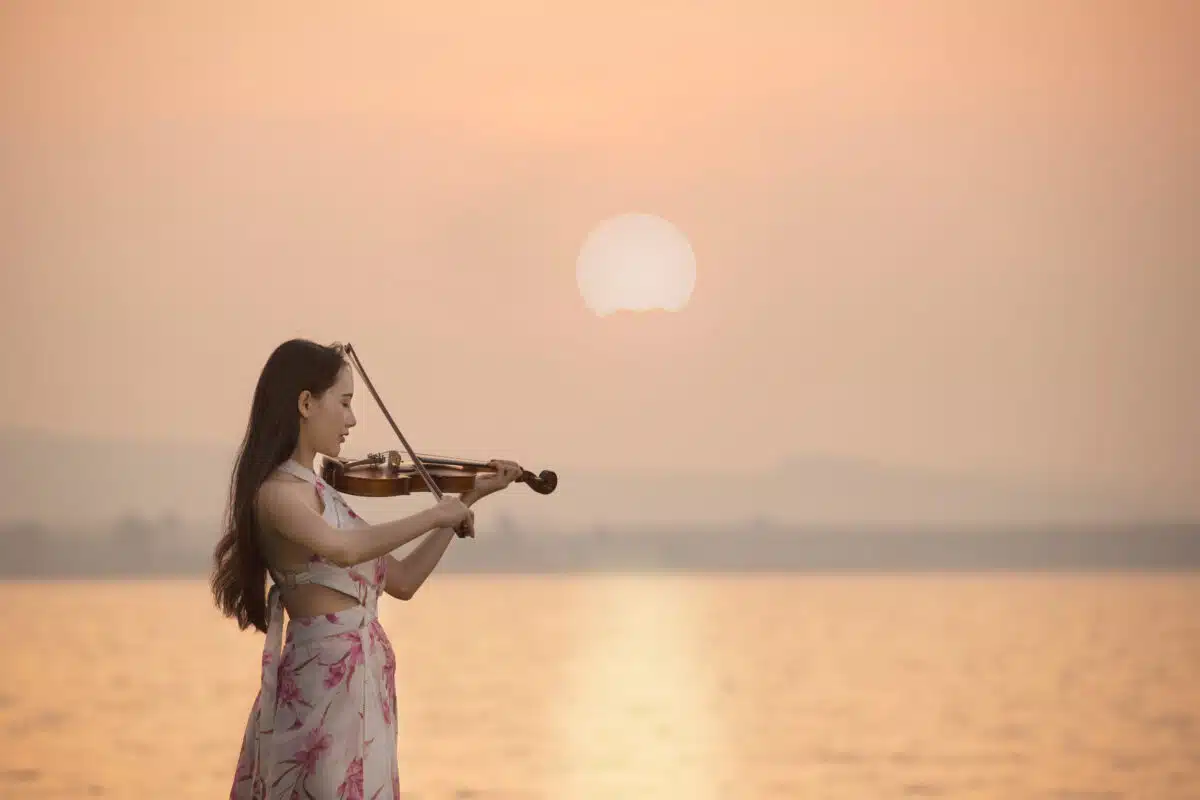
“Song of the Emigrants in Bermuda” by Andrew Marvell
Where the remote Bermudas ride
In the ocean’s bosom unespied,
From a small boat that rowed along
The listening winds received this song:—
“What should we do but sing His praise,
That led us through the watery maze
Where he the huge sea-monsters wracks,
That lift the deep upon their backs,
“Unto an isle so long unknown,
And yet far kinder than our own?
He lands us on a grassy stage,
Safe from the storms, and prelate’s rage:
“He gave us this eternal spring
Which here enamels everything,
And sends the fowls to us in care
On daily visits through the air.
“He hangs in shades the orange bright,
Like golden lamps in the green night,
And does in the pomegranates close
Jewels more rich than Ormus shows:
“He makes the figs our mouths to meet,
And throws the melons at our feet;
But apples, plants of such a price,
No tree could ever bear them twice.
“With cedars chosen by his hand
From Lebanon he stores the land;
And makes the hollow seas that roar
Proclaim the ambergris on shore.
“He cast (of which we rather boast)
The Gospel’s pearl upon our coast;
And in these rocks for us did frame
A temple where to sound his name.
“O, let our voice his praise exalt
Till it arrive at heaven’s vault,
Which then perhaps rebounding may
Echo beyond the Mexique bay.”
Thus sung they in the English boat
A holy and a cheerful note:
And all the way, to guide their chime,
With falling oars they kept the time.
“Song of the Tonga-Islanders” by Anonymous
Come to Licoo! the sun is riding
Down hills of gold to his coral bowers;
Come where the wood-pigeon’s moan is chiding
The song of the wind, while we gather flowers.
Let us plait the garland, and weave the staves,
While the wild waves dance on our iron strand;
To-morrow these waves may wash our graves,
And the moon look down on a ruined land.
Let us light the torches, and dip our hair
In the fragrant oil of the sandal-tree;
Strike the bonjoo, and the oola share,
Ere the death-gods hear our jubilee.
Who are they that in floating towers
Come with their skins of curdled snows?
They shall see our maidens dress our bowers,
While the hooni shines on their sunny brows.
Who shall mourn when, red with slaughter,
Finow sits on the funeral stone?
Who shall weep for his dying daughter?
Who shall answer the red chief’s moan?
He shall cry unheard by the funeral stone,
He shall sink unseen by the split canoe,
Though the plantain-bird be his alone,
And the thundering gods of Fanfonnoo.
Let us not think ’t is but an hour
Ere the wreath shall drop from the warrior’s waist;
Let us not think ’t is but an hour
We have on our perfumed mats to waste.
Shall we not banquet, though Tonga’s king
To-morrow may hurl the battle-spear?
Let us whirl our torches, and tread the ring,—
He only shall find our footprints here.
We will dive,—and the turtle’s track shall guide
Our way to the cave where Hoonga dwells,
Where under the tide he hides his bride,
And lives by the light of its starry shells.
Come to Licoo! in yellow skies
The sun shines bright, and the wild waves play;
To-morrow for us may never rise;—
Come to Licoo to-day, to-day.
“Bermuda” by Edmund Waller
Bermuda, walled with rocks, who does not know?
That happy island where huge lemons grow,
And orange-trees, which golden fruit do bear,
The Hesperian garden boasts of none so fair;
Where shining pearl, coral, and many a pound,
On the rich shore, of ambergris is found.
The lofty cedar, which to heaven aspires,
The prince of trees! is fuel to their fires;
The smoke by which their loaded spits do turn,
For incense might on sacred altars burn;
Their private roofs on odorous timber borne,
Such as might palaces for kings adorn.
The sweet palmettos a new Bacchus yield,
With leaves as ample as the broadest shield,
Under the shadow of whose friendly boughs
They sit, carousing where their liquor grows.
Figs there unplanted through the fields do grow,
Such as fierce Cato did the Romans show,
With the rare fruit inviting them to spoil
Carthage, the mistress of so rich a soil.
The naked rocks are not unfruitful there,
But, at some constant seasons, every year,
Their barren tops with luscious food abound,
And with the eggs of various fowls are crowned.
Tobacco is the worst of things, which they
To English landlords, as their tribute, pay.
Such is the mould, that the blessed tenant feeds
On precious fruits, and pays his rent in weeds.
With candied plantains, and the juicy pine,
On choicest melons, and sweet grapes, they dine,
And with potatoes fat their wanton swine.
Nature these cates, with such a lavish hand,
Pours out among them, that our coarser land
Tastes of that bounty, and does cloth return,
Which not for warmth, but ornament, is worn;
For the kind spring, which but salutes us here,
Inhabits there, and courts them all the year.
Ripe fruits and blossoms on the same trees live;
At once they promise what at once they give.
So sweet the air, so moderate the clime,
None sickly lives, or dies before his time.
Heaven sure has kept this spot of earth uncursed,
To show how all things were created first.
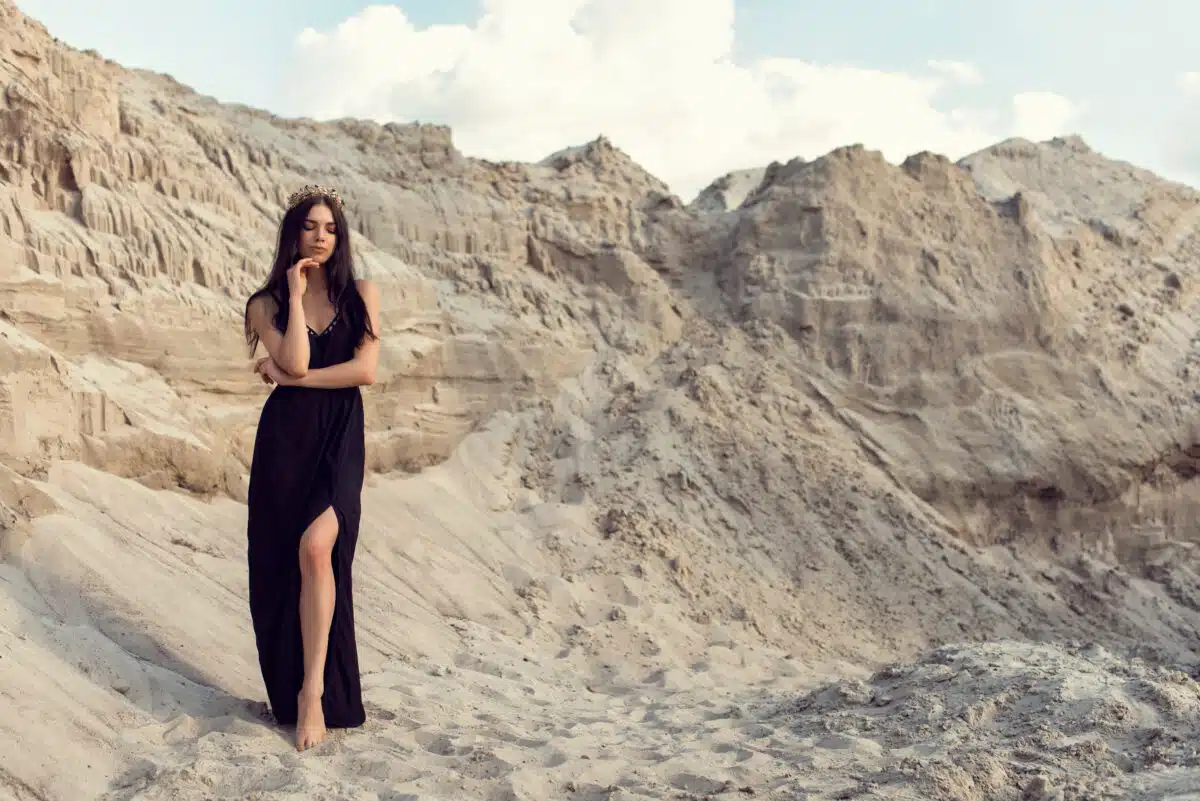
“The Canaries” by Sir Samuel Garth
Dim he discerns majestic Atlas rise,
And bend beneath the burden of the skies,—
His towering brows aloft no tempests know,
Whilst lightning flies and thunder rolls below.
Distant from hence, beyond a waste of plains,
Proud Teneriffe, his giant brother, reigns:
With breathing fire his pitchy nostrils glow,
As from his sides he shakes the fleecy snow.
Around this hoary prince, from watery beds,
His subject islands raise their verdant heads;
The waves so gently wash each rising hill,
The land seems floating,—and the ocean, still.
Eternal spring, with smiling verdure, here
Warms the mild air, and crowns the youthful year;
From crystal rocks transparent riv’lets flow;
The tuberose ever breathes, and violets blow;
The vine, undressed, her swelling clusters bears;
The laboring hind the mellow olive cheers;
Blossoms and fruit, at once, the citron shows,
And, as she pays, discovers still she owes;
The orange to her sun her pride displays,
And gilds her fragrant apples with his rays;
No blasts e’er discompose the peaceful sky,
The springs but murmur, and the winds but sigh:
The tuneful swans on gliding rivers float,
And, warbling dirges, die on every note:
Where Flora treads, her zephyr garlands flings,
And scatters odors from his purple wings,
Whilst birds, from woodbine bowers and jasmine groves,
Chant their glad nuptials and unenvied loves.
Mild seasons, rising hills, and silent dales,
Cool grottos, silver brooks, and flowery vales,
Groves filled with balmy shrubs, in pomp appear,
And scent with gales of sweets the circling year.
“The Bird of the Canaries” by Thomas Kibble Hervey
They say that island-bird, that sings
Within our homes so rich a song,—
The little bird with golden wings,
That poureth, all day long,
A flute-like music, sweet and clear,
As if it were a spirit’s lay,
That brought the tones to mortal car
Of fay-land, far away,—
The small bright bird that cometh west,
From the blue islands of the blest,—
They say that, in its own warm bowers,
Where that fair songster floateth, free
As floats the breeze o’er all the flowers
That scent the tropic sea,
The sun it soars to, fails to fling
This golden gleam upon its wing.
That seemeth as it drew its dyes
From wandering through those burning skies;
The sun it sings to, shines in vain
To wake that wild and witching strain
That gushes forth to meet his smiles,
Like incense, from our colder isles,—
The sweet and swelling music calls
That answer where the daybeam falls,
As if its touch had power to start
Some spring within the minstrel’s heart,
And play those wingéd lyres of gold
As erst it played the Memnon old;
That these its fairy hues belong
To wing restrained and riper age,
And still it pours its sweetest song
Within its northern cage,—
And, in its gifts most precious, comes
To bless us, in our human homes!
O fairy from the far-off main!
Thou little flute with golden wings!
Thy spirit-hue and spirit-strain
Are types of fairer things,
And we have dearer gifts than these
Amid the mists of northern seas!
Bright forms that flutter in the sun,
With voices sweet as silver bells,
Whose tones along the spirit run
Like music’s very spells,—
And open, with their own sweet art,
Those inner chambers of the heart,
Within whose depths was never heard
The singing of the bird.
And if thy wing of gold or green
Be not to our beloved given,
Winged thoughts, within their dark eyes seen,
Take oft the soul to heaven,
But bring it surely back, to rest,
At eve, within an earthly nest.
Our fairies these,—while floating, free
As thou amid thy far-off sea,
And, like thy sisters, singing sooth,
In the bright island of their youth!
But years to our beloved bring
A richer song, with riper age,
When each is bound, with golden ring,
Within a golden cage,—
In whose sweet hush and holy rest
New sounds steal up along the breast,—
The angels playing soft and low,
As erst in Eden, long ago,
Rich harmonies, till then unheard,
Gush from our own bright human bird,
And hues come o’er its heart, whose dyes
Can have no fountain but the skies!
O, beauty haunteth everywhere,
For spirits that can see aright,
And music fills the common air
Of morn and noon and night;
But beauty wears no form on earth
Like that which sitteth by the hearth;
And, mid the music of the throng,
They never know, who always roam,
How sweeter far that sweetest song
That woman sings—at home.
“Teneriffe” by Thomas Warton
Mother of musings, Contemplation sage,
Whose grotto stands upon the topmost rock
Of Teneriffe: mid the tempestuous night,
On which, in calmest meditation held,
Thou hear’st with howling winds the beating rain
And drifting hail descend; or if the skies
Unclouded shine, and through the blue serene
Pale Cynthia rolls her silver-axled car,
Whence gazing steadfast on the spangled vault
Raptured thou sitt’st, while murmurs indistinct
Of distant billows soothe thy pensive ear
With hoarse and hollow sounds; secure, self-blest,
There oft thou listen’st to the wild uproar
Of fleets encountering, that in whispers low
Ascends the rocky summit, where thou dwell’st
Remote from man, conversing with the spheres!

“Teneriffe” by Seymour Green Wheeler Benjamin
There is an isle which I have seen,
Whose slopes and vales are fadeless green,
Whose flowers are evermore in bloom,
And all whose seasons breathe perfume,—
The fairest of the Happy Isles
Whereon eternal summer smiles.
There the dark cypress rears its spire
Against the sunset’s tropic fire;
There the palm lifts its bronze-like shaft
Slow-rocking when the sea-winds waft
The caprioté’s song of love
Where black-eyed Spanish maidens rove
And roses cull for festal days,
And on the passing wanderer gaze
With glances passionate and keen,
Yet full of tenderness, I ween.
The lizard basks upon the walls
Whereon the yellow sunlight falls,
Or darts amid the cactus’ spines,
Or where the purple-loaded vines
Over the trellis weave a bower,
And deck the gray, embattled tower.
Around the isle volcanic capes,
In huge and castellated shapes,
And ruddy rocks grotesque and weird,
Like giants of the deep are reared;
While age to age, forevermore,
The surges roll with sullen roar
Upon the lava-laden shore.
Enthroned on precipices grand,
Serene above that summer land,
Gray Teneriffe in solitude
Commands the ocean’s mighty flood,
And his fire-riven breast enshrouds
With the majestic pomp of clouds,
While from the crater-peak on high,
Outlined stupendous in the sky,
Fair wreaths of mist perpetual rise,
Like daily smoke of sacrifice
Burned to the immortals in the skies.
But when the sun draws near the verge
Of the receding westering surge,
O, then across the eastern sea,—
Like shadow of eternity,—
Impalpable, mysterious, vast,
The shadow of the Peak is cast,
A purple mist against the arch
Through which the constellations march,
Until Night’s curtains are unfurled,
And darkness veils the sleeping world.
The music of the sea-beat shores
Up through the silent twilight soars,
In eerie, plaintive requiem lay
For a lost race long past away,
A pastoral race whose bones were laid
In the dread cavern’s sunless shade;
Thy mystic murmurs soft and low
By the old patriarch gently flow,—
The dragon-tree whose crest upbears
The burden of three thousand years.
By pathways where the ocean laves
Their footsteps with its harmless waves,
The islesmen in procession wend,
Or over craggy mountains tend,
To dance about the virgin’s shrine
While maidens form in merry line
And hail the shimmering evening star
With tinkle of the blithe guitar.
The chime from ancient campaniles
O’er lovely Orotava steals;
From slope to slope the music swells,
Till Realejo’s silvery bells
Respond among the mountain dells,
And all the fragrant evening air
Repeats the melody of prayer.
“Passing St. Helena” by Thomas Bailey Aldrich
And this is St. Helena? This the spot
Haunted forever by an Emperor!
Methinks ’t were meet that such a royal ghost
Should pace these gloomy battlements by night!
—The ship veered off, and we passed out to sea:
And in the first fair moonrise of the month,
I watched the island, till it seemed a speck
No bigger than Astarte. Year by year,
The picture came and went upon my brain,
Like frost-work on the windows: in my dreams
I saw those jagged turrets of dull rock
Uplifted in the moonlight; saw the gulls
Darting in sudden circles; heard the low
And everlasting anthem of the sea!
And from the nether world a voice would come,
Here did they bring the Corsican, and here
Died the chained eagle by these dismal cliffs!
“Kilauea” by W. C. Jones
Deep Hades of the seven Phlegethons!
From thy basaltic pillared walls I gaze,
Through sulphurous clouds that ceaselessly ascend
From fiery maelstroms in red, rushing whirl,
Into thy vast abyss with silent awe.
Eve’s curtains gather round thee like a shroud,
And drape in shadow Mauna Loa’s dome;
The trade-wind o’er the bending forest sweeps,
Cold and mist-laden from the eastern wave;
And as it parts the fire-born clouds below,
The smouldering ruins of a city vast—
A giant Moscow in a sea of flame—
Appear with blackened walls, and dome and spire
Of church and grand cathedral crashing fall;
Turret and tower and monument go down,
As round them lap and whirl the eddying flames,
Like those lost cities which Jehovah’s wrath
O’erwhelmed in sulphury hail and fiery rain,
Till from the ruined plain the smoke went up,
Seething and dense as from a furnace blast.
Thou fiery wonder of the untaught mind!
The simple natives of the isles had made
A home in thee for Pele,—fiery power,
Goddess of the volcano’s hot domain;
How like the ancient Greeks, who wove their dreams
Of the ideal in poetic forms,
And robed Cocytus’ son with Pele’s power
Over their burning, weird, infernal river.
No Stygian waves surround thy Hades deep,
No Iris bright descends with golden vase,
To bring the dreaded draught to perjured gods;
Yet thy wild, fiery glare hath lighted up
A scene more brilliant than Greek poet’s dream,
Sublime in moral courage and the faith
That rent asunder superstition’s chains,
And by her incandescent throne of power,
Defied the Goddess Pele in thy depths.
Kapiolani—noblest of her race,—
Kapiolani—type of womankind,—
In high moral heroism born of love,
In past or present and in every clime,
Immortal as the faith which fired her heart,
Her deed sheds lustre on these ocean isles!
O’er fire-browned clinkers and through tangled woods,
Up mountain steeps a hundred miles she walked,
Trampling the creeds of ages ’neath her feet,
Braving the wrath of all the mythic gods,
That, like dark incubi on heart and brain,
Had checked the progress of Hawaii’s race,
She sought thy depths to tempt and to defy
The rage, the power of their multiple gods;
While awe-struck thousands on thy lofty rim
Gazed tremblingly beneath in firm belief
That Pele in her wrath would hurl her fires
On one who dared her in her sulphury home.
Her brow all radiantly illumed by hope,
She stood beside thy rushing, liquid tide
Of red-hot lava in its maddest flow,
And as the sulphury vapors, wreathing, rolled
In eddying fire-lit waves round her tall form,
She seemed divine as thus she calmly spoke:
“In His great name who died for men I come,
To prove to my lost race the living God!
And here, O Pele! superstition’s myth!
I do defy thee on thy throne of power!
If thou existest, whelm me ’neath thy waves,
Pour on me all thy scorching lava flood,
Or suffocate me with thy sulphury breath,
Or close around me all thy lakes of fire!
But no,—the fresh breeze lifts the sulphury clouds,
The waves subside, the fiery jets decrease;
God calms thy vortex as the restless sea;
I trample here on thy pretended power,
And cry, Io Jehova! in thy depths;
Io Jehova! let the triumph ring,
Till all the isles shall know the living God!”
She passed majestic o’er the lava vale,
As a triumphant smile illumed her face,
God-like and noble, born of faith and hope.
Now sable night hangs o’er thee, Kilauea,
But night illumined by thy sulphury glare;
Thy seven seething lakes light up the clouds
With an unearthly and demoniac glow,
The fever flush from thy hot heart of flame,
The hectic glow of an expiring world.
Now the waves flash, and, eddying, whirl and leap
’Gainst crumbling shores of glass-like lava cliffs,
Where Pele’s fair hair waves in sulphury steam;
The fiery jets, fierce bubbling, chase each other,
Like flame-maned coursers on their burning track,
Then disappear, lost in the raging gulf;
Ever with northward flow the current sweeps,
Crackling and sparkling in red fissures deep,
As the cooled surface breaks, like fields of ice,
And dark-red lava heaps in fiery drift.
Thou seemest not of earth; thy red waves come,
Up,—rushing from that central, fiery sea,
Beneath earth’s ocean that resistless wars
With all that forms this planet’s fragile crust.
And as I gaze upon thy deep abyss,
Thoughts of the grandeur of Eternal Power
Sweep o’er the mind in wild magnificence,
To far past ages, when Creative Will
Flashed through this planet’s incandescent mass
Ere the earth’s crust was cooled, or the vast sea,
Condensing, fell from seething atmosphere,
On lava beds just cooling round the poles.
Around me are God’s forges, in the domes
Of mountains vast that pierce the blue of heaven,
And from their snowy diadems look down
On plains of lava blackening to the sea,
And in the line of lessening cones that sweep
From thy weird chasm by pit-craters deep;
Here in Time’s morn, red columns flamed from ocean,
Hurled boiling back the hot and vapory waves,
With blazing cataracts of liquid fire,
Till this great isle arose, a smoking mass
Of fire-scorched cinders, as the giant tread
Of the mad earthquake stamped it into form!

“The Lake Isle of Innisfree” by W. B. Yeats
I will arise and go now, and go to Innisfree,
And a small cabin build there, of clay and wattles made:
Nine bean-rows will I have there, a hive for the honey-bee;
And live alone in the bee-loud glade.
And I shall have some peace there, for peace comes dropping slow,
Dropping from the veils of the morning to where the cricket sings;
There midnight’s all a glimmer, and noon a purple glow,
And evening full of the linnet’s wings.
I will arise and go now, for always night and day
I hear lake water lapping with low sounds by the shore;
While I stand on the roadway, or on the pavements grey,
I hear it in the deep heart’s core.
“Lahaina” by Charles Warren Stoddard
Where the wave tumbles;
Where the reef rumbles;
Where the sea sweeps
Under bending palm-branches,
Sliding its snow-white
And swift avalanches;
Where the sails pass
O’er an ocean of glass,
Or trail their dull anchors
Down in the sea-grass.
Where the hills smoulder;
Where the plains smoke;
Where the peaks shoulder
The clouds like a yoke;
Where the dear isle
Has a charm to beguile
As she rests in the lap
Of the seas that enfold her.
Where shadows falter;
Where the mist hovers
Like steam that covers
Some ancient altar.
Where the sky rests
On deep wooded crests;
Where the clouds lag,—
Where the sun floats
His glittering moats,
Swimming the rainbows
That girdle the crag.
Where the new-comer
In deathless summer
Dreams away troubles;
Where the grape blossoms
And blows its sweet bubbles.
Where the goats cry
From the hillside corral;
Where the fish leap
In the weedy canal,—
In the shallow lagoon
With its waters forsaken,—
Where the dawn struggles
With night for an hour,
Then breaks like a tropical
Bird from its bower.
Where from the long leaves
The fresh dew is shaken;
Where the wind sleeps
And where the birds waken!
“Kamehameha Hymn” by King Kalakaua (H. L. Sheldon, Translator)
Hawaii! sea-girt land!
Strong for thy monarch stand;
Sons of the ancient band,
Stand for your King!
Hawaii’s true-born sons,
Cherish the high-born ones,—
From old their lineage runs,—
Guard the young chiefs!
Hawaii! young and brave,
Thine ’t is thyself to save!
Hopeful thy banner wave—
Upward, and on!
O Thou who reign’st above,
Father of might and love!
Grant that thy peaceful dove
Brood o’er our land.
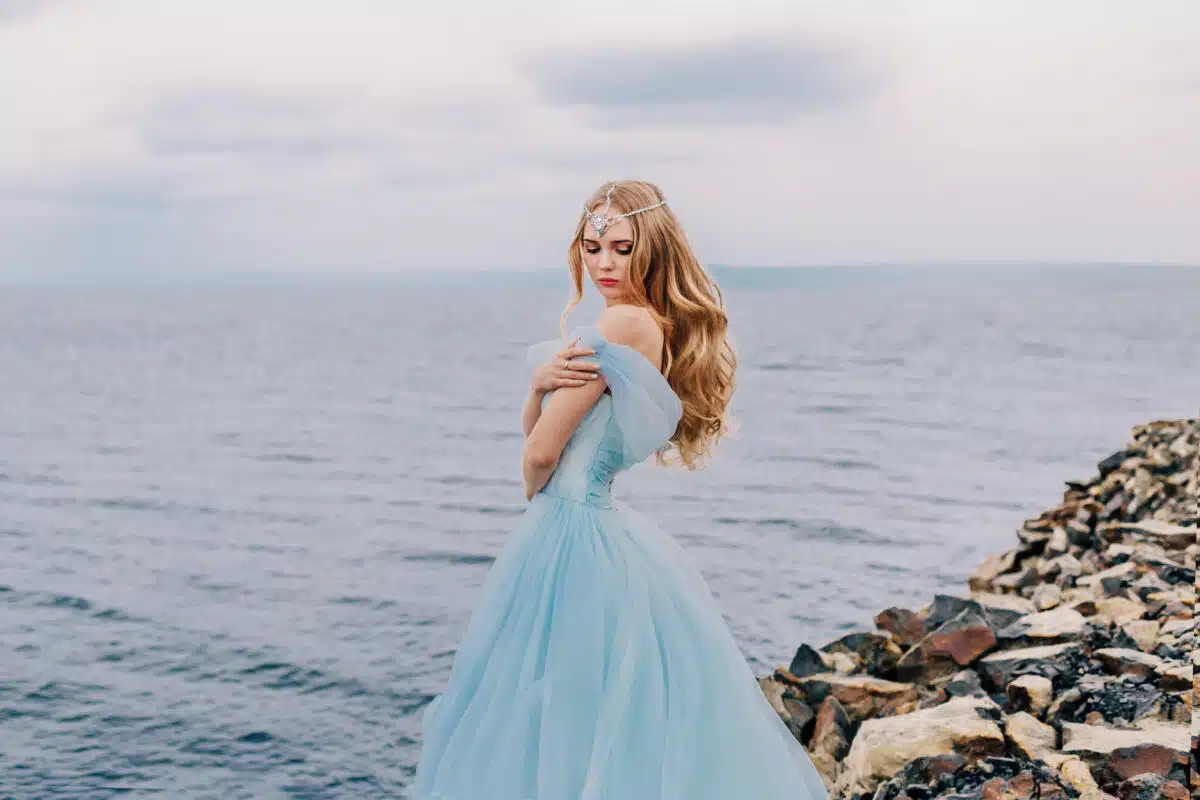
“Coney Island” by Sara Teasdale
Why did you bring me here?
The sand is white with snow,
Over the wooden domes
The winter sea-winds blow
There is no shelter near,
Come, let us go.
With foam of icy lace
The sea creeps up the sand,
The wind is like a hand
That strikes us in the face.
Doors that June set a-swing
Are bolted long ago;
We try them uselessly
Alas there cannot be
For us a second spring;
Come, let us go.
“Hawaiian National Anthem” by Lilia K. Dominis (H. L. Sheldon, Translator)
Eternal Father, mighty God!
Behold us, from thy blest abode;
To thee we turn, for thou wilt care
To listen to our humble prayer.
May gentle peace forever reign
O’er these fair islands of the main,
Hawaii’s peaks to Niihau’s strand,
The peace of God o’er all the land!
Forever be our country free,
Our laws and Heaven’s in harmony.
All hearts respond, all voices sing,
God save, God save our gracious King!
And may our Chieftains ever be,
Guided, O Lord, by love to Thee,
And all the people join to raise
One universal song of praise.
God save the people of our land,
Uphold by thine Almighty hand;
Thy watchful care defends from harm,
Faithful and sure thy sovereign arm.
Forever be our country free,
Our laws and Heaven’s in harmony,
All hearts respond, all voices sing,
God save, God save our gracious King.
‘The Beach at Hilo Bay” by F. Coan
What has this grand, curved beach to show?
Slimy wharves, in the sun aglow?
Warehouses grim, in a dismal row,
Stretching for weary miles? No, no!
Gracefully fringed it is, with trees
Nodding obeisance to every breeze
Born on the mountain or on the high seas.
Under the trees the lagoons are asleep,
Children dumb of the roaring deep,
Into their cradle the wild waves peep.
Darling gem is each bright lagoon,
Molten silver at fervid noon,
Burnished mirror for evening’s moon.
Birds on the smooth, packed sand are parading,
Legs stripped bare, all ready for wading,
Or daintily poised, the foam-crest evading.
Here is the tablet the waves prepare
For ragged school artists, so burnt and bare,
With faces begrimmed, and tangled hair.
And on this easel so smoothly sanded
Fleets are sketched by the deftly handed,—
You would think the Royal Navy was stranded.
Queer little crabs are making their tracks,
With dinners robbed from their neighbors’ sacks,
And stolen houses upon their backs.
Here are mosses in rarest green
And royal purple, fit for a queen,
Which painters may envy in vain, I ween.
And blue-eyed flowers, with faces bland,
All untended by human hand,
Asking nothing but sunshine and sand.
Yonder are snow-tipped mountains bold,
Always new, though a cycle old,
Full of fire as their sides can hold.
Nearer at hand,—no tongue can tell,
The mighty magic of beauty’s spell,
That wakes our smiles, and tears as well.
Rarest beauties our beach can show,
As bounding along its crescent we go,
Or lost in thought we saunter slow,—
And the half has not yet been told,—no, no!
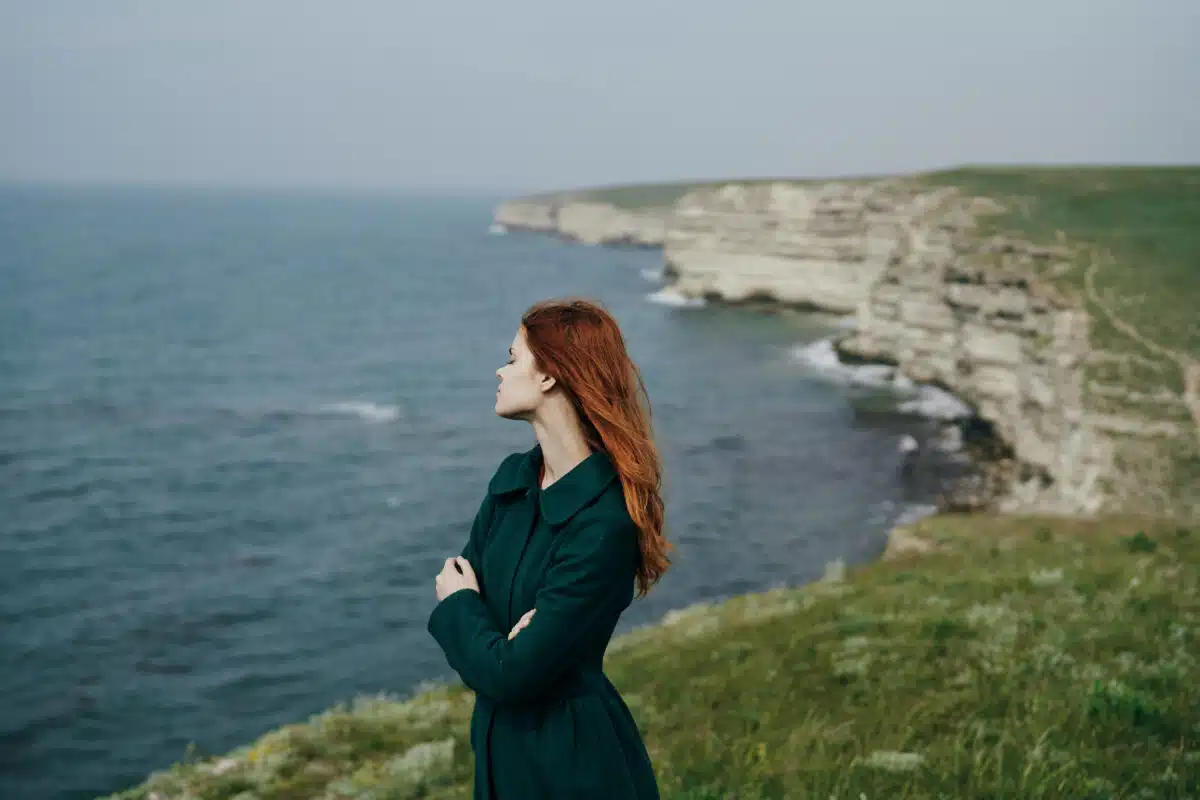
“Channel Islands” by Michael Drayton
Thus scarcely said the Muse, but hovering while she hung
Upon the Celtic wastes, the sea-nymphs loudly sung:
O ever-happy Isles, your heads so high that bear,
By nature strongly fenced, which never need to fear
On Neptune’s watery realms when Eolus raiseth wars.
And every billow bounds as though to quench the stars:
Fair Jersey first of these here scattered in the deep,
Peculiarly that boast’st thy double-horned sheep:
Inferior nor to thee, thou Jernsey, bravely crowned
With rough-imbattled rocks, whose venom-hating ground
The hardened emeril hath, which thou abroad dost send
Thou Ligon, her beloved, and Serk, that dost attend
Her pleasure every hour; as Jethow, them at need.
With pheasants, fallow deer, and conies, that dost feed:
Ye seven small sister Isles, and Sorlings, which to see
The half-sunk seaman joys, or whatsoe’er you be,
From fruitful Aumey, near the ancient Celtic shore,
To Ushant and the Seams, whereas those nuns of yore
Gave answers from their caves, and took what shapes they please:
Ye happy Islands set within the British seas,
With shrill and jocund shouts the unmeasured deeps awake.
And let the Gods of sea their secret bowers forsake,
Whilst our industrious Muse Great Britain forth shall bring.
Crowned with those glorious wreaths that beautify the spring;
And whilst green Thetis’ nymphs, with many an amorous lay
Sing our invention safe unto her long-wished bay.
Upon the utmost end of Cornwall’s furrowing beak.
Where Bresan from the land the tilting waves doth break;
The shore let her transcend, the promont to descry,
And view about the Point the unnumbered fowl that fly.
Some, rising like a storm from off the troubled sand,
Seem in their hovering flight to shadow all the land;
Some, sitting on the beach to prune their painted breasts,
As if both earth and air they only did possess.
“Hy-Brasail, the Isle of the Blest” by Gerald Griffin
On the ocean that hollows the rocks where ye dwell
A shadowy land has appeared, as they tell;
Men thought it a region of sunshine and rest,
And they called it Hy-Brasail, the isle of the blest;
From year unto year, on the ocean’s blue rim,
The beautiful spectre showed lovely and dim;
The golden clouds curtained the deep where it lay,
And it looked like an Eden, away, far away!
A peasant who heard of the wonderful tale
In the breeze of the Orient loosened his sail;
From Ara, the holy, he turned to the west,
For though Ara was holy, Hy-Brasail was blest.
He heard not the voices that called from the shore,
He heard not the rising wind’s menacing roar;
Home, kindred, and safety he left on that day,
And he sped to Hy-Brasail, away, far away!
Morn rose on the deep, and that shadowy isle
O’er the faint rim of distance reflected its smile;
Noon burned on the wave, and that shadowy shore
Seemed lovelily distant, and faint as before;
Lone evening came down on the wanderer’s track,
And to Ara again he looked timidly back;
O, far on the verge of the ocean it lay,
Yet the isle of the blest was away, far away!
Rash dreamer, return! O ye winds of the main,
Bear him back to his own peaceful Ara again.
Rash fool! for a vision of fanciful bliss,
To barter thy calm life of labor and peace.
The warning of reason was spoken in vain;
He never revisited Ara again!
Night fell on the deep, amidst tempest and spray,
And he died on the waters, away, far away!
“Ode on Revisiting Cuba” by Maria Brooks
Isle of eternal spring, thou ’rt desolate
To me; thy limpid seas, thy fragrant shores,
Whither I ’ve sighed to come
And make a tranquil home,
Have lost to me their charm; my heart deplores,
Vainly, of two it loved, the melancholy doom.
Well may I weep you, gentle souls, that while
On earth responded to the love of mine,
Through eyes of heavenly blue,
More deeply, fondly true,
Haply, than He, who lent his breath divine,
May give again on earth to cheer me with their smile.
My George, if thou hadst faults, they only were
That thou wert gifted ill for this poor sphere
Where first he faints who spares
Earth’s selfish, sordid cares;
And what might faults to baser eyes appear,
When ta’en where angels dwell, must be bright virtues there.
Men toil, betray, nay, even kill, for gold;
But had some wretch pressed by misfortune sore
Asked thy last piece of thee
To ease his misery,
When thou couldst only look to Heaven for more,
That last piece had been given, and thine own safety sold.
Oft when the noisome streams of pestilence
Poisoned the air around thee, hast thou stayed
By friends, while thirsty Death
Lurked near, to quaff their breath;
And soothed and saved while others were afraid,
And hardier hearts and hands than thine rushed wildly thence.
Oh, could I find thee in some palm-leaf cot,
Still for this earth, with thy sweet brothers too,
Though scarce our worldly hoard
Sufficed a frugal board,
Hope should beguile no more: I ’d live for you,
Disclaim all other love—and sing, and bless my lot.
How could I kneel and kiss the hand of Fate,
Were it but mine to decorate some hall—
Here, where the soil I tread
Colors my feet with red—
Far down these isles, to hear your voices call,
Then haste to hear and tell what happed while separate!
Beautiful isles! beneath the sunset skies
Tall silver shafted palm-trees rise between
Full orange-trees that shade
The living colonnade;
Alas! how sad, how sickening, is the scene
That were ye at my side would be a paradise!
E’en one of those cool caves which, light and dry,
In many a leafy hillside, near this spot,
Seem as by Nature made
For shelter and for shade
To such as bear a homeless wanderer’s lot,
Were home enough for me, could those I mourn be nigh.
Palace or cave (where ’neath the blossom and lime
Winter lies hid with wreaths) alike may be,
If love and taste unite,
A dwelling for delight,
And kings might leave their silken courts to see
O’er such wild, garnished grot the grandiflora climb.
Thus, thus, doth quick-eyed Fancy fondly wait
The pauses of my deep remorse between;
Before my anxious eyes
’T is thus her pictures rise;
They show what is not, yet what might have been;
Angels, why came I not?—why have I come too late?
The cooling beverage—strengthening draught—as craved
The needs of both, could but these hands have given;
Could I have watched the glow—
The pulse, too quick, or slow—
My earnest, fond, reiterate prayers to Heaven,
Some angel might have come, besought, returned, and saved.
To stay was imbecility—nay, more—
’T was crime—how yearned my panting heart to see,
When, by mere words delayed,
’Gainst the strong wish, I stayed
(Trifling with that which inly spoke to me),
And longed, and hoped, and feared, till all I feared was o’er!
Mild, pitying George, when maple leaves were red
O’er Ladaüanna, in his much-loved north,
Breathed here his last farewell—
And when the tears that fell
From April, called Mohecan’s violets forth,
Edgar, as following his, thy friendly spirit fled.
Now, side by side, ’neath cross and tablet white
Is laid, sweet brothers, all of you that ’s left;
Yet, all the tropic dew
Can damp would seem not you:
Your finer particles from earth are reft,
Haply (and so I ’ll hope) for lovelier forms of light.
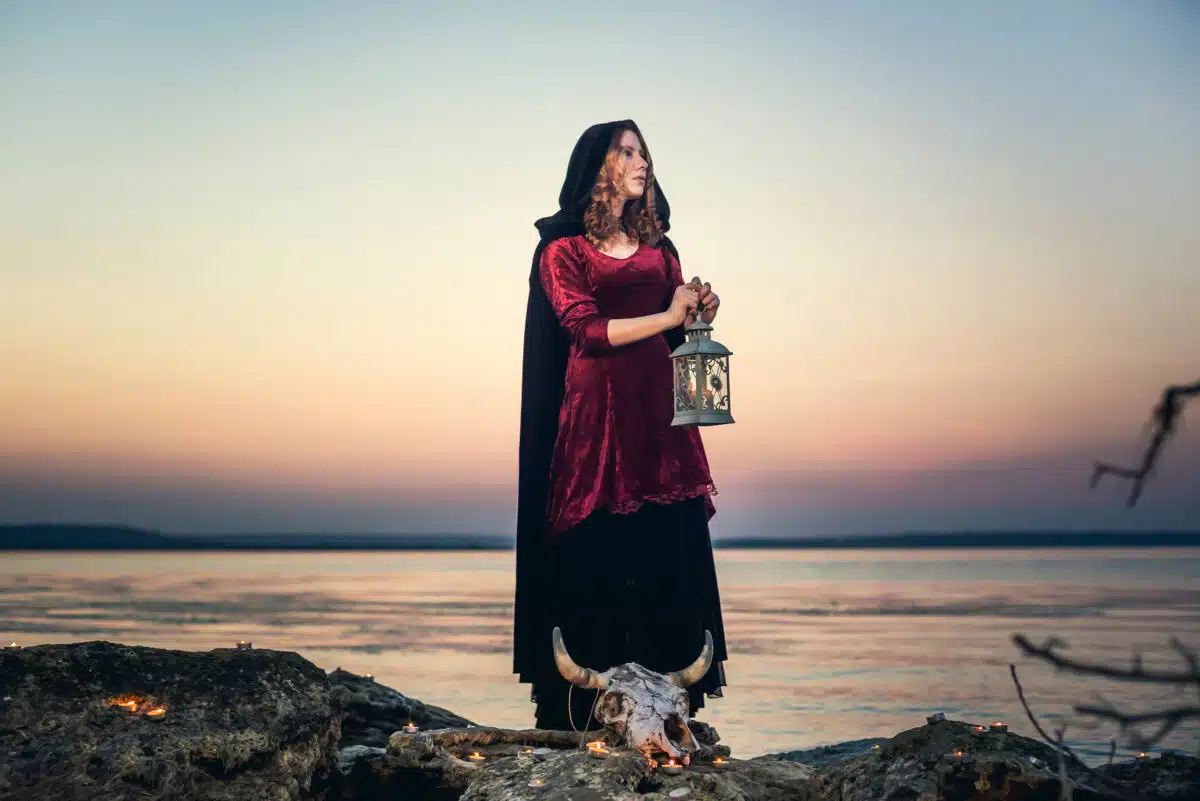
“The Outlook from Santa Cruz” by Sarah Bridges Stebbins
The ships are anchored in the bay,
The weary ships with haven won;
Encompassed by the purple waves
Beneath the brilliant tropic sun!
At last upon the summer sea,
Untossed, at rest, they quiet lie;
In idle case, scarce darkened o’er
By fleecy clouds in azure sky!
Far off upon the horizon’s verge
A white-sailed sloop speeds far from sight,
Like some glad bird whose outspread wings
Cleave straight into the realms of light!
It leaves behind the fair, green isle,
The waters rosy on the reef,
To seek a shore, o’er ocean gray,
Where Winter withers bud and leaf!
Like those moored vessels, worn with storms,
Now sheltered safe in harbor calm,
We too repose through glowing days
Beneath the shadow of the palm!
But ah! our thoughts are like the bark
That sweeps across the sounding main!
Love wafted from bright, softer clime
To our own land of cold and rain!
“Cuba” by Epes Sargent
What sounds arouse me from my slumbers light?
“Land ho! all hands, ahoy!”—I ’m on the deck:
’T is early dawn: the day-star yet is bright;
A few white vapory bars the zenith fleck;
And lo! along the horizon, bold and high,
The purple hills of Cuba! Hail, all hail!
Isle of undying verdure, with thy sky
Of purest azure! Welcome, odorous gale!
O scene of life and joy! thou art arrayed
In hues of unimagined loveliness.
Sing louder, brave old mariner! and aid
My swelling heart its rapture to express;
For, from enchanted memory, nevermore
Shall fade this dawn sublime, this fair, resplendent shore.
“Cuba” by John Townsend Trowbridge
Cuba seems
The later western Eden of our planet.
What wafted incense from the gate of dreams,
What heavenly zephyrs hover o’er and fan it!
With groves of orange, mango, and pomegranate,
And flowering forests through whose wealth of blooms,
Like living fires, dart birds of gorgeous plumes.
There by still bays the tall flamingo stands;
The sunrise flame of whose reflected form
Crimsons the glassy wave and glistening sands.
There, large and luminous, throughout the warm,
Soft summer eves myriads of fireflies swarm;
Like the bright spirits of departed flowers
Nightly revisiting their native bowers.
Its own rich, varying world the isle enfolds;
Where glowing Nature seems most prodigal
Of life and beauty; where the eye beholds
Orchards that blossom while their ripe fruits fall;
Mountains, refulgent vales; and, curved round all,
From some palm-crested summit seen afar,
The gleaming ocean’s steel-bright scimitar.
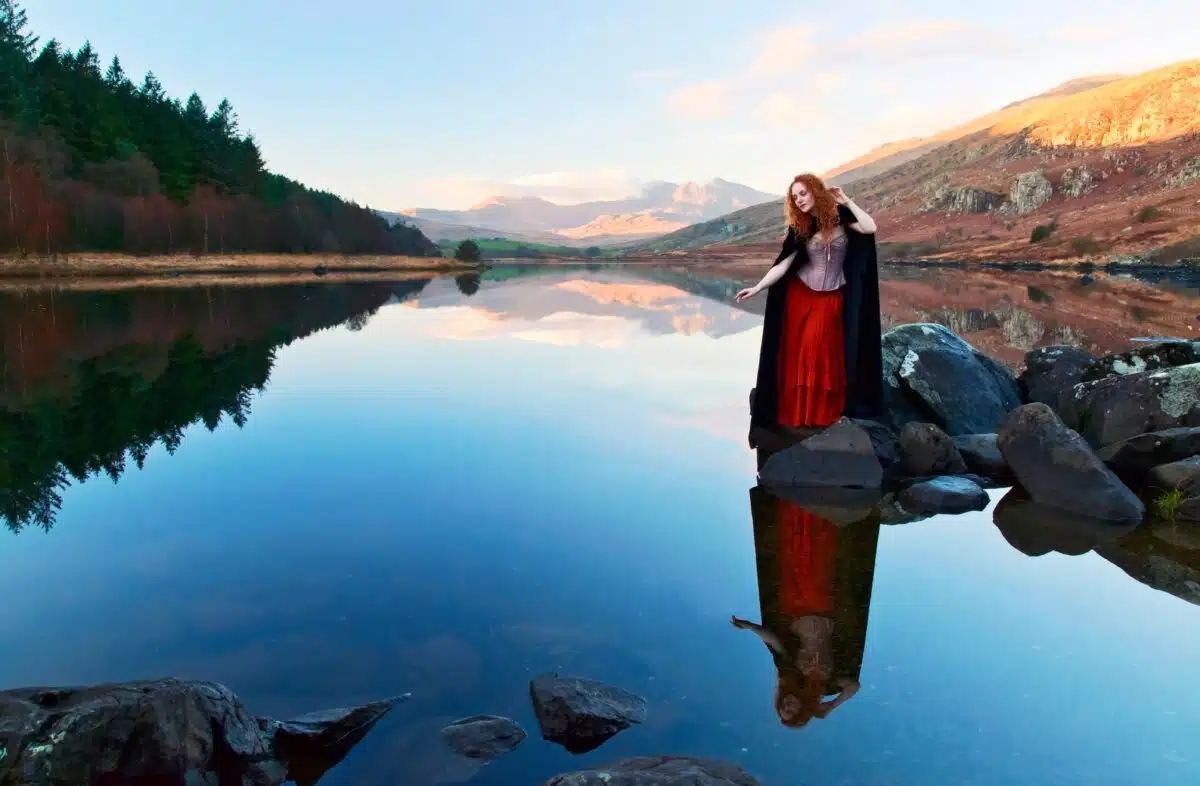
“Season of the Northers” by José María Heredia (W. H. Hurlbut, Translator)
The weary summer’s all-consuming heat
Is tempered now; for from the frozen pole
The freed north-winds come fiercely rushing forth,
Wrapt in their mantles, misty, dim, and frore,
While the foul fever flies from Cuba’s shore.
Deep roars the ocean, heaving high his breast,
And smites the beach with long resounding blows;
Zephyr his wings in dewy freshness bathes,
And floating vapors veil transparently
The glowing sun and the resplendent sky.
Hail, happy days! whose healing might o’erthrows
The bloody shrine which May, amid her flowers,
Built up to Death, while close beside her stood
Attendant Fever, ghastly pale and fierce,
A gleaming form, clothed on with Nature’s curse.
With threatening eyes the kindred spirits saw
The white-browed sons of milder regions move
Beneath the terrors of this tropic sky;
They saw, they touched them with the fatal rod,—
Their frames are dust, their souls are with their God.
But their fell reign is o’er; the northern wind,
Driving the noxious poisons from the air,
Spreads its broad wings above us, moist and cool,
And echoing, sweeps upon its blessed way,
Bringing us rest from August’s sultry day.
O’er the far fields of Europe’s gloomy land
Rushes in wrath untamed the selfsame blast,
Spoiling the earth of verdure and of life,
Whelming the wreck beneath a snowy tomb,
While man lies shivering in his frozen home.
There all is death and grief; but Cuba now
Smiles with new life and joy: the beaming sun,
His glories softened by translucent clouds,
Lends a new lustre to the grove and plain,
And wakes them all to joyous spring again.
My happy land! thou favored land of God,
Where rest his mildest looks, his kindliest smiles,
Oh, nevermore from thy beloved soil
May cruel fortune tear me; but be thine
The latest light that on these eyes shall shine!
How sweet, dear love, to listen to the rain
That patters softly on our humble home;
To hear the wild winds whistling o’er the plain,
And the deep booming of the ocean’s roar,
Where shattering surges lash the distant shore!
Here, by thy side, on softest couch reclined,
My throbbing lyre shall rest upon thy knees,
And my glad heart shall sing the boundless peace
Of thy fair soul, the light of thy dear face,
My happy lot, and God’s surpassing grace.
“Cuba” by José María Heredia (W. H. Hurlbut, Translator)
Fair land of Cuba! on thy shores are seen
Life’s far extremes of noble and of mean,
The world of sense in matchless beauty dressed,
And nameless horrors hid within thy breast.
Ordained of Heaven the fairest flower of earth,
False to thy gifts, and reckless of thy birth!
The tyrant’s clamor, and the slave’s sad cry,
With the sharp lash in insolent reply,—
Such are the sounds that echo on thy plains,
While virtue faints, and vice unblushing reigns.
Rise, and to power a daring heart oppose!
Confront with death these worse than deathlike woes.
Unfailing valor chains the flying fate;
Who dares to die shall win the conqueror’s state.
We, too, can leave a glory and a name
Our children’s children shall not blush to claim;
To the far future let us turn our eyes,
And up to God’s still unpolluted skies.
Better to bare the breast, and, undismayed,
Meet the sharp vengeance of the hostile blade,
Than on the couch of helpless grief to lie,
And in one death a thousand deaths to die.
Fearest thou blood? Oh, better, in the strife,
From patriot wounds to pour the gushing life,
Than let it creep inglorious through the veins
Benumbed by sin and agony and chains!
What hast thou, Cuban? Life itself resign,—
Thy very grave is insecurely thine!
Thy blood, thy treasure, poured like tropic rain
From tyrant hands to feed the soil of Spain.
If it be truth, that nations still must bear
The crushing yoke, the wasting fetters wear,—
If to the people this be Heaven’s decree,
To clasp their shame, nor struggle to be free,
From truth so base my heart indignant turns,
With freedom’s frenzy all my spirit burns,—
That rage which ruled the Roman’s soul of fire,
And filled thy heart, Columbia’s patriot sire!
Cuba! thou still shalt rise, as pure, as bright,
As thy free air,—as full of living light;
Free as the waves that foam around thy strands,
Kissing thy shores, and curling o’er thy sands!
Poems About Greek Islands
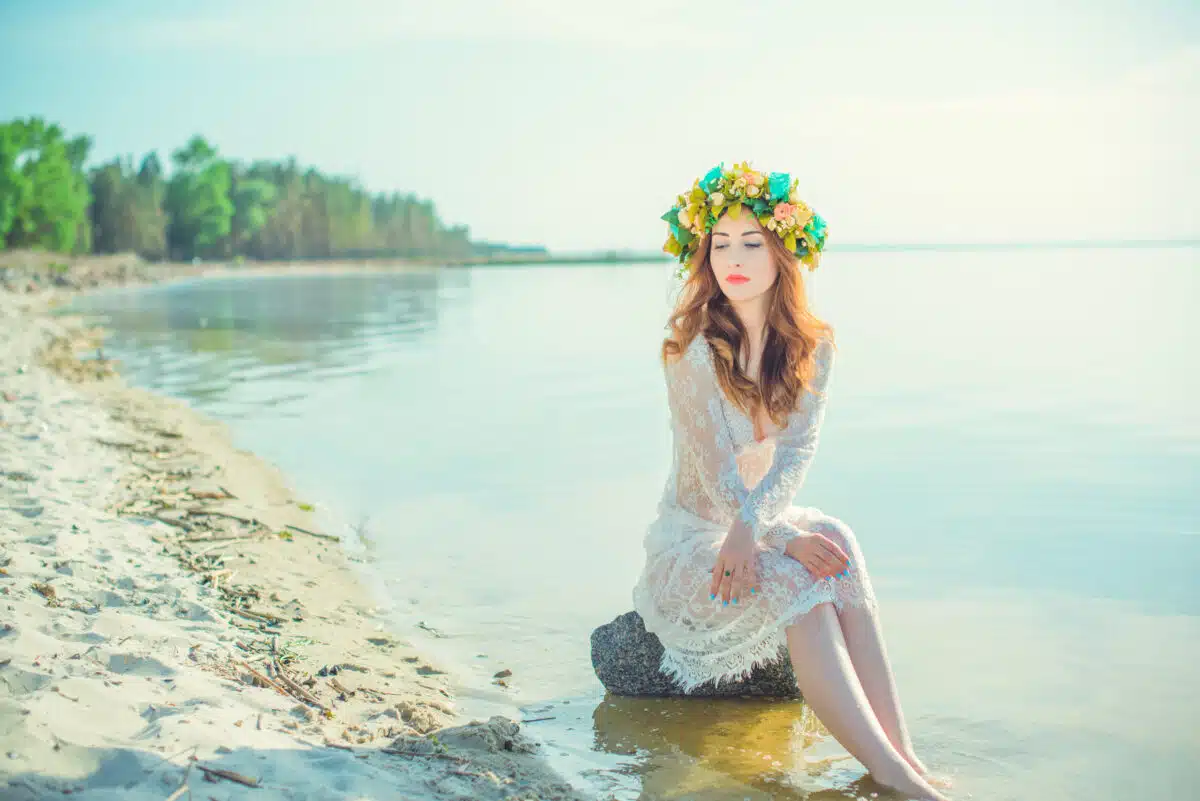
“The Islands” by H. D.
I
What are the Islands to me,
what is Greece,
what is Rhodes, Samos, Chios,
what is Paros facing west,
what is Crete?
What is Samothrace,
rising like a ship,
what is Imbros redning the storm-waves
with its breast?
What is Naxos, Paros, Milos,
what the circle about Lycia,
what, the Cyclades’
white necklace?
What is Greece—
Sparta, rising like a rock,
Thebes, Athens,
what is Corinth?
What is Euboia
with its island violets,
what is Euboia, spread with grass,
set with swift shoals,
what is Crete?
What are the islands to me,
what is Greece?
II
What can love of land give to me
that you have not—
what do the tall Spartans know,
and gentler Attic folk?
What has Sparta and her women
more than this?
What are the islands to me
if you are lost—
What is Naxos, Tinos, Andros,
and Delos, the clasp
of the white necklace?
III
What can love of land give to me
that you have not,
what can love of strife break in me
that you have not?
Though Sparta enter Athens,
salt, rising to wreak terror
Thebes wrack Sparta,
each changes as water,
and fall back.
IV
“What has love of land given to you
that I have not?”
I have questioned Tyrians
where they sat
on the black ships,
weighted with rich stuffs,
I have asked the Greeks
from the white ships,
and Greeks from ships whose hulks
lay on the wet sand, scarlet
with great beaks.
I have asked bright Tyrians
and tall Greeks—
“what has love of land given you?”
And they answered—“peace.”
V
But beauty is set apart,
beauty is cast by the sea,
a barren rock,
beauty is set about
with wrecks of ships,
upon our coasts, death keeps
the shallows—death waits
clutching toward us
from the deeps.
Beauty is set apart;
the winds that slash its beach,
swirl the coarse sand
upward toward the rocks.
Beauty is set apart
from the islands
and from Greece.
VI
In my garden,
the winds have beaten
the ripe lilies;
in my garden, the salt
has wilted the first flakes
of young narcissus,
and the lesser hyacinth
and the salt has crept
under the leaves of the white hyacinth.
In my garden
even the wind-flowers lie fiat,
broken by the wind at last.
VII
What are the islands to me
if you are lost,
what is Paros to me
if your eyes draw back,
what is Milos
if you take fright of beauty,
terrible, torturous, isolated,
a barren rack?
What is Rhodes, Crete,
what is Paros facing west,
what, white Imbros?
What are the islands to me
if you hesitate,
what is Greece if you draw back
from the terror
and cold splendor of song
and its bleak sacrifice?
“Ionian Islands” by Richard Monckton Milnes
Thou pleasant island, whose rich garden-shores
Have had a long-lived fame of loveliness,
Recorded in the historic song, that framed
The unknown poet of an unknown time,
Illustrating his native Ithaca,
And all her bright society of isles,—
Most pleasant land! To us, who journeying come
From the far west, and fall upon thy charms,
Our earliest welcome to Ionian seas,
Thou art a wonder and a deep delight,
Thy usual habitants can never know.
Thou art a portal, whence the Orient,
The long-desired, long-dreamt-of Orient,
Opens upon us, with its stranger forms,
Outlines immense and gleaming distances,
And all the circumstance of fairyland.
Not only with a present happiness,
But taking from anticipated joys
An added sense of actual bliss, we stand
Upon thy cliffs, or tread the slopes that leave
No interval of shingle, rock, or sand,
Between their verdure and the ocean’s brow,—
Whose olive-groves (unlike the darkling growth,
That earns on western shores the traveller’s scorn)
Can wear the gray that on their foliage lies,
As but the natural hoar of lengthened days,—
Making, with their thick-bossed and fissured trunks,
Bases far-spread and branches serpentine,
Sylvan cathedrals, such as in old times
Gave the first life to Gothic art, and led
Imagination so sublime a way.
Then forth advancing, to our novice eyes
How beautiful appears the concourse clad
In that which, of all garbs, may best befit
The grace and dignity of manly form:
The bright red open vest, falling upon
The white thick-folded kirtle, and low cap
Above the high-shorn brow.
Nor less than these,
With earnest joy, and not injurious pride,
We recognize of Britain and her force
The wonted ensigns and far-known array;
And feel how now the everlasting sea,
Leaving his old and once imperious spouse,
To faint, in all the beauty of her tears,
On the dank footsteps of a mouldering throne,
Has taken to himself another mate,
Whom his uxorious passion has endowed,
Not only with her ancient properties,
But with all other gifts and privilege,
Within the circle of his regal hand.
Now forward,—forward on a beaming path,
But be each step as fair as hope has feigned it,
For me, the memory of the little while,
That here I rested happily, within
The close-drawn pale of English sympathies,
Will bear the fruit of many an afterthought,
Bright in the dubious track of after years.
“Hermes in Calypso’s Island” by George Chapman
Thus charged he; nor Argicides denied,
But to his feet his fair wing’d shoes he tied,
Ambrosian, golden; that in his command
Put either sea, or the unmeasured land,
With pace as speedy as a puft of wind.
Then up his rod went, with which he declined
The eyes of any waker, when he pleased,
And any sleeper, when he wish’d, diseased.
This took, he stoop’d Pieria, and thence
Glid through the air, and Neptune’s confluence
Kiss’d as he flew, and check’d the waves as light
As any sea-mew in her fishing flight
Her thick wings sousing in the savoury seas;
Like her, he pass’d a world of wilderness;
But when the far-off isle he touch’d, he went
Up from the blue sea to the continent,
And reach’d the ample cavern of the Queen,
Whom he within found; without seldom seen.
A sun-like fire upon the hearth did flame;
The matter precious, and divine the frame;
Of cedar cleft and incense was the pile,
That breathed an odour round about the isle.
Herself was seated in an inner room,
Whom sweetly sing he heard, and at her loom,
About a curious web, whose yarn she threw
In with a golden shittle. A grove grew
In endless spring about her cavern round,
With odorous cypress, pines, and poplars crown’d,
Where hawks, sea-owls, and long-tongued bittours bred,
And other birds their shady pinions spread;
All fowls maritimal; none roosted there,
But those whose labours in the waters were.
A vine did all the hollow cave embrace,
Still green, yet still ripe bunches gave it grace.
Four fountains, one against another, pour’d
Their silver streams; and meadows all enflower’d
With sweet balm-gentle, and blue violets hid,
That deck’d the soft breasts of each fragrant mead.
Should any one, though he immortal were,
Arrive and see the sacred objects there,
He would admire them, and be over-joy’d;
And so stood Hermes’ ravish’d powers employ’d.
But having all admir’d, he enter’d on
The ample cave, nor could be seen unknown
Of great Calypso (for all Deities are
Prompt in each other’s knowledge, though so far
Sever’d in dwellings) but he could not see
Ulysses there within; without was he
Set sad ashore, where ’twas his use to view
Th’ unquiet sea, sigh’d, wept, and empty drew
His heart of comfort.
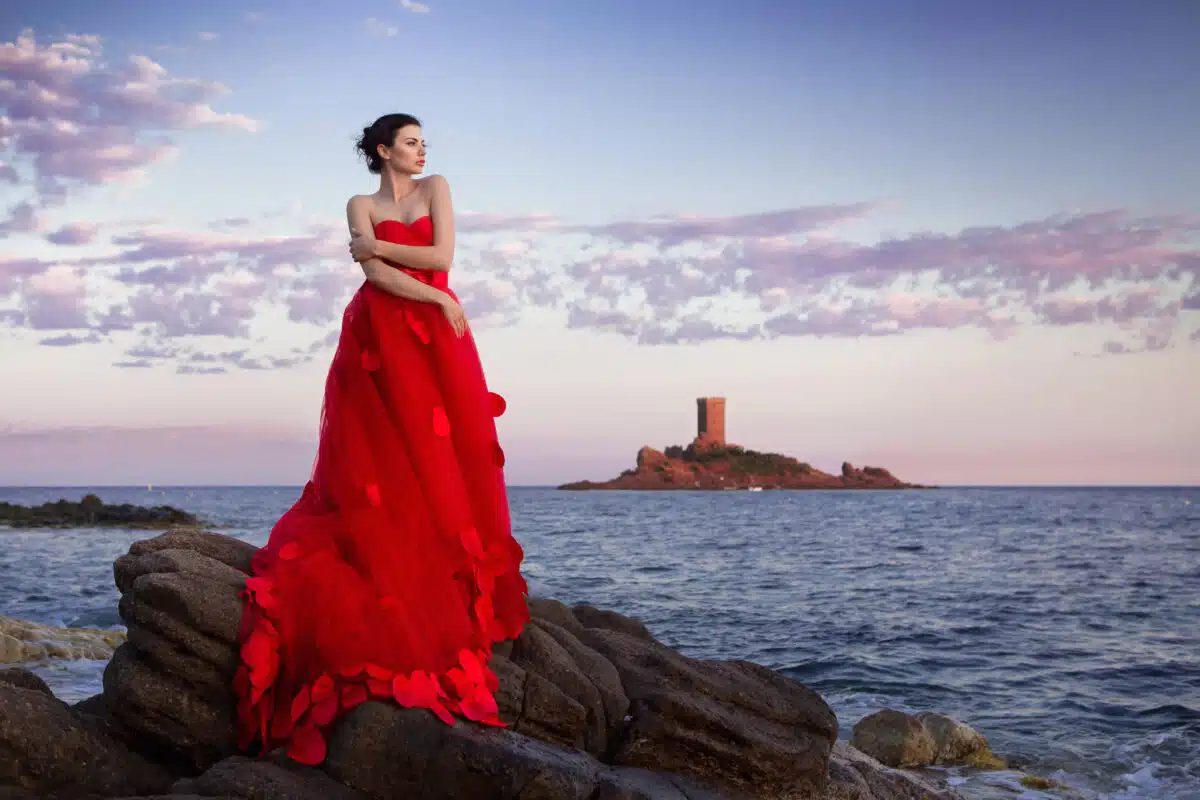
“Rhode Island” by Charlotte Fiske Bates
From that far island in the midland sea,
Where Rhodian art wrought out the world’s surprise,
Did our own Eden island’s name arise,
And then, at last, the State’s it grew to be.
Loved of all generous souls her Founder’s name;
And forth from her what stalwart men have sprung!
Gallant in battle, eloquent of tongue,
Philanthropist and soldier give her fame.
Of seven and thirty, this the smallest State,
And yet how powerful and how populous!
Where will and deed, like hers, are valorous,
To narrow bounds is set how large a fate!
No steadier brilliance has been thrown afar
Throughout our history’s every darkest night
Than hers,—how lustrous and how wide her light,
Though of the Nation’s cluster, smallest star!
“The Isles of Greece” by Lord Byron
The isles of Greece! the isles of Greece
Where burning Sappho loved and sung,
Where grew the arts of war and peace,
Where Delos rose, and Phoebus sprung!
Eternal summer gilds them yet,
But all, except their sun, is set.
The Scian and the Teian muse,
The hero’s harp, the lover’s lute,
Have found the fame your shores refuse:
Their place of birth alone is mute
To sounds which echo further west
Than your sires’ ‘Islands of the Blest’.
The mountains look on Marathon—
And Marathon looks on the sea;
And musing there an hour alone,
I dream’d that Greece might still be free;
For standing on the Persians’ grave,
I could not deem myself a slave.
A king sate on the rocky brow
Which looks o’er sea-born Salamis;
And ships, by thousands, lay below,
And men in nations;—all were his!
He counted them at break of day—
And when the sun set, where were they?
And where are they? and where art thou,
My country? On thy voiceless shore
The heroic lay is tuneless now—
The heroic bosom beats no more!
And must thy lyre, so long divine,
Degenerate into hands like mine?
’Tis something in the dearth of fame,
Though link’d among a fetter’d race,
To feel at least a patriot’s shame,
Even as I sing, suffuse my face;
For what is left the poet here?
For Greeks a blush—for Greece a tear.
Must we but weep o’er days more blest?
Must we but blush?—Our fathers bled.
Earth! render back from out thy breast
A remnant of our Spartan dead!
Of the three hundred grant but three,
To make a new Thermopylae!
What, silent still? and silent all?
Ah! no;—the voices of the dead
Sound like a distant torrent’s fall,
And answer, ‘Let one living head,
But one, arise,—we come, we come!’
’Tis but the living who are dumb.
In vain—in vain: strike other chords;
Fill high the cup with Samian wine!
Leave battles to the Turkish hordes,
And shed the blood of Scio’s vine:
Hark! rising to the ignoble call—
How answers each bold Bacchanal!
You have the Pyrrhic dance as yet;
Where is the Pyrrhic phalanx gone?
Of two such lessons, why forget
The nobler and the manlier one?
You have the letters Cadmus gave—
Think ye he meant them for a slave?
Fill high the bowl with Samian wine!
We will not think of themes like these!
It made Anacreon’s song divine:
He served—but served Polycrates—
A tyrant; but our masters then
Were still, at least, our countrymen.
The tyrant of the Chersonese
Was freedom’s best and bravest friend;
That tyrant was Miltiades!
O that the present hour would lend
Another despot of the kind!
Such chains as his were sure to bind.
Fill high the bowl with Samian wine!
On Suli’s rock, and Parga’s shore,
Exists the remnant of a line
Such as the Doric mothers bore;
And there, perhaps, some seed is sown,
The Heracleidan blood might own.
Trust not for freedom to the Franks—
They have a king who buys and sells;
In native swords and native ranks
The only hope of courage dwells:
But Turkish force and Latin fraud
Would break your shield, however broad.
Fill high the bowl with Samian wine!
Our virgins dance beneath the shade—
I see their glorious black eyes shine;
But gazing on each glowing maid,
My own the burning tear-drop laves,
To think such breasts must suckle slaves.
Place me on Sunium’s marbled steep,
Where nothing, save the waves and I,
May hear our mutual murmurs sweep;
There, swan-like, let me sing and die:
A land of slaves shall ne’er be mine—
Dash down yon cup of Samian wine!
“The Island of Atlantis” by The Rev. George Croly
Oh thou Atlantic, dark and deep,
Thou wilderness of waves,
Where all the tribes of earth might sleep
In their uncrowded graves !
The sunbeams on thy bosom wake,
Yet never light thy gloom ;
The tempests burst, yet never shake
Thy depths, thou mighty tomb !
Thou thing of mystery, stern and drear,
Thy secrets who hath told ?–
The warrior and his sword are there,
The merchant and his gold.
There lie their myriads in thy pall
Secure from steel and storm ;
And he, the feaster on them all,
The cankerworm.
Yet on this wave the mountain’s brow
Once glowed in morning beam; And, like an arrow from the bow,
Out sprang the stream;
And on its bank the olive grove,’
And the peach’s luxury, And the damask rose-the nightbird’s love-
Perfumed the sky.
Where art thou, proud Atlantis, now!
Where are thy bright and brave? Priest, people, warriors’ living flow?
Look on that wave!
Crime deepen’d on the recreant land,
Long guilty, long forgiven;
There power uprear’d the bloody hand,
There scoff’d at Heaven.
The word sent forth–the word of woe –
The judgment-thunders peal’d; The fiery earthquake blazed below;
Its doom was seal’d.
Now on its halls of ivory
Lie giant weed and ocean slime, Burying from man’s and angei’s eye
The land of crime.
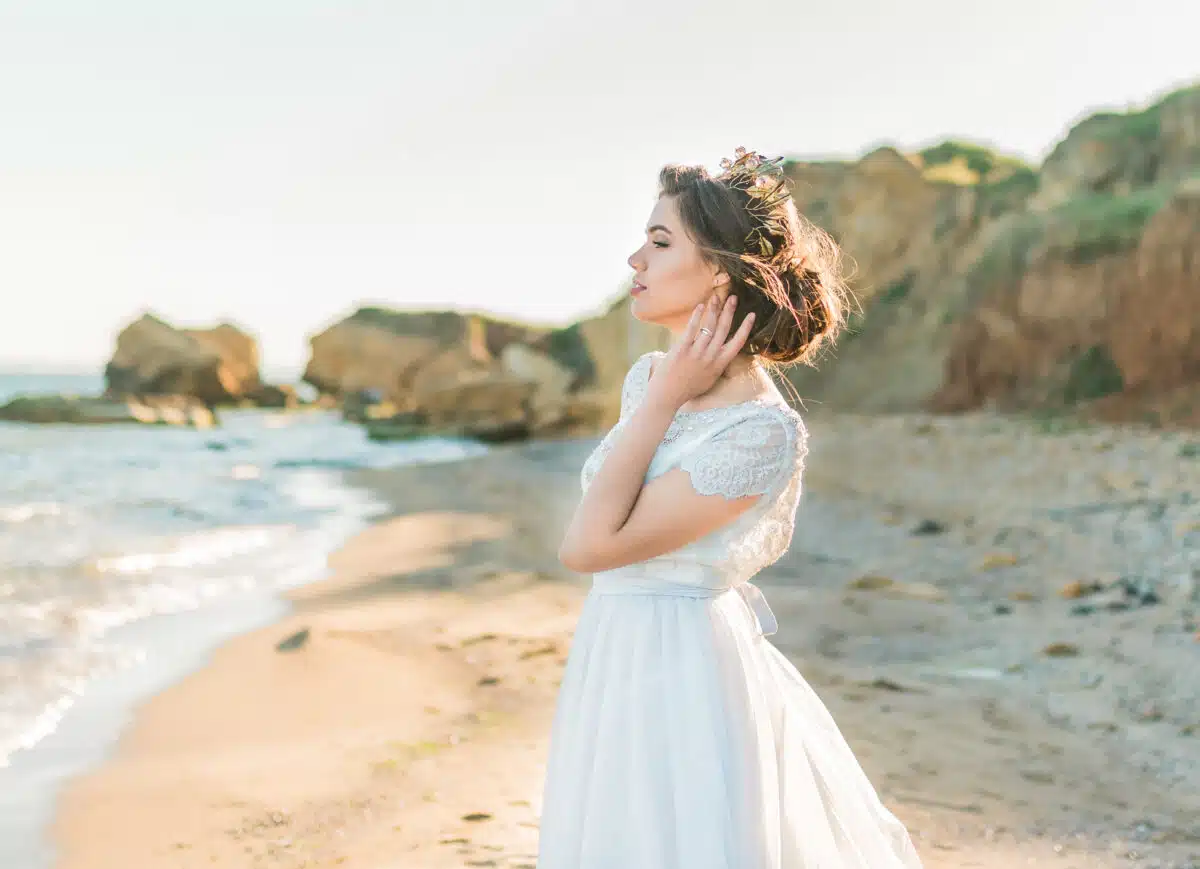
“Inarimé” by Henry Wadsworth Longfellow
Once more, once more, Inarimé,
I see thy purple hills!—once more
I hear the billows of the bay
Wash the white pebbles on thy shore.
High o’er the sea-surge and the sands,
Like a great galleon wrecked and cast
Ashore by storms, thy castle stands,
A mouldering landmark of the Past.
Upon its terrace-walk I see
A phantom gliding to and fro;
It is Colonna,—it is she
Who lived and loved so long ago.
Pescara’s beautiful young wife,
The type of perfect womanhood,
Whose life was love, the life of life,
That time and change and death withstood.
For death, that breaks the marriage band
In others, only closer pressed
The wedding-ring upon her hand
And closer locked and barred her breast.
She knew the life-long martyrdom,
The weariness, the endless pain
Of waiting for some one to come
Who nevermore would come again.
The shadows of the chestnut-trees,
The odor of the orange blooms,
The song of birds, and, more than these,
The silence of deserted rooms;
The respiration of the sea,
The soft caresses of the air,
All things in nature seemed to be
But ministers of her despair;
Till the o’erburdened heart, so long
Imprisoned in itself, found vent
And voice in one impassioned song
Of inconsolable lament.
Then as the sun, though hidden from sight,
Transmutes to gold the leaden mist,
Her life was interfused with light,
From realms that, though unseen, exist.
Inarimé! Inarimé!
Thy castle on the crags above
In dust shall crumble and decay,
But not the memory of her love.
“XCVII” by Sappho
When the early soft spring wind comes blowing
Over Rhodes and Samos and Miletus,
From the seven mouths of Nile to Lesbos,
Freighted with sea-odours and gold sunshine,
What news spreads among the island people
In the market-place of Mitylene,
Lending that unwonted stir of gladness
To the busy streets and thronging doorways?
Is it word from Ninus or Arbela,
Babylon the great, or Northern Imbros?
Have the laden galleons been sighted
Stoutly labouring up the sea from Tyre?
Nay, ’tis older news that foreign sailor
With the cheek of sea-tan stops to prattle
To the young fig-seller with her basket
And the breasts that bud beneath her tunic,
And I hear it in the rustling tree-tops.
All this passionate bright tender body
Quivers like a leaf the wind has shaken,
Now love wanders through the aisles of springtime.
“The House of Alcinoüs” by Homer (W. C. Bryant, Translator)
The blue-eyed Pallas, having spoken thus,
Departed o’er the barren deep. She left
The pleasant isle of Scheria, and repaired
To Marathon and to the spacious streets
Of Athens, entering there the massive halls
Where dwelt Erectheus, while Ulysses toward
The gorgeous palace of Alcinoüs turned
His steps, yet stopped and pondered ere he crossed
The threshold. For on every side beneath
The lofty roof of that magnanimous king
A glory shone as of the sun or moon.
There from the threshold, on each side, were walls
Of brass that led towards the inner rooms,
With blue steel cornices. The doors within
The massive building were of gold, and posts
Of silver on the brazen threshold stood,
And silver was the lintel, and above
Its architrave was gold; and on each side
Stood gold and silver mastiffs, the rare work
Of Vulcan’s practised skill, placed there to guard
The house of great Alcinoüs, and endowed
With deathless life, that knows no touch of age.
Along the walls within, on either side,
And from the threshold to the inner rooms,
Were firmly planted thrones on which were laid
Delicate mantles, woven by the hands
Of women. The Phæacian princes here
Were seated; here they ate and drank, and held
Perpetual banquet. Slender forms of boys
In gold upon the shapely altars stood,
With blazing torches in their hands to light
At eve the palace guests; while fifty maids
Waited within the halls, where some in querns
Ground small the yellow grain; some wove the web
Or twirled the spindle, sitting, with a quick
Light motion, like the aspen’s glancing leaves.
The well-wrought tissues glistened as with oil.
As far as the Phæacian race excel
In guiding their swift galleys o’er the deep,
So far the women in their woven work
Surpass all others. Pallas gives them skill
In handiwork and beautiful design.
Without the palace-court, and near the gate,
A spacious garden of four acres lay.
A hedge enclosed it round, and lofty trees
Flourished in generous growth within,—the pear
And the pomegranate, and the apple-tree
With its fair fruitage, and the luscious fig
And olive always green. The fruit they bear
Falls not, nor ever fails in winter time
Nor summer, but is yielded all the year.
The ever-blowing west-wind causes some
To swell and some to ripen; pear succeeds
To pear; to apple apple, grape to grape,
Fig ripens after fig. A fruitful field
Of vines was planted near; in part it lay
Open and basking in the sun, which dried
The soil, and here men gathered in the grapes,
And there they trod the wine-press. Farther on
Were grapes unripened yet, which just had cast
The flower, and others still which just began
To redden. At the garden’s furthest bound
Were beds of many plants that all the year
Bore flowers. There gushed two fountains: one of them
Ran wandering through the field; the other flowed
Beneath the threshold to the palace-court,
And all the people filled their vessels there.
Such were the blessings which the gracious gods
Bestowed on King Alcinoüs and his house.

“Corfu” by Letitia Elizabeth Landon
Now, doth not summer’s sunny smile
Sink soft o’er that Ionian isle,
While round the kindling waters sweep
The murmur’ d music of the deep,
The many melodies that swell
From breaking wave and red-lipp’d shell.
Love mine! how sweet it were to leave
This weary world of ours behind,
And borrow from the blushing eve
The wild wings of the wandering wind.
Would we not flee away and find
Some lonely cave beside the shore.
One, where a Nereid dwelt of yore,
And shelter’d in its glistening bowers,
A love almost as fond as ours?
A diamond spar incrusts the walls,
A rainbow light from crystal falls;
And, musical amid the gloom,
A fountain’s silvery showers illume
The further darkness, as with ray
And song it finds its sparkling way.
A natural lute and lamp—a tone,
A light, to wilder waves unknown.
The cave is curtain’d with the vine,
And inside wandering branches twine,
While from the large green leaves escape
The blooming clusters of the grape;—
Fruit with such hyacinthine glow
As southern sunbeams only know.
We will not leave it, till the moon
Lulls with her languid look the sea;
Sleep, shadow, silence for the noon,
But midnight Love to wake with thee,
When the sweet myrtle trees exhale
The odours of their blossoms pale,
And dim and purple colours steep
Those blossoms in their perfumed sleep;
Where closed are the cicada’s wings,
And no leaf stirs, nor wild bird sings,
Lull’d by the dusk air, warm and sweet;
Then kneeling, dearest, at thy feet,
Thy face the only sight I see,
Thy voice the only sound I hear,
While midnight’s moonlit mystery
Seems the full heart’s enchanted sphere.
Then should thy own low whisper tell
Those ancient songs thou lovest so well;
Tales of old battles which are known
To me but from thy lip alone;
Dearer than if the bard again
Could sound his own imperial strain.
Ah, folly! of such dreaming hours,
That are not, that may not be ours.
Farewell! thou far Ionian isle
That lighted for my love awhile,
A sweet enchantment form’d to fade,
Of darker days my life is made;
Embittering my reality
With dreams of all that may not be.
Such fairy fancies when they part,
But leave behind a wither’d heart;
Dreaming o’er all it hath not known;
Alas! and is such heart mine own!
“Delos” by Callimachus (H. W. Tytler, Translator)
O when, my soul, wilt thou resound the praise
Of Delos, nurse to Phœbus’ infant days,
Or of the Cyclades? Most sacred these
Of isles, that rise amid surrounding seas;
And fame and hymns divine to them belong:
But Delos chief demands the Muse’s song;
For there the god who leads the vocal train
Was swathed around; and on the Delian plain
His infant limbs were washed: the sacred lay
Triumphant rose to hail the God of day.
As who forgets Pimplea, the divine,
Is soon forsaken by the tuneful Nine;
Thus on the bard, neglecting Cynthus’ shores,
Avenging Phœbus all his fury pours:
To Delos then let votive lays belong,
And Cynthian Phœbus will approve my song.
Though beat by billows, and though vexed with storms,
The sacred isle its deep foundations forms
Unshook by winds, uninjured by the deep.
High o’er the waves appears the Cynthian steep;
And from the flood the sea-mew bends his course
O’er cliffs impervious to the swiftest horse:
Around the rocks the Icarian surges roar,
Collect new foam, and whiten all the shore
Beneath the lonely caves, and breezy plain
Where fishers dwelt of old above the main.
No wonder Delos, first in rank, is placed
Amid the sister isles on ocean’s breast.
“Delos” by Richard Monckton Milnes
Though Syria’s rock was passed at morn,
The wind so faintly arched the sail,
That ere to Delos we were borne,
The autumn day began to fail,
And only in Diana’s smiles
We reached the bay between the isles.
In sweet serenity of force
She ruled the heavens without a star,—
A sacred image that the course
Of time and thought can hardly mar,—
As dear and nearly as divine
As ever in Ephesian shrine.
I knew that on the spot I trod
Her glorious twins Latona bore,
That for her sake the pitying God
Had fixed the isle afloat before;
And, fearful of his just disdain,
I almost felt it move again.
For the delicious light that threw
Such clear transparence on the wave,
From the black mastick-bushes drew
Column and frieze and architrave,
Like rocks, which, native to the place,
Had something of mysterious grace.
“Strong was the power of art to bid
Arise such beauty out of stone,
Yet Paros might as well have hid
Its wealth within its breast unknown,
As for brute Nature to regain
The fragments of the fallen fane.
“Who can rebuild these colonnades
Where met the ancient festal host,
The peasant from Arcadia’s glades,
The merchant from Ionia’s coast,
Gladdening their Grecian blood to stand
On one religious Fatherland?”
So in my angry discontent
I cried, but calmer thoughts came on,
And gratitude with sorrow blent,
And murmur turned to orison:
I thanked the gods for what had been,
And Nature for the present scene.
I felt that while in Greece remained
Signs of that old heroic show,
Hope, Memory’s sister, so sustained,
Would sink not altogether low,
And Grecian hearts once more might be
Combined in powerful amity.
Long ere the sun’s most curious ray
Had touched the morning’s zone of pearl,
I and my boat were far away,
Raised on the water’s freshening curl;
And barely ’twixt the rose and blue
The island’s rim was still in view.
So Delos rests upon my mind,
A perfect vision of the night,
A picture by moon-rays designed,
And shaded into black and bright,—
A true idea borne away,
Untroubled by the dreamless day.
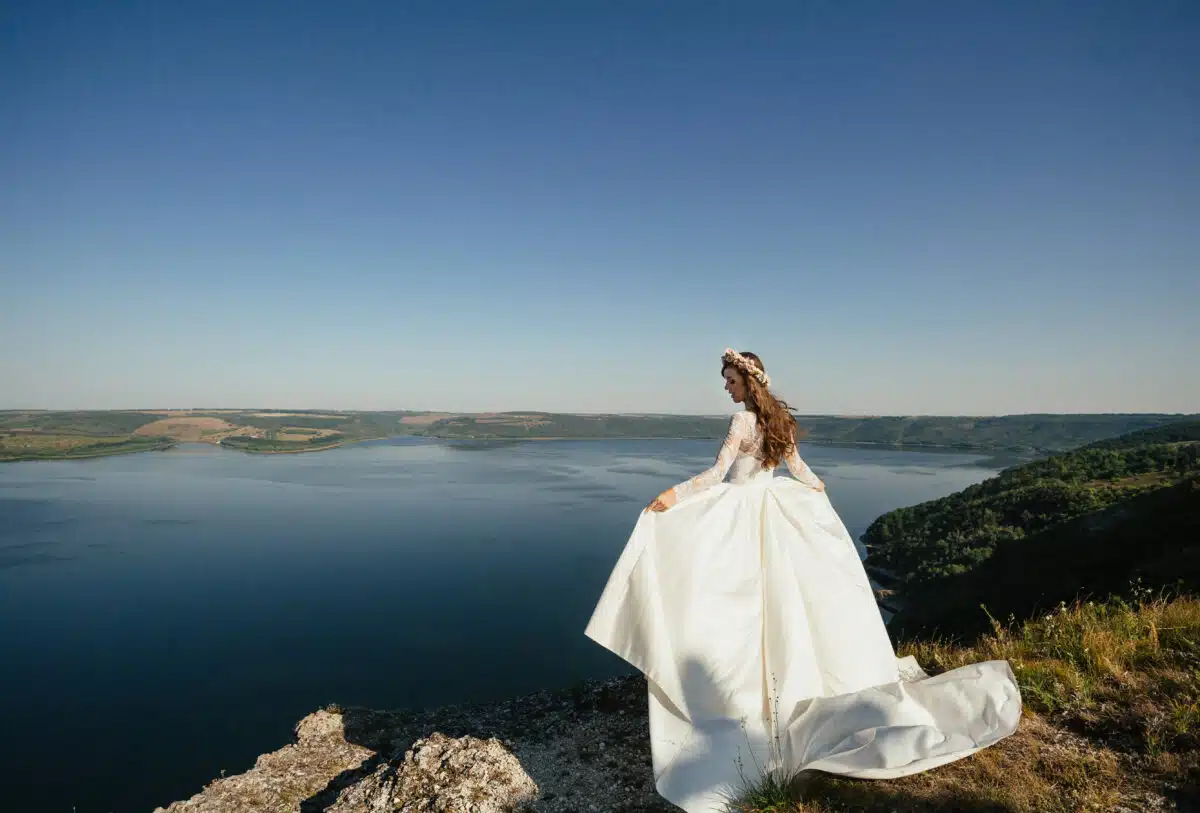
“Catterina Cornaro” by Robert, Lord Lytton
I.
In Cyprus, where ’live Summer never dies,
Love’s native land is. There the seas, the skies,
Are blue and lucid as the looks, the air
Fervid and fragrant as the breath and hair
Of Beauty’s Queen; whose gracious godship dwells
In that dear island of delicious dells,
Mid lavish lights and languid glooms divine.
There doth she her sly dainty sceptre twine
With seabank myrtle spray, and roses sweet
And full as, when the lips of lovers meet
The first strange time, their sudden kisses be:
There doth she lightly reign: there holdeth she
Her laughing court in gleam of lemon groves:
The wanton mother of unnumbered Loves!
What earthly creature hath Dame Venus’ grace
Dowered so divinely sweet of form and face
As that she may, unshamed in Cupid’s smile,
Be sovereign lady of this lovely isle?
Sure, Venus, not so blind as some aver
Was thy bold boy, what time, in search of her
Thou bad’st him seek, he roamed the seas all round,
And barbarous lands beyond; since he hath found
This wonder out; whose perfect sweetness seems
The fair fulfilment of his own fond dreams:
And Kate Cornaro is the Island Queen.
II.
A Queen, a child, fair, happy, scarce nineteen!
In whose white hands her little sceptre lies,
Like a new-gathered floweret, in surprise
At being there. To keep her what she is,—
A thing too rare for the familiar kiss
Of household loves,—wifehood and motherhood,—
Fit only to be delicately wooed
With wooings fine and frolicsome as those
Wherewith the sweet West wooes a small blush-rose,
Her husband first, and then her babe, away
Slipped from her sight, each on a summer day,
Ere she could miss them, into the soft shade
Of flowery graves. She doth not feel afraid
To be alone. Because she hath her toy,
Her pretty kingdom. And it is her joy
To dandle the doll-people, and be kind
And careful to it, as a child. Each wind
O’ the world on her smooth eyelids lightly breathes,
As morn upon a lily whence frail wreaths
Of little dew-drops hang, easily troubled,
As such things are. The June sun’s joy is doubled,
Shining through shadow in her golden hair.
Light-wedded, and light-widowed, and unaware
Of any sort of sorrow doth she seem;
Albeit the times are stormy, and do teem
With tumult round her tiny throne. Primrose,
Pert violet, hardy vetch,—no blossom blows
In March less conscious of a cloudy sky,
More sweet in sullen season. Days go by
Daintily round her. If her crown’s light weight
Upon her forehead fair and delicate
Leave the least violet stain, when laid away
At close of some great summer holiday,
Her lovers kiss the sweet mark smooth and white
Ere it can pain her. She hath great delight
In little things: and of great things small care.
The people love her; though the nobles are
Wayward and wild. Yet fears she not, nor shrinks
To show she fears not. “For in truth,” she thinks
“My Uncle Andrew and my Uncle Mark
Have care of me.” And, truly, dawn or dark,
These Uncles Mark and Andrew, busiest two
In Cyprus, find no lack of work to do:
Go up and down the noisy little state,
Silent all day: and, when the night is late,
Write letters, which she does not care to read
(The Ten, she knows, will ponder them with heed),
To Venice—not so far from Cyprus’ shore
But what the shadow of St. Mark goes o’er
The narrow sea to touch her island throne.
III.
She is herself a dove from Venice flown
Not so long since but what her snowy breast
Is yet scarce warm within its new-found nest,—
Whence sings she o’er the grave of Giacomo
Songs taught her by St. Mark.
Cristofero
(He of the four stone shields which you may spy,
Thrice striped, thrice spotted with the mulberry,
In the great sunlight o’er that famous stair
Whose marble white is warmed with rose-hues, where
The crownings were once) wore the ducal horn
In Venice, on that joyous July morn
When all along the liquid streets, paved red
With rich reflections of clear crimson spread,
Or gorgeous orange gay with glowing fringe,
From bustling balconies above, to tinge
The lucid highways with new lustres, best
Befitting that day’s pride, the blithe folk pressed
About St. Paul’s, beneath the palace door
Of Mark Cornaro; where the Bucentor
Was waiting with the Doge; to see Queen Kate
Come smiling in her robes of marriage state
Through the crammed causeway, glimmering down between
The sloped bright-banded poles, beneath the green
Sea-weeded walls; content to catch quick gleams
Of her robe’s tissue stiff with strong gold seams
From throat to foot, or mantle’s sweeping shine
Of murrey satin lined with ermine fine.
Flushing the white warmth it encircled glad,
A sparkling carcanet of gems she had
About her fair throat. Such strong splendors piled
So heavily upon so slight a child
Made Venice proud: because in little things
Her greatness thus seemed greatest.
His white wings
The galley put forth from the blue lagoon.
The mellow disk of a mild daylight moon
Was hanging wan in the warm azure air,
When the great clarions all began to blare
Farewell. And, underneath a cloudless sky
Over a calméd sea, with minstrelsy,
The baby Queen to Cyprus sailed….
“To the Venus of Melos” by John Lawson Stoddard
O goddess of that Grecian isle
Whose shores the blue Aegean laves,
Whose cliffs repeat with answering smile
Their features in its sun-kissed waves!
An exile from thy native place,
We view thee in a northern clime;
Yet mark on thy majestic face
A glory still undimmed by Time.
Through those calm lips, proud goddess, speak!
Portray to us thy gorgeous fane,
Where Melian lovers thronged to seek
Thine aid, Love’s paradise to gain;
And where, as in the saffron east,
Day’s jewelled gates were open flung,
With stately pomp the attendant priest
Drew back the veil before thee hung;
And when the daring kiss of morn,
Empurpling, made thy charms more fair,
Sweet strains from unseen minstrels borne
Awoke from dreams the perfumed air.
Vouchsafe at last our minds to free
From doubts pertaining to thy charms,-
The meaning of thy bended knee,
The secret of thy vanished arms.
Wast thou in truth conjoined with Mars?
Did thy fair hands his shield embrace,
The surface of whose golden bars
Grew lovely from thy mirrored face?
Or was it some bright scroll of fame
Thus poised on thine extended knee,
Upon which thou didst trace the name
Of that fierce god so dear to thee?
Whate’er thou hadst, no mere delight
Was thine the glittering prize to hold;
Not thine the form that met thy sight,
Replying from the burnished gold;
Unmindful what thy hands retained,
Thy gaze is fixed beyond, above;
Some dearer object held enchained
The goddess of immortal love.
We mark the motion of thine eyes,
And smile; for, heldst thou shield or scroll,
A tender love-glance we surprise,
That tells the secret of thy soul.
“Naxos” by Catullus (F. Nott, Translator)
There Ariadne, racked with amorous pains,
On Naxos’ billow-beaten shore complains;
And eyes the rapid bark, that bears away
Her perjured Theseus o’er the distant sea:
Though golden sleep no more her sense deceives,
She scarce the horror of the scene believes;
Scarce thinks herself the wretch which now she stands,
A hapless wretch, forsook in desert lands!
See, sped with oars, the youth regardless goes;
And the wild winds disperse his faithless vows!
While Minos’ daughter views his flight from far,
And bathes the reedy strand with many a tear;
Now like a frantic bacchanal she raves,
And her fond soul is tossed on sorrow’s waves!
No slender fillet binds her yellow head,
No shadowing veil is o’er her bosom spread,
No modest zone confines its tumid pride,
Or longer strives its struggling charms to hide;
But each gay ornament her beauty wore,
Wet with the surge, lies scattered on the shore:
Not then the fillet, which her locks should bind,
Not then her garb, the sport of waves and wind,
Employ her thought,—thou, Theseus, thou alone,
Reign’st the proud tyrant of her bosom’s throne!
Ill-fated fair! whom Venus doomed to prove
The thorny cares, and agonies of love;
What time from his Piræus Theseus fled,
And sought the isle thy cruel father swayed.
Oft, they relate, with burning grief oppressed,
The shriek, loud-sounding, issued from her breast;
Oft to the craggy cliffs enraged she ’d fly,
O’er the wide waste of waters bend her eye;
Then to the shore direct her rapid way,
Cast her bared feet’s soft coverings away;
At length in sweetly plaintive accent cry,
While her moist lips breathed many a chilling sigh:
“Thus dost thou leave me, from my country torn,
Perfidious Theseus, on this coast forlorn?
Thus, in contempt of yon attesting skies,
Bear back with thee thy impious perjuries?
Could no remembrance of our former love
Thy savage purpose, base barbarian, move?
Were no remains of pity left behind,
To soothe the various tortures of my mind?
“Fool that I am! but madness turns my brain,
To senseless winds thus vainly to complain;
Vainly to think that they could hear me mourn,
Or pitying accents to my sighs return!
Ah, how far hence he flies, on ocean tossed!
No human form is seen along this coast;
No wretch like me, my sorrowing tale to hear!
Why, fortune, thus insult my keen despair?
O, had it been imperial Jove’s command,
That Attic ships had ne’er seen Cretan land;
That the famed bark, which bore the prize away
From the fierce bull, had never ploughed the sea;
And that the youth, who smiled such sweet deceit,
Had never entered Minos’ royal gate!”
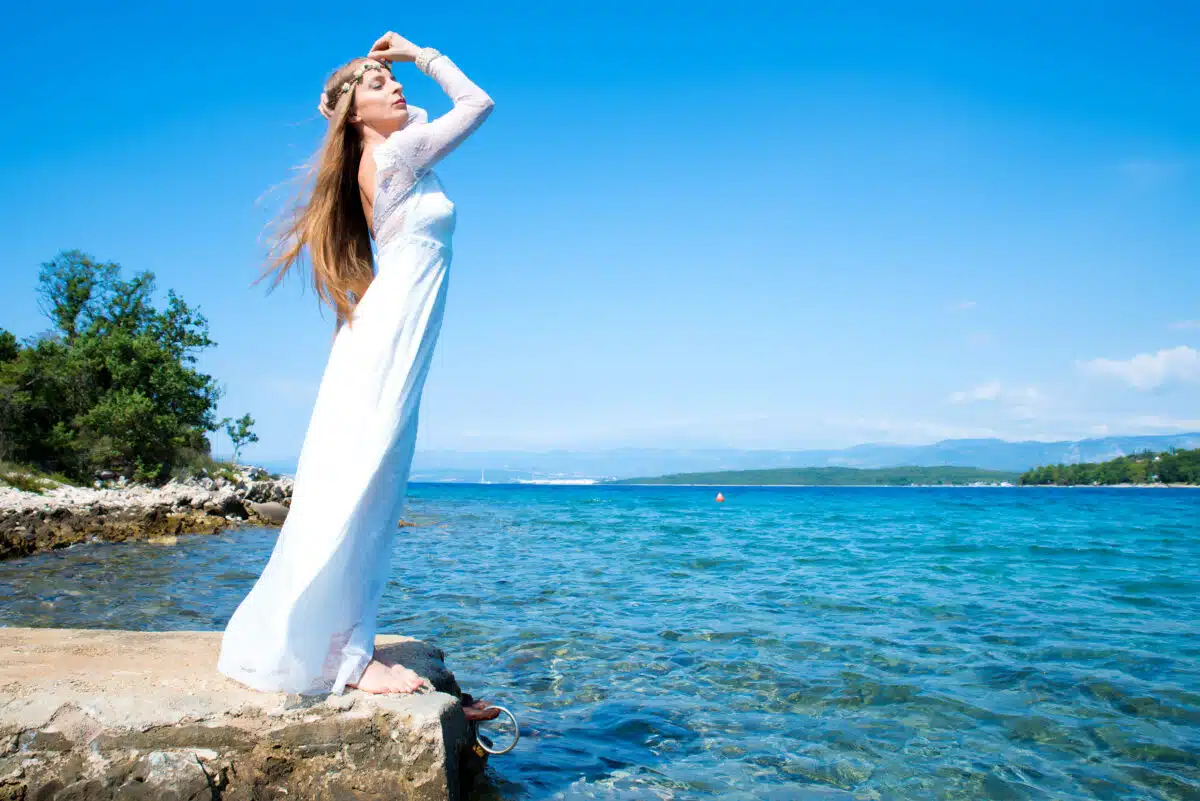
“Delos” by Virgil (C. P. Cranch, Translator)
Amid the sea there lies a lovely isle,
Sacred to Doris, mother of the nymphs
Of ocean, and Ægean Neptune. This,
Once floating round the shores, Apollo bound
Fast to Gyaros and to Myconos,
And bade it stay unmoved, and scorn the winds.
Hither I sail. This pleasant isle receives
Within its port the weary voyagers.
Landing, we hail with praise Apollo’s seat.
King Anius, Phœbus’ priest and king in one,
His temples bound with fillets and with bays,
Meets us, and knows Anchises his old friend.
Then hands are grasped, with hospitable cheer,
Under his roof.
“Crete” by William Falconer
Eternal powers! what ruins from afar
Mark the fell track of desolating war:
Here arts and commerce with auspicious reign
Once breathed sweet influence on the happy plain:
While o’er the lawn, with dance and festive song,
Young Pleasure led the jocund hours along:
In gay luxuriance Ceres too was seen
To crown the valleys with eternal green:
For wealth, for valor, courted and revered,
What Albion is, fair Candia then appeared.
Ah! who the flight of ages can revoke?
The free-born spirit of her sons is broke,
They bow to Ottoman’s imperious yoke.
No longer fame their drooping heart inspires,
For stern oppression quenched its genial fires:
Though still her fields, with golden harvests crowned,
Supply the barren shores of Greece around,
Sharp penury afflicts these wretched isles,
There hope ne’er dawns, and pleasure never smiles;
The vassal wretch contented drags his chain,
And hears his famished babes lament in vain.
These eyes have seen the dull reluctant soil
A seventh year mock the weary laborer’s toil.
No blooming Venus, on the desert shore,
Now views with triumph captive gods adore;
No lovely Helens now with fatal charms
Excite the avenging chiefs of Greece to arms;
No fair Penelopes enchant the eye,
For whom contending kings were proud to die;
Here sullen beauty sheds a twilight ray,
While sorrow bids her vernal bloom decay;
Those charms, so long renowned in classic strains,
Had dimly shone on Albion’s happier plains!
The sun’s bright orb, declining all serene,
Now glanced obliquely o’er the woodland scene;
Creation smiles around; on every spray
The warbling birds exalt their evening lay;
Blithe skipping o’er yon hill, the fleecy train
Join the deep chorus of the lowing plain;
The golden lime and orange there were seen
On fragrant branches of perpetual green;
The crystal streams that velvet meadows lave,
To the green ocean roll with chiding wave.
The glassy ocean, hushed, forgets to roar,
But trembling murmurs on the sandy shore;
And, lo! his surface lovely to behold,
Glows in the west, a sea of living gold!
While all above a thousand liveries gay
The skies with pomp ineffable array.
Arabian sweets perfume the happy plains;
Above, beneath, around, enchantment reigns!
While glowing Vesper leads the starry train,
And night slow draws her veil o’er land and main,
Emerging clouds the azure east invade,
And wrap the lucid spheres in gradual shade;
While yet the songsters of the vocal grove
With dying numbers tune the soul to love.
